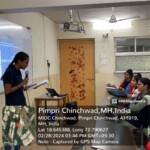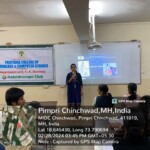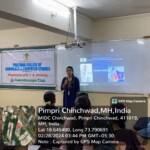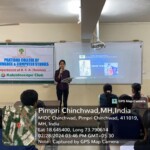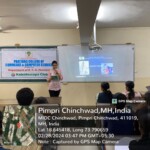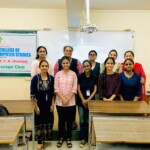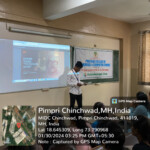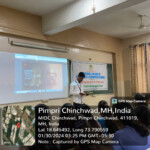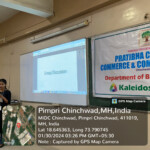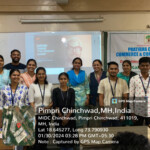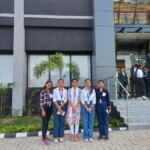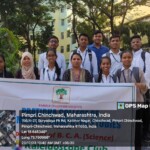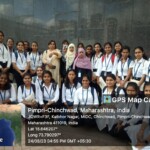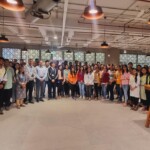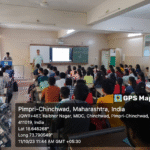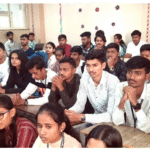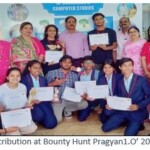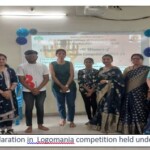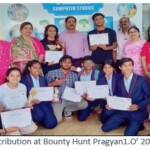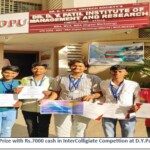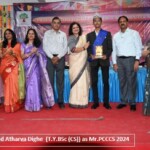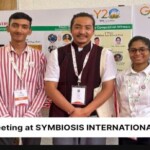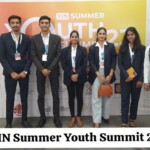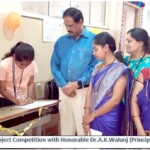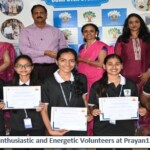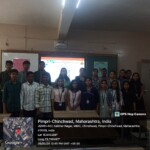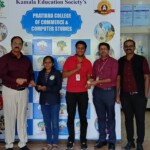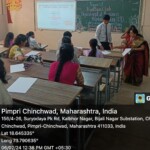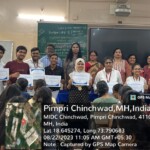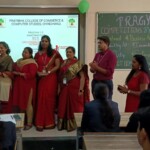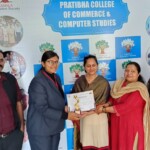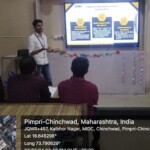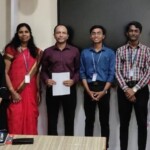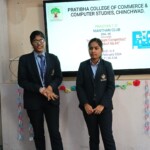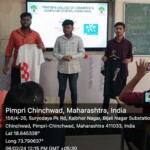Follow us on our Socials:
Follow us on our Socials:
- B.Sc(CA) (Old. – BCA (Sci))
- B.Sc. (Reg)
- B.Sc. (CS)
- B.Sc. (CDS)
- B.Sc. (IT)
- B.Sc. (Nano Tech)
- B.Sc. ( AI/ML )
- BSc(Cyber Security)
- BSc(Data Science)
- Introduction
- Objectives of the Program
- Programmes & Courses Outcomes
- Infrastructure
- Best Practices
- Staff
- Syllabus
- Activities & Achievements
- Gallery
Department of B.Sc. (CA)
Programs and Course Outcomes
Program Outcome
Course Outcome
- F. Y. B.Sc.(CA)
- S. Y. B.Sc.(CA)
- T.Y.B.C.A. (Science)
- M.Sc(CA)
- Introduction
- Objectives of the Program
- Programmes & Courses Outcomes
- Infrastructure
- Best Practices
- Staff
- Syllabus
- Activities & Achievements
- Gallery
Department of B.Sc. (CA)
Programs and Course Outcomes
Program Outcome
Course Outcome
- F. Y. B.Sc.(CA)
- S. Y. B.Sc.(CA)
- T.Y.B.C.A. (Science)
- M.Sc(CA)
- Introduction
- Establishment
- Objectives of the Program
- Special features
- Infrastructure
- Best Practices
- Staff
- Activities & Achievements
- Gallery
- Alumni
- Syllabus
B.Sc(Reg.)
Establishment / Milestones
The B.Sc. (Regular) Department was established in 2016 with an initial intake of 19 students. Currently, the department caters to around 150 students, offering specializations in Statistics and Chemistry. The department was founded with the primary objective of fostering scientific aptitude, skills, and awareness among students, grounded in a strong foundation of basic sciences. The program is designed to cultivate a scientific temper, encouraging independent thought, logical reasoning, and the ability to make rational and informed decisions. It also promotes an interdisciplinary approach to knowledge, aiming to empower students to contribute meaningfully to a dynamic and evolving society.
B.Sc. (Statistics)
Duration: 4 Years
Eligibility:
Eligibility: Higher secondary school certificate (10+2) or its equivalent examination with English & Mathematics & with any three science subjects such as Physics, Chemistry, Biology, Geography, Geology etc.
Highlights – B.Sc. (Statistics)
- Highly Qualified Faculty (Ph.D., NET, SET)
- Expert Career Guidance
- Field Visits & Industrial Exposure
- Hands-On Training Sessions
- Guest Lectures, Seminars & Workshops
- Personalized Mentoring Support
- Participation in Science Association for Holistic Development
Value Addition – B.Sc. (Statistics)
- Training and Placement Cell – Pratibha Finishing School
- Pre-placement Activities & Soft Skills Training
- Plastic Waste Collection Drives
- “Best Out of Waste” Activities
- Environmental Sustainability Initiatives
- Cancer Awareness Program Mentoring
Facilities and Resources – B.Sc. (Statistics)
- Smart Digital Classrooms
- Well-equipped Computer Labs
- High-End Systems with Latest Statistical & Analytical Software
Career Opportunities – B.Sc. (Statistics)
- Data Analyst / Business Analyst
- Statistical Officer (Govt. Agencies)
- Market Research Analyst
- Banking and Financial Analyst
- Actuarial Analyst
- Quality Control Analyst
- Research Assistant
- Biostatistician
- Higher Education
- Competitive Exams: UPSC, MPSC, CSIR-NET, GATE
B.Sc. (Chemistry)
Duration: 4 Years
Eligibility:
Eligibility: Higher secondary school certificate (10+2) or its equivalent examination with English with any three science subjects such as Physics, Chemistry, Biology, mathematics, Geography, Geology etc.
Highlights – B.Sc. (Chemistry)
- Highly Qualified Faculty (Ph.D., NET, SET)
- Expet Career Guidance
- Field Visits & Industrial Exposure
- Hands-On Training Sessions
- Guest Lectures, Seminars & Workshops
- Personalized Mentoring Support
- Participation in Science Association for Holistic Development
Value Addition – B.Sc. (Chemistry)
- Training and Placement Cell – Pratibha Finishing School
- Pre-placement Activities & Soft Skills Training
- Plastic Waste Collection Drives
- “Best Out of Waste” Activities
- Environmental Sustainability Initiatives.
- Cancer Awareness Program Mentoring
Facilities and Resources – B.Sc. (Chemistry)
- Smart Classrooms
- Modern Computer Labs with Chemistry Software & Simulations
- Well-Equipped Chemistry Laboratories
Career Opportunities – B.Sc. (Chemistry)
- Lab Technician / Chemical Analyst
- QA/QC Roles in Pharma & Chemical Industries
- Research Assistant
- Environmental & Analytical Chemist
- Production Chemist
- Science Communicator / Technical Writer
- Higher Studies: M.Sc., Environmental Science, etc.
- Competitive Exams: UPSC, MPSC, CSIR-NET, GATE
In 2016 B.Sc. (regular) Department was established with 19 students and currently around 150 students are part of our department. This department was created with specific objectives of developing skills, aptitude and awareness amongst the students with basic knowledge of sciences. The present program will develop scientific attitude and ability to think independently and take rational and appropriate decisions at various levels of logical thinking. It also aims to develop knowledge from an interdisciplinary perspective and to empower the youth in future applicable society.
Department of Science B.Sc(Reg.)
Bachelor of Science (B.Sc ) program is an undergraduate degree of four years duration:
- Designed to nurture scientific aptitude and research-oriented thinking
- Emphasizes calculative approaches and systematic methods
- Focuses on experimentation, research, and discovery
- Integrates both theoretical and practical modes of learning
Program Objectives
- Promote & Encourage scientific inquiry-based, high-quality science education
- Disseminate knowledge from an interdisciplinary perspective
- Empower students with applicable and relevant scientific skills
Core Learning Goals
- Stress on critical thinking and logical reasoning
- Develop skills using:
- Observation
- Comparison
- Experimentation
- Mathematical manipulation of data
Commitment to Practical Applications
- Emphasis on real-world relevance of science
- Foster an understanding of science as:
- An interdisciplinary field
- A tool for societal advancement
- A discipline with practical applications across various domains
Induction Programme for Fresher’s
Industry and Excursion Tours
Industry-Academia Extension Lectures
Ph.D. /NET/SET qualified and approved faculty members with corporate exposure
Placement of Students with top companies
Focus on Experiential Learning in the form of field visit, project and so on
State Level Seminars and Workshop are organised
Excellent Infrastructure with spacious class rooms
Seminars and Guest Lectures by Industrialists and subject experts to update the current trend
Start-up are encouraged for students to get the practical exposure.
Student mentoring system
Earn and Learn scheme
Experience shared by alumni’s and industrialists.
Alumni provide Experiment based training and hands-on training.
Various Departmental activities like
National Level Model making Competition Sci-Fest, Group discussion, Online Quiz Competition, Oral Presentation Competition, Poster Making Competition, Quiz competitions, Sci-ExActa-Science Stories/Act/Movie Making, Birth anniversary celebration and Guest lectures are taken.
Remedial lectures are conducted.
Science Association club is established to nurture the student’s talent and creativity.
Separate classrooms for each class and for optional subjects.
Classrooms are well equipped with smart board and projectors.
Well-equipped labs for Physics, Chemistry, Botany & EVS.
Computer Labs with projectors & required software’s are available for Mathematics & Statistics Practical.
A separate cabin for head of the department and a common staff room.
Computers and laptops are available for teachers.
Printer is available in the department.
Departmental library with more than 200 plus books
1. Science Association
2. RBPT (Research Based Pedagogical Tools)
3. Social responsibility – No Vehicle Day
4. Learning through Statistical games
5. Listing of plant species in Campus
6. Industrial Visit/ Field Visit to esteem organizations, to provide practical knowledge to students like
“Baramati –Industrial Visit to Peppermint textile park, KVK ” Visited on 16 December 2022.
“Malavali Field Visit” visited on 17 August 2022.
“Baramati –Industrial Visit to Peppermint textile park, KVK ” visited on 16 December 2022.
Visited “Solid Waste Management ,Waste water process & Recycling Expo-” on 21st January 2023.
On the occasion of National Science day, the excursion study visit of B.Sc. students to the research institutes like “IISER, NCL and various departments (Botany, Physics) of SavitribaiPhule Pune University, Pune” to gain practical knowledge through the science exhibition on 28th February 2023.
Social Responsibility Activity with VatsalyaMatimand School Every year during Diwali. we help to sells Diwali Diyas at college premises made by Physically challenged students.
| Name of the Faculty | Designation | Qualification | Experience | Photo |
|---|---|---|---|---|
| Dr. Jayashree Muley | IQAC Director | M.Sc. (Statistics), Ph.D., M.B.A. Finance, Post Graduate Diploma in Computer Science | 22 years | |
| Dr. Rajeshree Nanaware | Program Coordinator | M.Sc. (Mathematics), B.Ed., SET, Ph.D | 15 years | |
| Dr. Surekha Jogdand | Assistant Professor | M.Sc. (Chemistry), Ph.D. | 12 years | |
| Dr. Nisha Choudhari | Assistant Professor | M.Sc. (Botany), Ph.D | 7 years | |
| Dr. Yogesh Jorapur | Assistant Professor | M.Sc. (Chemistry), Ph.D., Postdoc (Japan, S. Korea) | 2 yrs. Piramal Discovery Pharma; 8 yrs Postdoc (Japan/S. Korea); 2 yrs PG & 6 yrs UG teaching | |
| Dr. Seema Barge | Assistant Professor | M.Sc. (Chemistry), Ph.D. | 5 years | |
| Mrs. Ragini Chavan | Assistant Professor | M.Sc. (Statistics), Ph.D. (Pursuing) | 11 years | |
| Suruchi S. Somwanshi | Assistant Professor | M.Sc. (Statistics), M.Sc. (Mathematics) | 11 years | |
| Dr. Priti Kolhe | Assistant Professor | M.Sc., Ph.D. (Environmental Science) | 11 years | |
| Mr. Suklal Kumbhar | Assistant Professor | M.Sc. (Statistics), SET | 10 years | |
| Mr. Rokey Lopes | Assistant Professor | M.Sc. (Statistics) | 4 years | |
| Mrs. Amola Jeure | Assistant Professor | M.Sc. (Mathematics), B.Ed., SET | 5 years | |
| Mrs. Asmita Shrikant Sutar | Assistant Professor | M.Sc. (Statistics), B.Ed. | 7 years | |
| Mrs. Shraddha Bhilare | Assistant Professor | M.Sc. (Physics), B.Ed. | 7 years | |
| Mrs. Vishakha Kshirsagar | Assistant Professor | M.Sc. (Mathematics), B.Ed. | 3 years |
Faculty Achievements
Dr. Jayashree Muley:
- Chairman for syllabus reframing committee of Second Year B. Sc. Statistics of Savitribai Phule Pune University.
- Chairman for paper setting of Second Year B. Sc. Statistics and S.Y. M.Sc Statistics of Savitribai Phule Pune University.
- Coordinator for the practical Exam of Second Year B. Sc. Statistics of Savitribai Phule Pune University.
- Paper reviewer at MIT A.C.S.C. Alandi & Fergusson College Pune.
- Attended workshop on “Kachara Nako g Bai” between 12th to 15 February 2025 in online mode organized by Green Works Trust.
- Attended “Happiness Program” by Sri Sri Ravishankar, Aishwaryam Ventures Group.
Dr. Rajeshree Nanaware:
- Attended One Day Syllabus Framing Workshop for S.Y.B.Sc Mathematics (As per NEP2020) on 22nd April 2025.
- Invited as Resource Person for “One day Workshop on Python Programming in Mathematics for SYBSc(CS)at CCS College Wakad on 26th October 2024
- Completed “One Week Online Workshop on Mathematics Towards Machine Learning “
- Completed Online Certificate Course Cum Workshop of 32 hours on “AI AND GOOGLE TOOLS IN EDUCATION” organized by Sanatan Dharma College, Ambala Cantt from 21 th Nov 2024 to 30 th Nov 2024 with “A” Grade.
Dr. Surekha Jogdand
- Published paper in scopus indexed Journal Surekha Jogdand, Polyhedron, 2025
- Presented paper in International Workshop “Recent Advancement in Magnetism and Magnetic Materials” November 2024 organized by VIT -AP University, AndhraPradesh
- Participated in IP awareness training Program under NIPAM, October 2024
- Completed online faculty development program on”Advanced Functional Material-current research Innovation and Application “June 2024 organized by MIT and Maharashtra academy of Science
Dr. Nisha Choudhari
- Participated and presented posters in Two days International Conference on “Agriculture, Environment and Life Sciences” on dated 21st and 22nd February 2025.
- Under the Science stream Selected as a sub-committee member of S.Y. BSc. Botany syllabus framing/Setting as per NEP (2020) pattern.
- completed 3-day online course of Environmental Analytics: Basics of R Programming and Data Processing in Ecology, conducted by THE GREEN CONCEPT INSTITUTE FOR CARBON ASSESSMENT AND RESTORATION ECOLOGY, on 26 th to 28th July 2024.
- Completed Yoga teacher training level 1 and level 2 -Yog Pravesh and Yog Parichay, Central Government of India Aayush Mantralya Recognized, Yog-Vidyadham Nashik, Maharashtra, India.
- Appointed for Examination Work as Paper setter, Practical External examiner and Paper checking and moderator from SPPU, Pune.
- worked as Botanist – to Identification of Native and Exotic Tree species and seed storage methods as a free lance work and Social Awareness under CSIR Drive organized by “The Explores” trecking group.
Dr. Seema Patil
- Participated in IP awareness training Program under NIPAM, October 2024.
Dr. Yogesh Jorapur
- Jorapur, Y. R.; Shah, D.; Kankariya, R. “Synthesis, Bio-activity, and Spectral Characterization of Different 1,4-Naphthoquinone Derivatives and their Metal Chelates Proceedings of the National Conference on Advanced Materials and Spectoscopy (NCAMS-2024), Aug., 22-23, 2024 (ISBN 978-81-978426-5-8).
- Jorapur, Y. R.; Chaudhari, N. R.; Kulkarni, A.; Chatterjee, T.; Velhal, S. “Chemical, Nutritional, and Biomolecular Characteristics of Finger Millet (Eleusine coracana L.). Afr. J. Biol. Sci., 2024, 6 (12), 967–978 (ISSN 2663–2187); doi: 10.48047/AFJBS.6.12.2024.967-978.
- Three Months Internship; Ten Students were Mentored in a Community Outreach Program on “Cancer Awareness” in collaboration with the Indian Cancer Society, Delhi, and Guru Angad Dev Teaching Learning Centre, SGTB Khalsa College, University of Delhi under PMMMNMTT of Ministry of Education between 1st Feb. to 30th April 2024.
- Acted as Resource Person and Delivered Talk on “Research Paper: Citations & Impact Factor” as part of Two Day National Level Faculty Development Programme (Online) titled “Research Paper and Project Proposal Writing”, Organized by A.C.T Academy, Keralam and SVCET, Andhra Pradesh (Feb. 7 & 8, 2025)
- Appreciation Certificate for Mentoring the IDEARUN 2024 Presentation, “Digital Marketing to Boost Home-Based Businesses” in the online event Organized by South Asia Working Group, IEEE Smart Village, Gandhinagar, September, 21, 2024.
- Appointment as an Institute for Educational Research and Publication (IFERP) Review Committee Member, Since September, 28, 2024.
- Five Days Online Research Development Program (RDP) on the theme of “Research Methodology and Ethics in Research” Organized by Pune Institute of Business Management for PGDM from Jan. 20-24, 2025.
- Five Days National Level Workshop on “Frontiers In Chemical Research: Innovations And Applications” Organized by Department of Chemistry, Vel Tech Rangarajan Dr. Sagunthala R&D Institute of Science and Technology, Chennai from February, 17-21, 2025
- One Day National Level Research Workshop (Virtual Mode) on “Techniques to Publish Research Papers in Peer-Reviewed Journals”, Organized by A.C.T Academy, Kerala on Dec. 05, 2024.
- One-Week Virtual Research Faculty Development Program on “Research Methodology” from June 10-15, 2024, organized by Pune Institute of Business Management for PGDM, Savitribai Phule Pune University.
- Invited as an external practical examiner for End Semester Practical/Skill Examination to examine the candidates in Course-Engineering Chemistry (AUTO 3103), for Sem-I, of program-B.Tech. Automobile, at Symbiosis Skills & Professional University, Kiwale, Pune (May 6 & 7, 2025)
- Invited as an external practical examiner for FYMSc. (Organic Chemistry) at Department of Chemistry at Modern College of Arts, Science, and Commerce, Ganeshkhind, Pune (April 09, 2025)
- Invited as an external practical examiner for SYMSc. (Organic Chemistry) at Department of Chemistry at Modern College of Arts, Science, and Commerce, Ganeshkhind, Pune (March 22-25, 2025)
- Invited as an external practical examiner for TYMSc. (Organic Chemistry) at Department of Chemistry at Modern College of Arts, Science, and Commerce, Ganeshkhind, Pune (March 12, 2025)
15.Invited as an external practical examiner for End Semester Practical/Skill Examination to examine the candidates in Course-Engineering Chemistry (AUTO 3103), for Sem-I, of program-B.Tech. Automobile, at Symbiosis Skills & Professional University, Kiwale, Pune (Dec. 03, 2024).
Mrs.Amola Jeure
Attended One Day National Conference on Recent Developments in Pure and Applied Mathematics organized by P.A.H. Solapur University Solapur on 24th February 2025.
Mr. Suklal Kumbhar: Ph.D registration in Statistics
Students’ Achievements:
- Sneha Sharma – Secured second rank in the intra-college Book Review Competition organised by KRC under the Maharashtra Project.
- Shravan Malpote –
- Awarded Pratibha Merit Cum Income (EWS) Scholarship.
- Participated in State Level Open Chess Tournament, Genba Sopanrao Moze College of Engineering.
- Secured first prize in Sci_Quizathon organised by Department of Science, Pratibha College under Pragyan 2.0.
- Participated in Chess Competition organised by PCCCS.
- Secured first prize in Flashcard Fun organised by Department of Science, Pratibha College under Pragyan 2.0.
- Shivangi Chauhan – Participated in Indian Swachhata League 2.0 organised by Pimpri Chinchwad Municipal Corporation.
- Participated in Chemistry Poster Competition during Desai Karandak 2k24-25 at H.V. Desai College.
- Attended workshop on Astrobiology and Astronauts by LIFE-To and Beyond Foundation at Indian Science Festival, Fergusson College.
- Maithili Raut – Received first rank in Water Heritage Trust Competition organised by PCMC.
- Maithili Raut – Participated in Chemistry Poster Competition at Desai Karandak 2k24-25, H.V. Desai College.
- Bhagyshree Chakravarti –
- Participated in ACT Concept Test in Chemistry organised by Association of Chemistry Teachers.
- Bhagyshree Chakravarti – Participated in Chemistry Poster Competition at Desai Karandak 2k24-25, H.V. Desai College.
- Participated in AI Ideathon 2025 organised by Pratibha College under Vigyan 2.0.
- Pooja Chaudhary – Successfully completed 3-month Internship on Cancer Awareness.
- Zeba Siddiqui –
- Participated in workshop on IKS-TKDL with 75%, organised by IKS Division, Ministry of Education & TKDL Unit.
- Attended workshop on Astrobiology and Astronauts at Indian Science Festival, Fergusson College.
- Mahendra Chaudhary –
- Participated in Indian Swachhata League 2.0 organised by PCMC.
- Participated in Model Competition organised by Poona College of Arts, Science, and Commerce.
- Apurva Donur –
- Participated in AMC Hackathon organised by Annasaheb Magar Mahavidyalaya.
- Participated in Flashcard_Fun organised by Department of Science, Pratibha College under Pragyan 2.0.
- Participated in Sci_Games organised by Department of Science, Pratibha College under Pragyan 2.0.
- Supriya Sonawane –
- Participated in Jallosh 2024 under SPPU.
- Completed Online Job Skill Training in Customer Interactive Service by WNS Global Services.
- Completed TCS iON Career Edge – Young Professionals Course.
- Sakshi Chinchkar – Completed TCS iON Career Edge – Young Professionals Course.
- Neha Khetawat –
- Completed TCS iON Career Edge – Young Professionals Course.
- Completed Mastering Microsoft Power BI Course.
- Participated in Flashcard_Fun organised by Department of Science, Pratibha College under Pragyan 2.0.
- Aaryan Shinde – Participated in Flashcard_Fun organised by Department of Science, Pratibha College under Pragyan 2.0.
- Aaryan Rasal –
Participated in Sci_Games organised by Department of Science, Pratibha College under Pragyan 2.0.
- Introduction
- Establishment
- Objectives of the Program
- Special features
- Infrastructure
- Best Practices
- Staff
- Activities & Achievements
- Gallery
- Alumni
- Syllabus
B.Sc(Reg.)
Establishment / Milestones
The B.Sc. (Regular) Department was established in 2016 with an initial intake of 19 students. Currently, the department caters to around 150 students, offering specializations in Statistics and Chemistry. The department was founded with the primary objective of fostering scientific aptitude, skills, and awareness among students, grounded in a strong foundation of basic sciences. The program is designed to cultivate a scientific temper, encouraging independent thought, logical reasoning, and the ability to make rational and informed decisions. It also promotes an interdisciplinary approach to knowledge, aiming to empower students to contribute meaningfully to a dynamic and evolving society.
B.Sc. (Statistics)
Duration: 4 Years
Eligibility:
Eligibility: Higher secondary school certificate (10+2) or its equivalent examination with English & Mathematics & with any three science subjects such as Physics, Chemistry, Biology, Geography, Geology etc.
Highlights – B.Sc. (Statistics)
- Highly Qualified Faculty (Ph.D., NET, SET)
- Expert Career Guidance
- Field Visits & Industrial Exposure
- Hands-On Training Sessions
- Guest Lectures, Seminars & Workshops
- Personalized Mentoring Support
- Participation in Science Association for Holistic Development
Value Addition – B.Sc. (Statistics)
- Training and Placement Cell – Pratibha Finishing School
- Pre-placement Activities & Soft Skills Training
- Plastic Waste Collection Drives
- “Best Out of Waste” Activities
- Environmental Sustainability Initiatives
- Cancer Awareness Program Mentoring
Facilities and Resources – B.Sc. (Statistics)
- Smart Digital Classrooms
- Well-equipped Computer Labs
- High-End Systems with Latest Statistical & Analytical Software
Career Opportunities – B.Sc. (Statistics)
- Data Analyst / Business Analyst
- Statistical Officer (Govt. Agencies)
- Market Research Analyst
- Banking and Financial Analyst
- Actuarial Analyst
- Quality Control Analyst
- Research Assistant
- Biostatistician
- Higher Education
- Competitive Exams: UPSC, MPSC, CSIR-NET, GATE
B.Sc. (Chemistry)
Duration: 4 Years
Eligibility:
Eligibility: Higher secondary school certificate (10+2) or its equivalent examination with English with any three science subjects such as Physics, Chemistry, Biology, mathematics, Geography, Geology etc.
Highlights – B.Sc. (Chemistry)
- Highly Qualified Faculty (Ph.D., NET, SET)
- Expet Career Guidance
- Field Visits & Industrial Exposure
- Hands-On Training Sessions
- Guest Lectures, Seminars & Workshops
- Personalized Mentoring Support
- Participation in Science Association for Holistic Development
Value Addition – B.Sc. (Chemistry)
- Training and Placement Cell – Pratibha Finishing School
- Pre-placement Activities & Soft Skills Training
- Plastic Waste Collection Drives
- “Best Out of Waste” Activities
- Environmental Sustainability Initiatives.
- Cancer Awareness Program Mentoring
Facilities and Resources – B.Sc. (Chemistry)
- Smart Classrooms
- Modern Computer Labs with Chemistry Software & Simulations
- Well-Equipped Chemistry Laboratories
Career Opportunities – B.Sc. (Chemistry)
- Lab Technician / Chemical Analyst
- QA/QC Roles in Pharma & Chemical Industries
- Research Assistant
- Environmental & Analytical Chemist
- Production Chemist
- Science Communicator / Technical Writer
- Higher Studies: M.Sc., Environmental Science, etc.
- Competitive Exams: UPSC, MPSC, CSIR-NET, GATE
In 2016 B.Sc. (regular) Department was established with 19 students and currently around 150 students are part of our department. This department was created with specific objectives of developing skills, aptitude and awareness amongst the students with basic knowledge of sciences. The present program will develop scientific attitude and ability to think independently and take rational and appropriate decisions at various levels of logical thinking. It also aims to develop knowledge from an interdisciplinary perspective and to empower the youth in future applicable society.
Department of Science B.Sc(Reg.)
Bachelor of Science (B.Sc ) program is an undergraduate degree of four years duration:
- Designed to nurture scientific aptitude and research-oriented thinking
- Emphasizes calculative approaches and systematic methods
- Focuses on experimentation, research, and discovery
- Integrates both theoretical and practical modes of learning
Program Objectives
- Promote & Encourage scientific inquiry-based, high-quality science education
- Disseminate knowledge from an interdisciplinary perspective
- Empower students with applicable and relevant scientific skills
Core Learning Goals
- Stress on critical thinking and logical reasoning
- Develop skills using:
- Observation
- Comparison
- Experimentation
- Mathematical manipulation of data
Commitment to Practical Applications
- Emphasis on real-world relevance of science
- Foster an understanding of science as:
- An interdisciplinary field
- A tool for societal advancement
- A discipline with practical applications across various domains
Induction Programme for Fresher’s
Industry and Excursion Tours
Industry-Academia Extension Lectures
Ph.D. /NET/SET qualified and approved faculty members with corporate exposure
Placement of Students with top companies
Focus on Experiential Learning in the form of field visit, project and so on
State Level Seminars and Workshop are organised
Excellent Infrastructure with spacious class rooms
Seminars and Guest Lectures by Industrialists and subject experts to update the current trend
Start-up are encouraged for students to get the practical exposure.
Student mentoring system
Earn and Learn scheme
Experience shared by alumni’s and industrialists.
Alumni provide Experiment based training and hands-on training.
Various Departmental activities like
National Level Model making Competition Sci-Fest, Group discussion, Online Quiz Competition, Oral Presentation Competition, Poster Making Competition, Quiz competitions, Sci-ExActa-Science Stories/Act/Movie Making, Birth anniversary celebration and Guest lectures are taken.
Remedial lectures are conducted.
Science Association club is established to nurture the student’s talent and creativity.
Separate classrooms for each class and for optional subjects.
Classrooms are well equipped with smart board and projectors.
Well-equipped labs for Physics, Chemistry, Botany & EVS.
Computer Labs with projectors & required software’s are available for Mathematics & Statistics Practical.
A separate cabin for head of the department and a common staff room.
Computers and laptops are available for teachers.
Printer is available in the department.
Departmental library with more than 200 plus books
1. Science Association
2. RBPT (Research Based Pedagogical Tools)
3. Social responsibility – No Vehicle Day
4. Learning through Statistical games
5. Listing of plant species in Campus
6. Industrial Visit/ Field Visit to esteem organizations, to provide practical knowledge to students like
“Baramati –Industrial Visit to Peppermint textile park, KVK ” Visited on 16 December 2022.
“Malavali Field Visit” visited on 17 August 2022.
“Baramati –Industrial Visit to Peppermint textile park, KVK ” visited on 16 December 2022.
Visited “Solid Waste Management ,Waste water process & Recycling Expo-” on 21st January 2023.
On the occasion of National Science day, the excursion study visit of B.Sc. students to the research institutes like “IISER, NCL and various departments (Botany, Physics) of SavitribaiPhule Pune University, Pune” to gain practical knowledge through the science exhibition on 28th February 2023.
Social Responsibility Activity with VatsalyaMatimand School Every year during Diwali. we help to sells Diwali Diyas at college premises made by Physically challenged students.
| Name of the Faculty | Designation | Qualification | Experience | Photo |
|---|---|---|---|---|
| Dr. Jayashree Muley | IQAC Director | M.Sc. (Statistics) Ph.D., M.B.A. Finance, Post Graduate Diploma in Computer Science | 22 years | 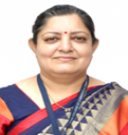 |
| Dr. Rajeshree Nanaware | Program Coordinator | M.Sc. (Mathematics), B.Ed., SET, Ph.D | 15 Years | 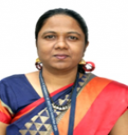 |
| Dr. Surekha Jogdand | Assistant Professor | M.Sc. (Chemistry), Ph.D. | 12 years | 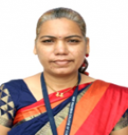 |
| Dr. Nisha Choudhari | Assistant Professor | M.Sc. (Botany), Ph.D | 7 years | 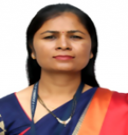 # # |
| Dr. Yogesh Jorapur | Assistant Professor | M.Sc. (Chemistry), Ph.D., Postdoc (Japan, S. Korea) | 2 yrs. Piramal Discovery Pharma; 8 yrs Postdoc. Japan/S. Korea; 2 yrs PG & 6 yrs UG teaching | 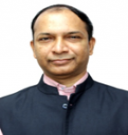 |
| Dr. Seema Barge | Assistant Professor | M.Sc. (Chemistry), Ph.D. | 5 years | 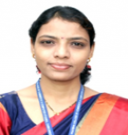 |
| Mrs. Ragini Chavan | Assistant Professor | M.Sc. (Statistics), Ph.D.(Perusing) | 11 years | 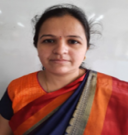 |
| Suruchi S. Somwanshi | Assistant Professor | M.Sc. (Statistics), M.Sc.(Mathematics), | 11 years | 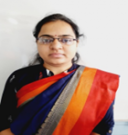 |
| Dr. Priti Kolhe | Assistant Professor | M.Sc., Ph.D.(Environmental Science) | 11 years | 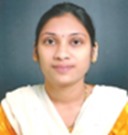 |
| Mr. Suklal Kumbhar | Assistant Professor | M.Sc. (Statistics),SET | 10 years | 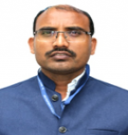 |
| Mr. Rokey Lopes | Assistant Professor | M.Sc. (Statistics) | 4 years | 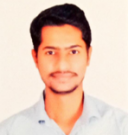 |
Faculty Achievements
Dr. Jayashree Muley:
- Chairman for syllabus reframing committee of Second Year B. Sc. Statistics of Savitribai Phule Pune University.
- Chairman for paper setting of Second Year B. Sc. Statistics and S.Y. M.Sc Statistics of Savitribai Phule Pune University.
- Coordinator for the practical Exam of Second Year B. Sc. Statistics of Savitribai Phule Pune University.
- Paper reviewer at MIT A.C.S.C. Alandi & Fergusson College Pune.
- Attended workshop on “Kachara Nako g Bai” between 12th to 15 February 2025 in online mode organized by Green Works Trust.
- Attended “Happiness Program” by Sri Sri Ravishankar, Aishwaryam Ventures Group.
Dr. Rajeshree Nanaware:
- Attended One Day Syllabus Framing Workshop for S.Y.B.Sc Mathematics (As per NEP2020) on 22nd April 2025.
- Invited as Resource Person for “One day Workshop on Python Programming in Mathematics for SYBSc(CS)at CCS College Wakad on 26th October 2024
- Completed “One Week Online Workshop on Mathematics Towards Machine Learning “
- Completed Online Certificate Course Cum Workshop of 32 hours on “AI AND GOOGLE TOOLS IN EDUCATION” organized by Sanatan Dharma College, Ambala Cantt from 21 th Nov 2024 to 30 th Nov 2024 with “A” Grade.
Dr. Surekha Jogdand
- Published paper in scopus indexed Journal Surekha Jogdand, Polyhedron, 2025
- Presented paper in International Workshop “Recent Advancement in Magnetism and Magnetic Materials” November 2024 organized by VIT -AP University, AndhraPradesh
- Participated in IP awareness training Program under NIPAM, October 2024
- Completed online faculty development program on”Advanced Functional Material-current research Innovation and Application “June 2024 organized by MIT and Maharashtra academy of Science
Dr. Nisha Choudhari
- Participated and presented posters in Two days International Conference on “Agriculture, Environment and Life Sciences” on dated 21st and 22nd February 2025.
- Under the Science stream Selected as a sub-committee member of S.Y. BSc. Botany syllabus framing/Setting as per NEP (2020) pattern.
- completed 3-day online course of Environmental Analytics: Basics of R Programming and Data Processing in Ecology, conducted by THE GREEN CONCEPT INSTITUTE FOR CARBON ASSESSMENT AND RESTORATION ECOLOGY, on 26 th to 28th July 2024.
- Completed Yoga teacher training level 1 and level 2 -Yog Pravesh and Yog Parichay, Central Government of India Aayush Mantralya Recognized, Yog-Vidyadham Nashik, Maharashtra, India.
- Appointed for Examination Work as Paper setter, Practical External examiner and Paper checking and moderator from SPPU, Pune.
- worked as Botanist – to Identification of Native and Exotic Tree species and seed storage methods as a free lance work and Social Awareness under CSIR Drive organized by “The Explores” trecking group.
Dr. Seema Patil
- Participated in IP awareness training Program under NIPAM, October 2024.
Dr. Yogesh Jorapur
- Jorapur, Y. R.; Shah, D.; Kankariya, R. “Synthesis, Bio-activity, and Spectral Characterization of Different 1,4-Naphthoquinone Derivatives and their Metal Chelates Proceedings of the National Conference on Advanced Materials and Spectoscopy (NCAMS-2024), Aug., 22-23, 2024 (ISBN 978-81-978426-5-8).
- Jorapur, Y. R.; Chaudhari, N. R.; Kulkarni, A.; Chatterjee, T.; Velhal, S. “Chemical, Nutritional, and Biomolecular Characteristics of Finger Millet (Eleusine coracana L.). Afr. J. Biol. Sci., 2024, 6 (12), 967–978 (ISSN 2663–2187); doi: 10.48047/AFJBS.6.12.2024.967-978.
- Three Months Internship; Ten Students were Mentored in a Community Outreach Program on “Cancer Awareness” in collaboration with the Indian Cancer Society, Delhi, and Guru Angad Dev Teaching Learning Centre, SGTB Khalsa College, University of Delhi under PMMMNMTT of Ministry of Education between 1st Feb. to 30th April 2024.
- Acted as Resource Person and Delivered Talk on “Research Paper: Citations & Impact Factor” as part of Two Day National Level Faculty Development Programme (Online) titled “Research Paper and Project Proposal Writing”, Organized by A.C.T Academy, Keralam and SVCET, Andhra Pradesh (Feb. 7 & 8, 2025)
- Appreciation Certificate for Mentoring the IDEARUN 2024 Presentation, “Digital Marketing to Boost Home-Based Businesses” in the online event Organized by South Asia Working Group, IEEE Smart Village, Gandhinagar, September, 21, 2024.
- Appointment as an Institute for Educational Research and Publication (IFERP) Review Committee Member, Since September, 28, 2024.
- Five Days Online Research Development Program (RDP) on the theme of “Research Methodology and Ethics in Research” Organized by Pune Institute of Business Management for PGDM from Jan. 20-24, 2025.
- Five Days National Level Workshop on “Frontiers In Chemical Research: Innovations And Applications” Organized by Department of Chemistry, Vel Tech Rangarajan Dr. Sagunthala R&D Institute of Science and Technology, Chennai from February, 17-21, 2025
- One Day National Level Research Workshop (Virtual Mode) on “Techniques to Publish Research Papers in Peer-Reviewed Journals”, Organized by A.C.T Academy, Kerala on Dec. 05, 2024.
- One-Week Virtual Research Faculty Development Program on “Research Methodology” from June 10-15, 2024, organized by Pune Institute of Business Management for PGDM, Savitribai Phule Pune University.
- Invited as an external practical examiner for End Semester Practical/Skill Examination to examine the candidates in Course-Engineering Chemistry (AUTO 3103), for Sem-I, of program-B.Tech. Automobile, at Symbiosis Skills & Professional University, Kiwale, Pune (May 6 & 7, 2025)
- Invited as an external practical examiner for FYMSc. (Organic Chemistry) at Department of Chemistry at Modern College of Arts, Science, and Commerce, Ganeshkhind, Pune (April 09, 2025)
- Invited as an external practical examiner for SYMSc. (Organic Chemistry) at Department of Chemistry at Modern College of Arts, Science, and Commerce, Ganeshkhind, Pune (March 22-25, 2025)
- Invited as an external practical examiner for TYMSc. (Organic Chemistry) at Department of Chemistry at Modern College of Arts, Science, and Commerce, Ganeshkhind, Pune (March 12, 2025)
15.Invited as an external practical examiner for End Semester Practical/Skill Examination to examine the candidates in Course-Engineering Chemistry (AUTO 3103), for Sem-I, of program-B.Tech. Automobile, at Symbiosis Skills & Professional University, Kiwale, Pune (Dec. 03, 2024).
Mrs.Amola Jeure
Attended One Day National Conference on Recent Developments in Pure and Applied Mathematics organized by P.A.H. Solapur University Solapur on 24th February 2025.
Mr. Suklal Kumbhar: Ph.D registration in Statistics
Students’ Achievements:
- Sneha Sharma – Secured second rank in the intra-college Book Review Competition organised by KRC under the Maharashtra Project.
- Shravan Malpote –
- Awarded Pratibha Merit Cum Income (EWS) Scholarship.
- Participated in State Level Open Chess Tournament, Genba Sopanrao Moze College of Engineering.
- Secured first prize in Sci_Quizathon organised by Department of Science, Pratibha College under Pragyan 2.0.
- Participated in Chess Competition organised by PCCCS.
- Secured first prize in Flashcard Fun organised by Department of Science, Pratibha College under Pragyan 2.0.
- Shivangi Chauhan – Participated in Indian Swachhata League 2.0 organised by Pimpri Chinchwad Municipal Corporation.
- Participated in Chemistry Poster Competition during Desai Karandak 2k24-25 at H.V. Desai College.
- Attended workshop on Astrobiology and Astronauts by LIFE-To and Beyond Foundation at Indian Science Festival, Fergusson College.
- Maithili Raut – Received first rank in Water Heritage Trust Competition organised by PCMC.
- Maithili Raut – Participated in Chemistry Poster Competition at Desai Karandak 2k24-25, H.V. Desai College.
- Bhagyshree Chakravarti –
- Participated in ACT Concept Test in Chemistry organised by Association of Chemistry Teachers.
- Bhagyshree Chakravarti – Participated in Chemistry Poster Competition at Desai Karandak 2k24-25, H.V. Desai College.
- Participated in AI Ideathon 2025 organised by Pratibha College under Vigyan 2.0.
- Pooja Chaudhary – Successfully completed 3-month Internship on Cancer Awareness.
- Zeba Siddiqui –
- Participated in workshop on IKS-TKDL with 75%, organised by IKS Division, Ministry of Education & TKDL Unit.
- Attended workshop on Astrobiology and Astronauts at Indian Science Festival, Fergusson College.
- Mahendra Chaudhary –
- Participated in Indian Swachhata League 2.0 organised by PCMC.
- Participated in Model Competition organised by Poona College of Arts, Science, and Commerce.
- Apurva Donur –
- Participated in AMC Hackathon organised by Annasaheb Magar Mahavidyalaya.
- Participated in Flashcard_Fun organised by Department of Science, Pratibha College under Pragyan 2.0.
- Participated in Sci_Games organised by Department of Science, Pratibha College under Pragyan 2.0.
- Supriya Sonawane –
- Participated in Jallosh 2024 under SPPU.
- Completed Online Job Skill Training in Customer Interactive Service by WNS Global Services.
- Completed TCS iON Career Edge – Young Professionals Course.
- Sakshi Chinchkar – Completed TCS iON Career Edge – Young Professionals Course.
- Neha Khetawat –
- Completed TCS iON Career Edge – Young Professionals Course.
- Completed Mastering Microsoft Power BI Course.
- Participated in Flashcard_Fun organised by Department of Science, Pratibha College under Pragyan 2.0.
- Aaryan Shinde – Participated in Flashcard_Fun organised by Department of Science, Pratibha College under Pragyan 2.0.
- Aaryan Rasal –
Participated in Sci_Games organised by Department of Science, Pratibha College under Pragyan 2.0.
- Introduction
- Objectives of the Program
- Special features
- Infrastructure
- Best Practices of the Department
- Gallery
- Staff
- Programmes & Courses Outcomes
- Syllabus
- Activities & Achievements
- Alumni
Introduction
Computer Science plays a pivotal role in this era of the digital revolution. Its presence in today’s world is ubiquitous. There is a great demand, both in industry and academia, for computer science graduates who have sound knowledge of the underlying concepts and principles of computer science as well as the ability to apply them to solve real-world problems.
The Department of Computer Science trains students to achieve these goals, which enables them to excel in their professional careers, whether in academics, research, or industry. The students study the design of digital hardware and software systems. Computer Science encompasses a wide range of topics like operating systems, computer architecture, computer networks, Mobile Computing, artificial intelligence and Software Engineering.
The Computer Science Department plays a pivotal role in advancing knowledge and skills in the field of computing. As technology continues to evolve, the department remains at the forefront of providing innovative education, cutting-edge research, and industry collaborations to prepare the next generation of computer scientists and engineers.engineers.
The Computer Science Department stands as a hub of technological innovation, fostering an environment where students can develop their skills, collaborate on groundbreaking research, and contribute to the future of computing. Through high-quality education, impactful research, and strong industry connections, we aim to create professionals who are not only technically adept but also socially responsible and capable of solving the complex problems of tomorrow’s world.
Mission & Vision:
The mission of the Computer Science Department is to provide a high-quality education that equips students with the knowledge, skills, and ethical grounding needed to excel in the ever-evolving field of computing. The department strives to foster critical thinking, creativity, and problem-solving abilities through rigorous academic programs, hands-on learning experiences, and collaborative research opportunities. Our vision is to be a leader in computer science education and research, producing graduates who contribute to technological innovation, societal advancement, and industry transformation
Objectives:
The Computer Science Department is dedicated to providing a world-class education, fostering innovative research, and preparing students for careers in the rapidly evolving field of computing. The department’s objectives guide its educational philosophy, curriculum design, research endeavors, and engagement with the community. Below are the primary objectives:
- Provide High-Quality Education
- Objective: To offer a comprehensive and rigorous curriculum that equips students with both theoretical knowledge and practical skills in computer science.
- Action: Develop and deliver courses in core areas such as programming, algorithms, data structures, software engineering, and system design, as well as specialized areas like artificial intelligence, machine learning, cybersecurity, and data science.
- Outcome: Graduates who possess a deep understanding of fundamental computing concepts and are prepared to contribute to the technology sector.
- Foster Research and Innovation
- Objective: To encourage cutting-edge research in diverse areas of computer science and foster an environment that nurtures innovation.
- Action: Promote research in areas such as artificial intelligence, blockchain technology, cybersecurity, data science, and human-computer interaction, and provide resources to faculty and students to conduct high-impact research.
- Outcome: Contribute to the advancement of knowledge and technology that addresses real-world challenges and drives progress in various industries.
- Cultivate Critical Thinking and Problem-Solving Skills
- Objective: To develop students’ ability to think critically, analytically, and creatively when solving complex problems.
- Action: Incorporate project-based learning, problem-solving tasks, hackathons, and case studies into the curriculum to ensure students are challenged to think outside the box.
- Outcome: Graduates who can approach problems with a solutions-oriented mindset and apply their skills in a variety of real-world scenarios.
- Promote Interdisciplinary Learning
- Objective: To encourage students to apply computer science principles across various domains and integrate knowledge from other fields.
- Action: Offer interdisciplinary courses and projects that combine computer science with disciplines such as bioinformatics, healthcare, economics, engineering, and social sciences.
- Outcome: Graduates who can work across multiple fields, understanding how technology intersects with other industries and solving problems in diverse areas.
- Prepare Students for the Workforce
- Objective: To ensure students are equipped with the technical and soft skills needed to succeed in the technology industry.
- Action: Collaborate with industry partners to offer internships, co-op programs, and job placements. Incorporate career preparation workshops focusing on resume building, interview techniques, and networking.
- Outcome: Graduates who are career-ready, with the technical expertise and soft skills needed to excel in fast-paced and dynamic job environments.
- Foster Lifelong Learning
- Objective: To instill a commitment to lifelong learning, encouraging students to continuously update their skills and knowledge in an ever-changing field.
- Action: Encourage participation in workshops, certification programs, and online learning platforms. Emphasize the importance of staying current with emerging technologies and trends.
- Outcome: Alumni who remain at the forefront of the technology field by continuously learning and adapting to new challenges and technologies.
- Promote Diversity and Inclusion
- Objective: To create a welcoming and inclusive environment that supports students from diverse backgrounds and fosters equality in computing.
- Action: Implement outreach programs targeting underrepresented groups in STEM, such as women, minorities, and students from disadvantaged communities. Provide mentorship and support to ensure all students succeed.
- Outcome: A more diverse student body and faculty, with equal opportunities for all to succeed in computer science.
- Engage with Industry and the Community
- Objective: To build strong partnerships with industry leaders, government bodies, and research organizations to provide students with real-world experiences and to enhance the department’s impact.
- Action: Establish industry advisory boards, invite guest speakers, collaborate on research, and organize industry-sponsored events like hackathons and coding competitions.
- Outcome: Strong connections between academia and industry, providing students with access to internships, job placements, and industry-sponsored research opportunities.
- Promote Ethical and Responsible Computing
- Objective: To ensure that students understand the ethical, legal, and social implications of their work in computer science.
- Action: Integrate courses and discussions on topics such as data privacy, cybersecurity, digital ethics, and the responsible use of technology.
- Outcome: Graduates who are aware of the societal impact of technology and who can make responsible and ethical decisions in their professional careers.
- Support Faculty Development and Research Excellence
- Objective: To attract and retain high-quality faculty members who are experts in their fields and committed to both teaching and research.
- Action: Provide support for faculty development through professional development programs, research funding, and collaboration opportunities.
- Outcome: A team of faculty members who are leaders in their respective research areas and who provide a high standard of education and mentorship to students.
Speacial Features
- Take-Flight ‘ -Induction Programme for Fresher’s
- Industry and Excursion Tours
- Corporate Week sessions by Industry Experts
- Ph.D. /NET/SET qualified and approved faculty members with corporate exposure
- Placement of Students with top companies
- Focus on Experiential Learning in the form of field visit, project and so on.
- National Level, State Level Seminars and Workshop, Quiz are organised.
- Excellent Infrastructure with spacious class rooms.
- Seminars and Guest Lectures by Industrialists and subject experts to update the
current trend
- Start-up are encouraged for students to get the practical exposure.
Student Mentor -Mentee system.
- Student Earn and Learn scheme.
- Various Departmental activities like Brain O Blossom, Vitamin C, Wasted
Potential, Touch of Ink, Brian-O-Fest, Slide -o-Geek, and C-Zombies. Techintellect ,etc
- Remedial lectures are conducted.
- Computer Science Association is established to nurture the student’s talent and
creativity.
- Cutting-Edge Research Opportunities for UG & PG Students
- Strong Industry Connections for providing OJT ,field Work , Internships & Placements to Students
- Strong Focus on Ethical Computing
- Faculty Expertise and Mentorship for students betterment
- Focus on Diversity and Inclusion
- Guest Lectures & Workshops for Students to upskill them and bridge gap between Industry and Academia needs.
Open Sources :
C, php, java, netbeans, postgresql, wamp, open GL on linux platform.
- Curriculum Design and Development
- Industry Alignment: Continuously update the curriculum to align with industry trends and technological advancements (e.g., AI, Machine Learning, Cybersecurity, Blockchain).
- Hands-On Learning: Focus on practical application alongside theoretical knowledge. Incorporate labs, coding projects, and real-world problem-solving.
- Interdisciplinary Approach: Introduce courses that integrate computer science with other fields (e.g., bioinformatics, robotics, data science) to provide broader learning opportunities.
- Focus on Soft Skills: Offer courses on communication, teamwork, problem-solving, and leadership to prepare students for the workplace.
- Research Excellence
- Encourage Faculty Research: Support faculty in publishing papers, attending conferences, and engaging with the broader academic community.
- Collaborations and Grants: Actively seek research grants and build partnerships with industry to fund research projects and initiatives.
- Undergraduate Research Opportunities: Provide opportunities for undergraduate students to engage in research, perhaps through capstone projects or dedicated research labs.
- Foster Innovation: Encourage the creation of tech startups, innovation hubs, and student-led hackathons to drive entrepreneurship within the department.
- Effective Teaching Practices
- Active Learning: Use group discussions, peer coding, and problem-based learning to create an engaging, interactive learning environment.
- Diverse Assessment Methods: Include a mix of individual projects, group work, exams, and presentations to assess student performance in different ways.
- Feedback Mechanisms: Implement regular and timely feedback on assignments and projects to help students improve.
- Online Learning Platforms: Leverage MOOCs, video lectures, and online collaboration tools to complement in-person classes.
- Student Support and Engagement
- Mentorship Programs: Pair students with faculty or industry professionals who can offer guidance on both academic and career paths.
- Career Services: Provide dedicated career services that help students prepare for job placements, internships, and interviews with tech companies.
- Hackathons & Competitions: Organize coding competitions, hackathons, and code sprints to encourage collaboration and hands-on problem solving.
- Peer Learning: Set up peer tutoring, coding clubs, and student groups where students can learn from and help each other.
- Internship Opportunities: Collaborate with industry partners to provide internships and practical exposure to students.
- Inclusive Environment
- Diversity & Inclusion: Foster a diverse and inclusive environment by encouraging participation from underrepresented groups in computer science (e.g., women in tech, minority students).
- Flexible Learning Paths: Offer both part-time and full-time options, and provide online or hybrid learning for non-traditional students.
- Accessible Resources: Ensure all resources (course materials, labs, software) are accessible to students with disabilities.
- Safe and Supportive Culture: Maintain a culture where students feel comfortable voicing concerns, asking questions, and being creative without fear of judgment.
- Collaboration with Industry
- Industry Advisory Board: Establish an advisory board made up of professionals and alumni who can provide guidance on curriculum, research, and job market trends.
- Guest Lectures & Workshops: Bring in industry experts for guest lectures and hands-on workshops, allowing students to engage with real-world challenges.
- Internships and Job Placements: Build strong relationships with companies to secure internship and job placement opportunities for students.
- Technology and Infrastructure
- State-of-the-Art Labs: Keep computer labs well-equipped with the latest hardware, software, and networking tools to meet the demands of modern computing.
- Cloud Computing & Virtualization: Provide cloud-based computing environments for remote learning, experimentation, and testing.
- Security Protocols: Implement robust cybersecurity measures in both student and faculty systems to ensure data protection.
- Software Tools: Ensure that students and faculty have access to the latest software tools required for courses (e.g., IDEs, design tools, analytics software).
- Professional Development for Faculty
- Continuous Learning: Encourage faculty to continue learning by attending workshops, seminars, and pursuing further studies (e.g., online certifications, Ph.Ds).
- Collaboration Opportunities: Foster collaboration among faculty members on joint research projects, teaching innovations, and conferences.
- Industry Exposure: Allow faculty to participate in industry-based projects and collaborations to stay updated with current technology trends.
- Teaching Support: Provide training and resources for new faculty members to help them effectively teach and engage with students.
- Evaluation and Improvement
- Regular Program Evaluation: Regularly assess and revise the curriculum and teaching methods to ensure the department stays up-to-date with industry and academic trends.
- Student Feedback: Collect and act upon student feedback regarding courses, faculty, and department services.
- Accreditation & Benchmarking: Seek accreditation from recognized academic bodies and benchmark against other leading computer science programs globally.
- Alumni Network and Industry Partnerships
- Strong Alumni Network: Create a vibrant alumni network to foster career opportunities, mentorship, and donations to support the department.
- Industry Partnerships: Build long-term relationships with tech companies, government bodies, and research organizations to support funding, collaborative research, and job placement.
 Programmes & Courses Outcomes: Click Here
Programmes & Courses Outcomes: Click Here
BSC (Computer Science)
Curricular activity:
- Conducted Remedial / Bridge course.
- Cyber Security & CPMA.
- Workshop on software development.
Co- Curricular activity:
- National Level Conference.
- “Bits Bytes in IT “& “Recent Trends in IT.
- State Level Seminar in Statistics.
- State Level Seminar In Electronic.
- Soft –Skills & Personality Development Programs.
- Career Counselling & Mentoring.
- Hands-On Industrial Training Visits.
- Guest Lecture Series.
- Sports Day.
Extra-curricular activity:
- Alumni Engagement & Take Flight.
- Live Project Trainings.
- Entrepreneurship Development.
- Departmental Activities (Techphilphia, Electrofest, Mathstract, Brain-o –Fest).
- Teacher Day Celebrations.
- Notice board.
- Parent’s meeting.
Social concern:
- Skill Development Trainings.
Faculty Achievements : Click Here
- Introduction
- Objectives of the Program
- Special features
- Infrastructure
- Best Practices of the Department
- Gallery
- Staff
- Programmes & Courses Outcomes
- Syllabus
- Activities & Achievements
- Alumni
Establishment
Computer Science plays a pivotal role in this era of the digital revolution. Its presence in today’s world is ubiquitous. There is a great demand, both in industry and academia, for computer science graduates who have sound knowledge of the underlying concepts and principles of computer science as well as the ability to apply them to solve real-world problems.
The Department of Computer Science trains students to achieve these goals, which enables them to excel in their professional careers, whether in academics, research, or industry. The students study the design of digital hardware and software systems. Computer Science encompasses a wide range of topics like operating systems, computer architecture, computer networks, Mobile Computing, artificial intelligence and Software Engineering.
Objectives of Computer Science Department:
1. Possess practical and theoretical knowledge of computer science sufficient to earn a living and contribute to the development of the country.
2. Be prepared for advanced education in computer science.
3. Demonstrate proficiency in the analysis of complex problems and the synthesis of solutions to those problems.
4. Advance the state−of−the−art in computer science and software engineering through the achievement of fundamental advances, testing these advances through their application to hard problems.
5. Instruct undergraduate and Post -Graduate students in the state−of−the−art scientific and engineering methods pertinent to computer science and software engineering in order to lead students to a point of understanding where they remain inquisitive, serious, ethical, and creative problem solvers.
6. Be engaged in local, regional, and state social and economic development for the benefit of both the public and private sectors.
- ‘Take-Flight ‘ -Induction Programme for Fresher’s
- Industry and Excursion Tours
- Corporate Week sessions by Industry Experts
- Ph.D. /NET/SET qualified and approved faculty members with corporate exposure
- Placement of Students with top companies
- Focus on Experiential Learning in the form of field visit, project and so on.
- National Level , State Level Seminars and Workshop , Quiz are organised.
- Excellent Infrastructure with spacious class rooms.
- Seminars and Guest Lectures by Industrialists and subject experts to update the
current trend - Start-up are encouraged for students to get the practical exposure.
Student Mentor -Mentee system. - Student Earn and Learn scheme.
- Various Departmental activities like Brainc Blossom , Vitamin C, Wasted
Potential,Touch of Ink , Brian-O-Fest , Slide -o-Geek, C-Zommbie . Techintellect ,etc - Remedial lectures are conducted.
- Computer Science Association is established to nurture the student’s talent and
creativity.
Open Sources :
C, php, java, netbeans, postgresql, wamp, open GL on linux platform.
Infrastructure
- Industrial Visit to esteem organizations, to provide practical knowledge to students like
a. Cotton King
b. Peppermint
c. Nanadan Dairy
d. SusGarments Artisan garments - Start up activities
- Social Responsibility Activity with Vatsalya Matimand School
- Every year during Diwali. we help to sells Diwali Diyas at college premises made by Physically challenged students.
 Programmes & Courses Outcomes: Click Here
Programmes & Courses Outcomes: Click Here
Curricular activity :
- Conducted Remedial / Bridge course.
- Cyber Security & CPMA.
- Workshop on software development.
Co- Curricular activity :
- National Level Conference.
- “Bits Bytes In IT “ & “ Recent Trends in IT.
- State Level Seminar In Statistics.
- State Level Seminar In Electronic.
- Soft –Skills & Personality Development Programs.
- Career Counseling & Mentoring.
- Hands-On Industrial Training Visits .
- Guest Lecture Series.
- Sports Day.
Extra-curricular activity :
- Alumni Engagement & Take Flight.
- Live Project Trainings.
- Entrepreneurship Development.
- Departmental Activities (Techphilphia , Electrofest ,Mathstract ,Brain-o –Fest ).
- Teacher Day Celebrations.
- Notice board.
- Parent’s meeting.
Social concern :
Skill Development Trainings.
Faculty Achievement:
Student Achievement:
- Introduction
- Objectives of the Program
- Course Outcomes & Program Outcomes
- Infrastructure
- Activities and Achievements
- Staff
- Syllabus
Establishment / Milestones
Cyber and Digital Science is a niche subject of modern studies which will prepare students for professional work in business and industry, as well as government and law enforcement.
Students will gain insights into the design of digital technologies, and the policy challenges of deploying such technologies, with broad-based training that will draw from computer science, engineering, research methods, management, economics, and other social sciences.
Objectives
- To strengthen the basics of the subject useful in selecting various career options.
- To make students aware of cyber-crime, cyber security and learn ways to handle them.
- To produce entrepreneurs who can work in the area of Cyber and Digital Forensics.
Highlights
- 3 Years Bachelor Degree
- Affiliated to Savitribai Phule Pune University
- Highly qualified, experienced & approved staff.
- Specialized Degree with Promise of Global Career
- Focus on Experiential Learning in the form of field visit, project and so on
- Focused Practical Training
- Excellent Infrastructure with spacious class rooms, computer laboratory.
- Industry-Academia Extension Lectures
- Seminars and Guest Lectures by Industrialists and subject experts.
- Technical & Non-technical program are arranged to enhance the IT & soft skills.
- Student mentoring system for giving personal touch to each of the students.
- The faculty member provides constant support and every piece of advice to the students whenever he/she faces a problem with any aspect of the curriculum or any personal problems.
- Earn and Learn scheme
IT Resources:
| Sr. No. | Name | Total No of License |
| 01 | Antivirus Software: Quick heal Seqrite for Windows | Admin Console 500/- Copies 2 |
| 02 | Microsoft | Campus Agreement 3 |
| 03 | Linux Kali
| Open Sources |
Physical Facilities:
| Physical Facilities |
| 1. No. of IT enabled classrooms: 2 |
| 2. No. of laboratories: 3 |
| 3. T3 (Capacity – 40) |
| 4. T14 Lab (Capacity – 40) |
| 5. S4 Lab (Capacity – 40) |
| 6. Electronic Lab (Capacity – 40) |
- Guest Lectures
- Workshops/seminars
- Days Celebration
- Intra-Collegiate and Inter-collegiate Competitions
- Student Achievements in AY 2022-23:
- Ms. Kalyani Chavan from F.Y B.Sc(CDS) participated in LOGO Competition and won First prize in Intra-Collegiate Competition.
- Mr. Dhanraj Lugade from F.Y B.Sc(CDS) participated in LOGO Competition and won Third prize in Intra-Collegiate Competition.
- Ms. Bhagyashree Dudhbhate from F.Y B.Sc(CDS) won Cyber Warrior Award by Quick Heal Foundation.
- Ms. Ganga Sutar and Ms. Sinori Puranik, students of F.Y.B.Sc(CDS) won the Second and Third prize in Mathematical Model/ poster Competition organized by Department of Mathematics
- Ms. Sanskriti Thorat from F.Y B.Sc(CDS) secure 2nd Rank in Python Add-on Course conducted by SCSS`s Rajashri Shahu Mahavidyalaya (Autonomous),Latur.
- Ms. Mitusha Patil student of F.Y.B.Sc(CDS) won the 3rd Prize in Eassy Competition conducted by NSS.
Name Of Faculty | Designation | Qualification | Experience | Photo |
|---|---|---|---|---|
| Mrs. Dipali L. Mahajan | Program Coordinator | M.Sc. (C.S.) SET | 16 Years | 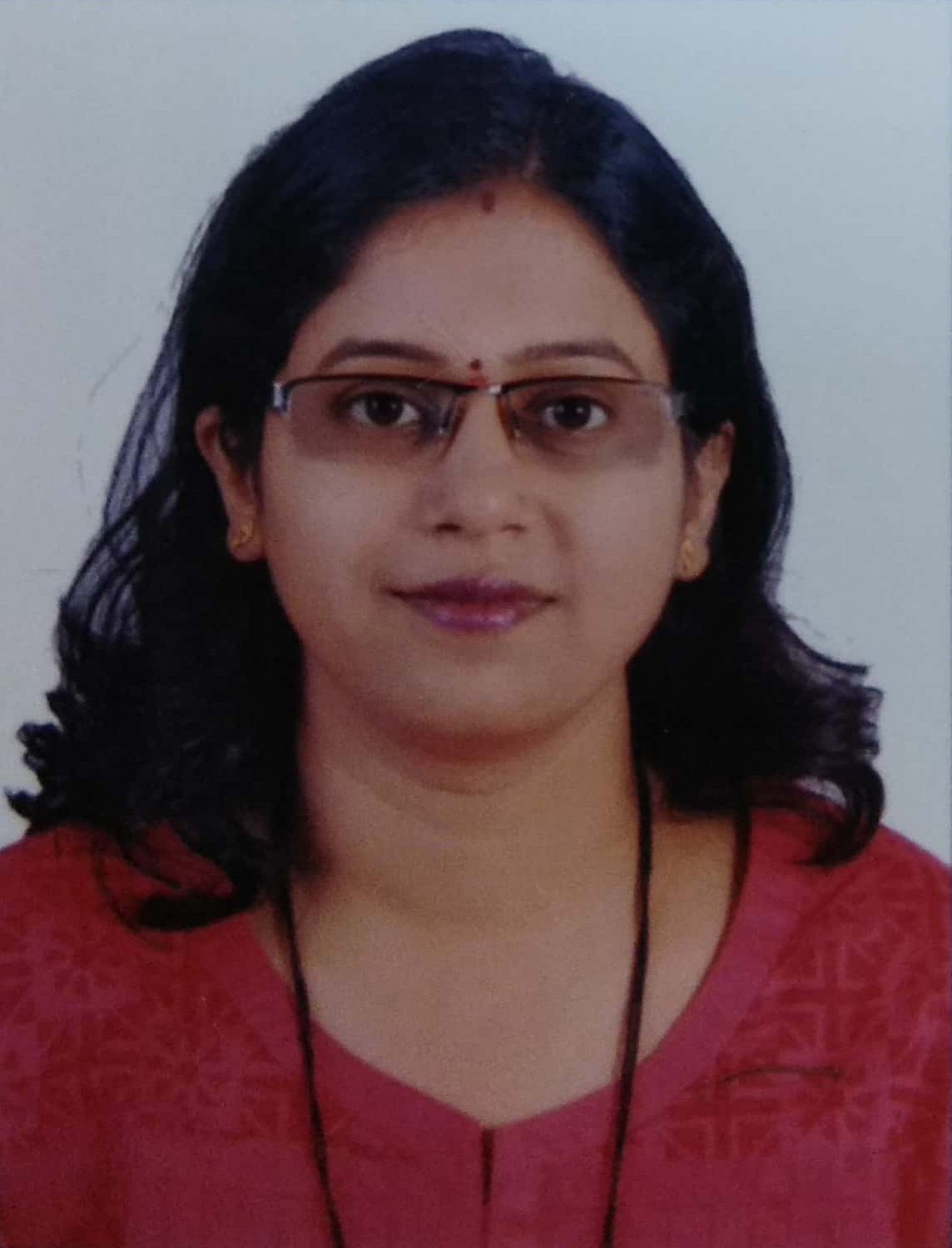 |
| Dr. Aparna Joshi | Assistant Professor | M.Sc.(C.S), B.Ed, SET, Ph.D. | 19 Years | 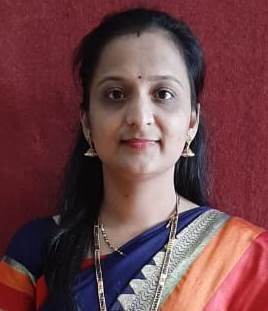 |
| Mrs. Neeta Gatkal | Assistant Professor | M.Sc. (Electronics) NET | 15 Years | 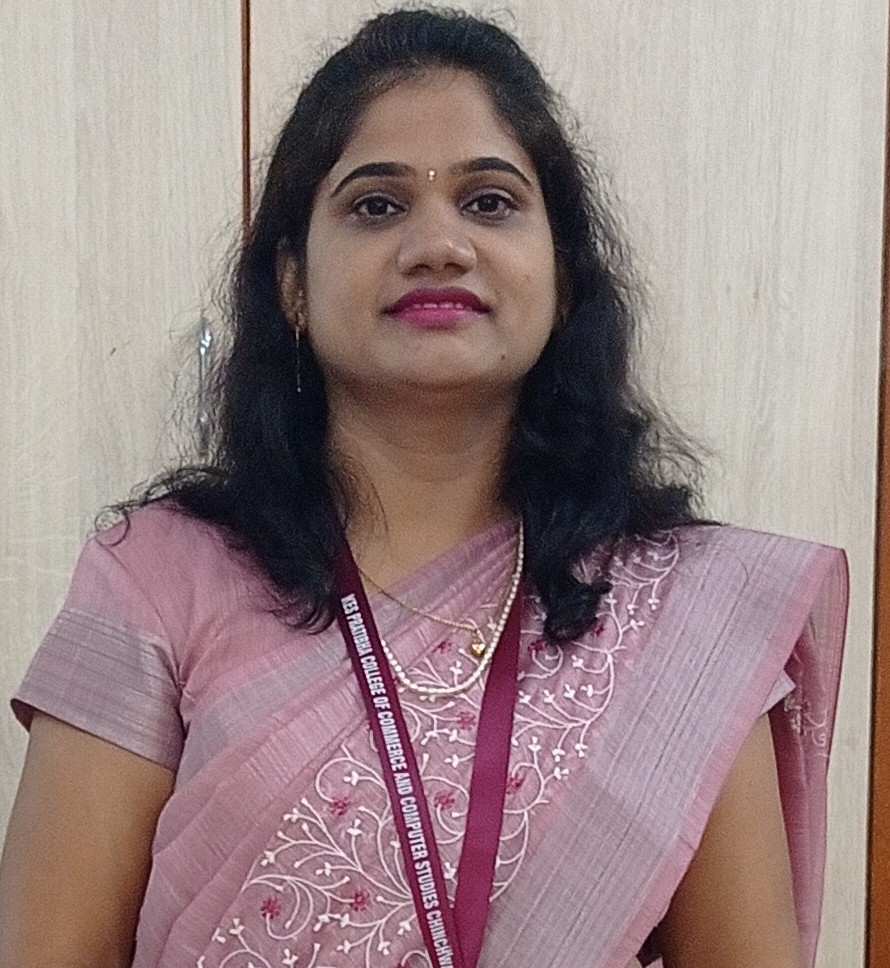 |
| Dr Anuradha Ghodke | Assistant Professor | MA MPhil PhD (English) | 16+ Years | 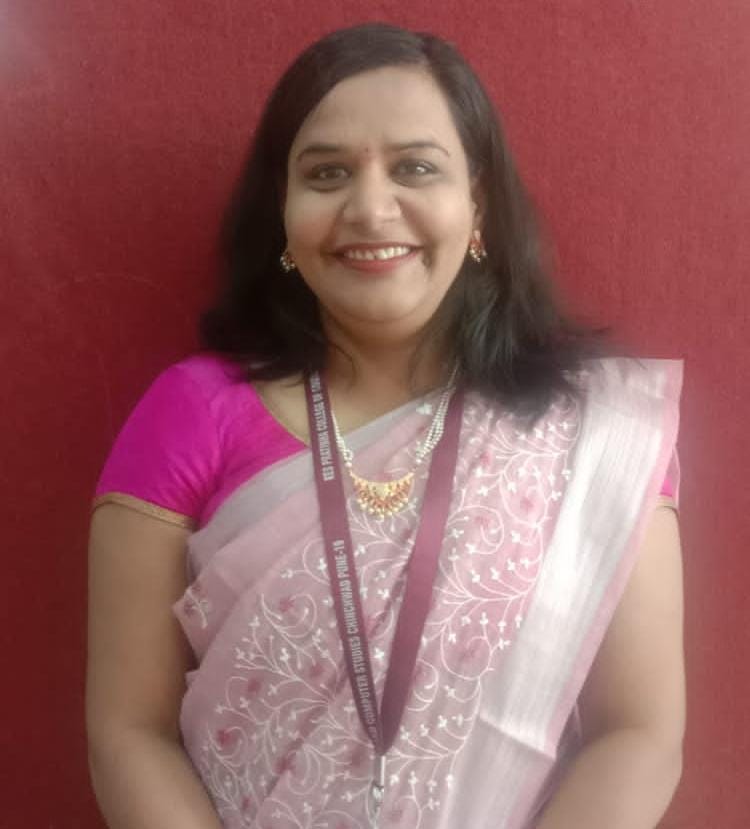 |
| Mrs. Prajakta A Yeole | Assistant Professor | MCA | 1 Year | 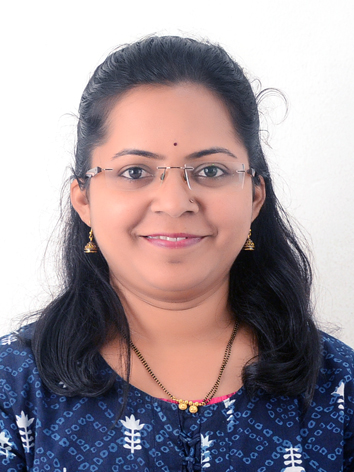 |
| Mrs. Madhuri Chaudhari | Assistant Professor | MCA, Pursuing Ph.D | 10+ Years |  |
| Mrs. Mayura Sawant | Assistant Professor | M.Sc(CS) | 9 Years |  |
| Ms. Shivani S Tikone | Assistant Professor | M.Sc(CS) | 2 Years | 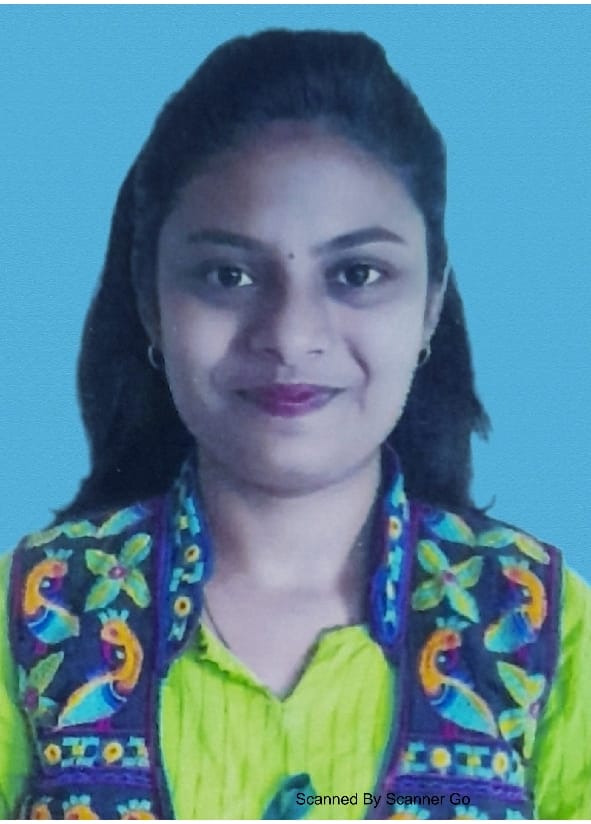 |
| Mrs. Pallavi Suryawanshi | Assistant Professor | M.Sc(CS) | 8+ Years | 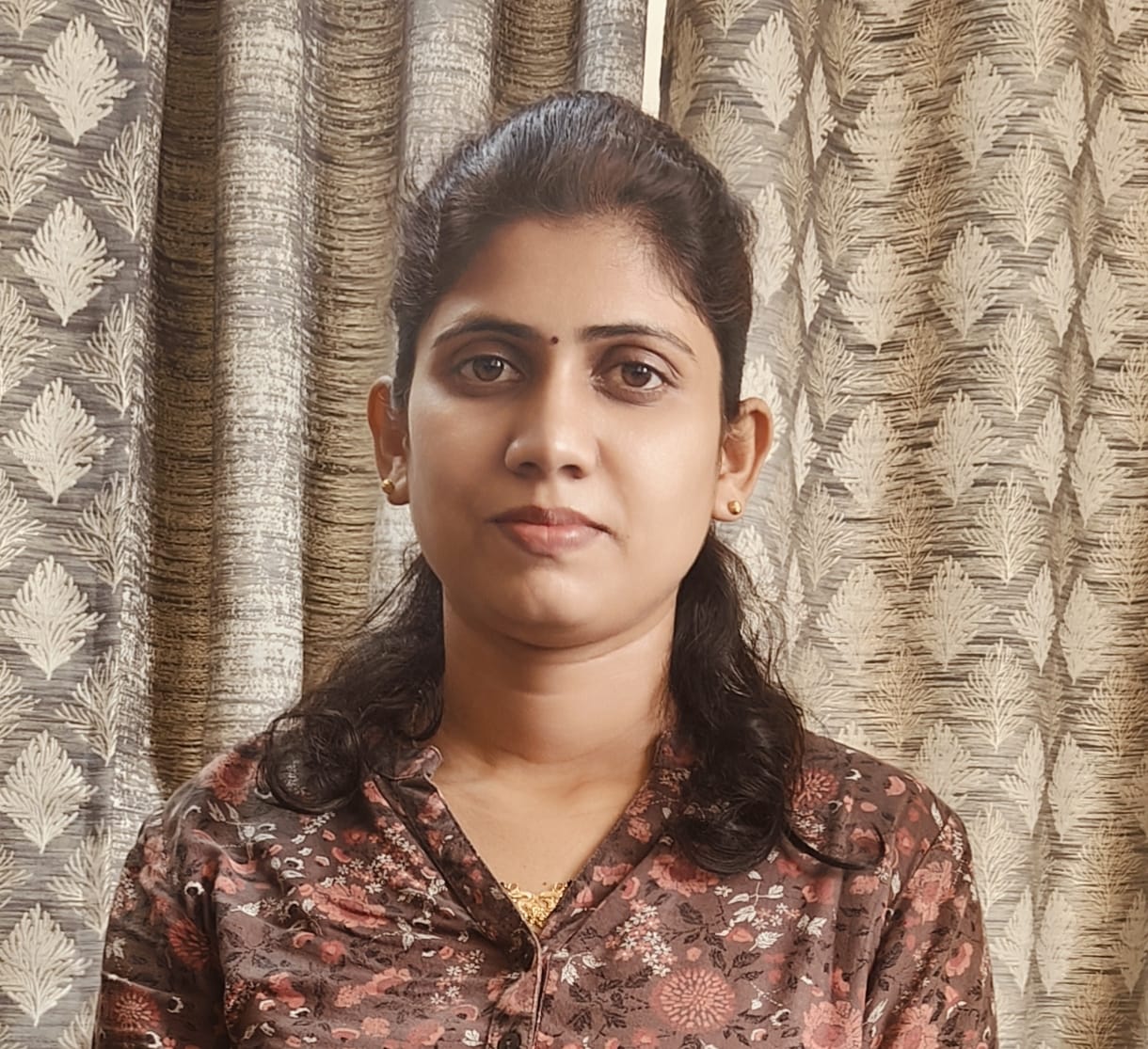 |
| Mrs. Pallavi Patil | Assistant Professor | MCA | 4.5 Years | 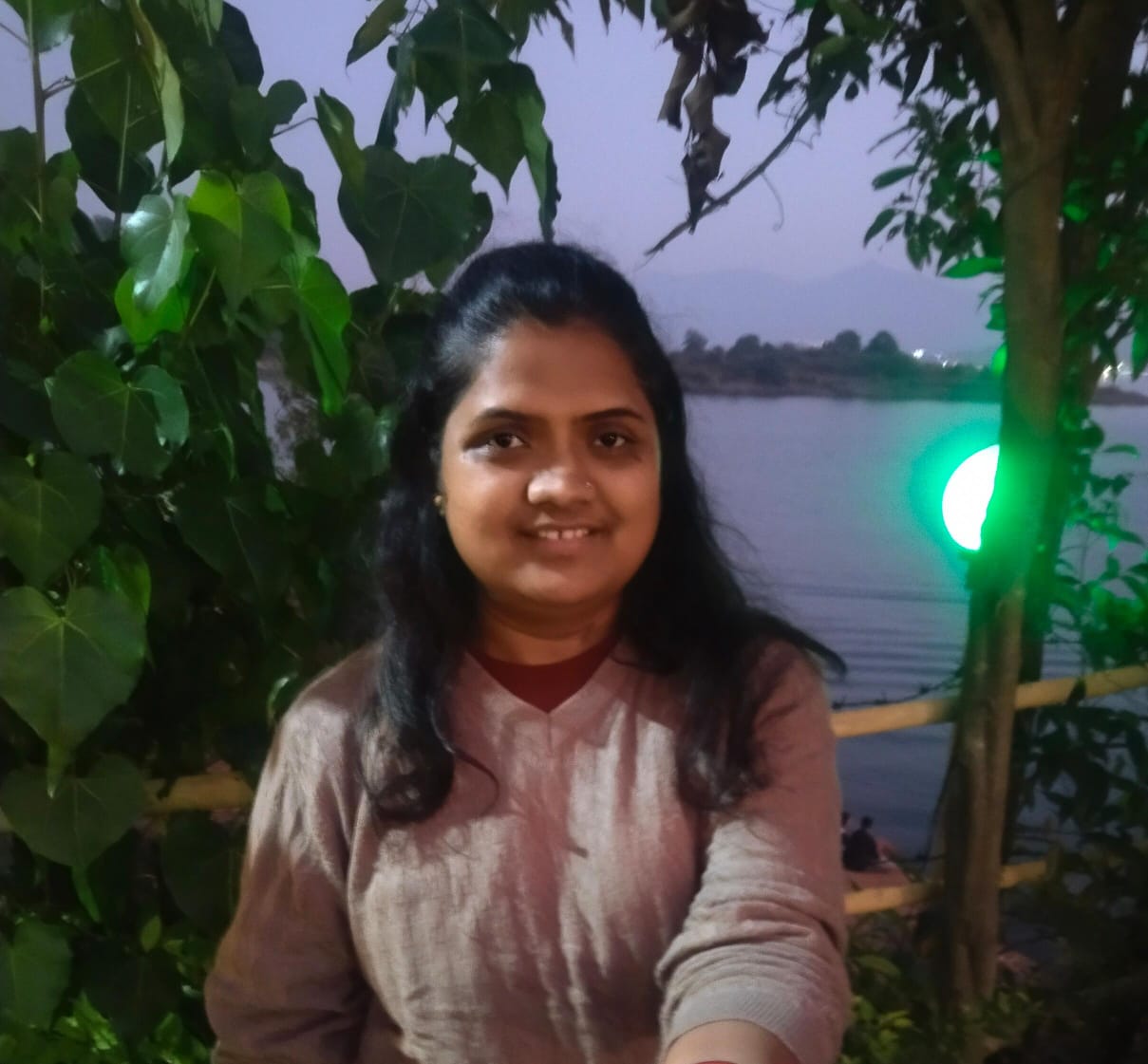 |
| Ms. Kanchan Patil | Assistant Professor | M.Sc. (CS) | 1.4 Years | 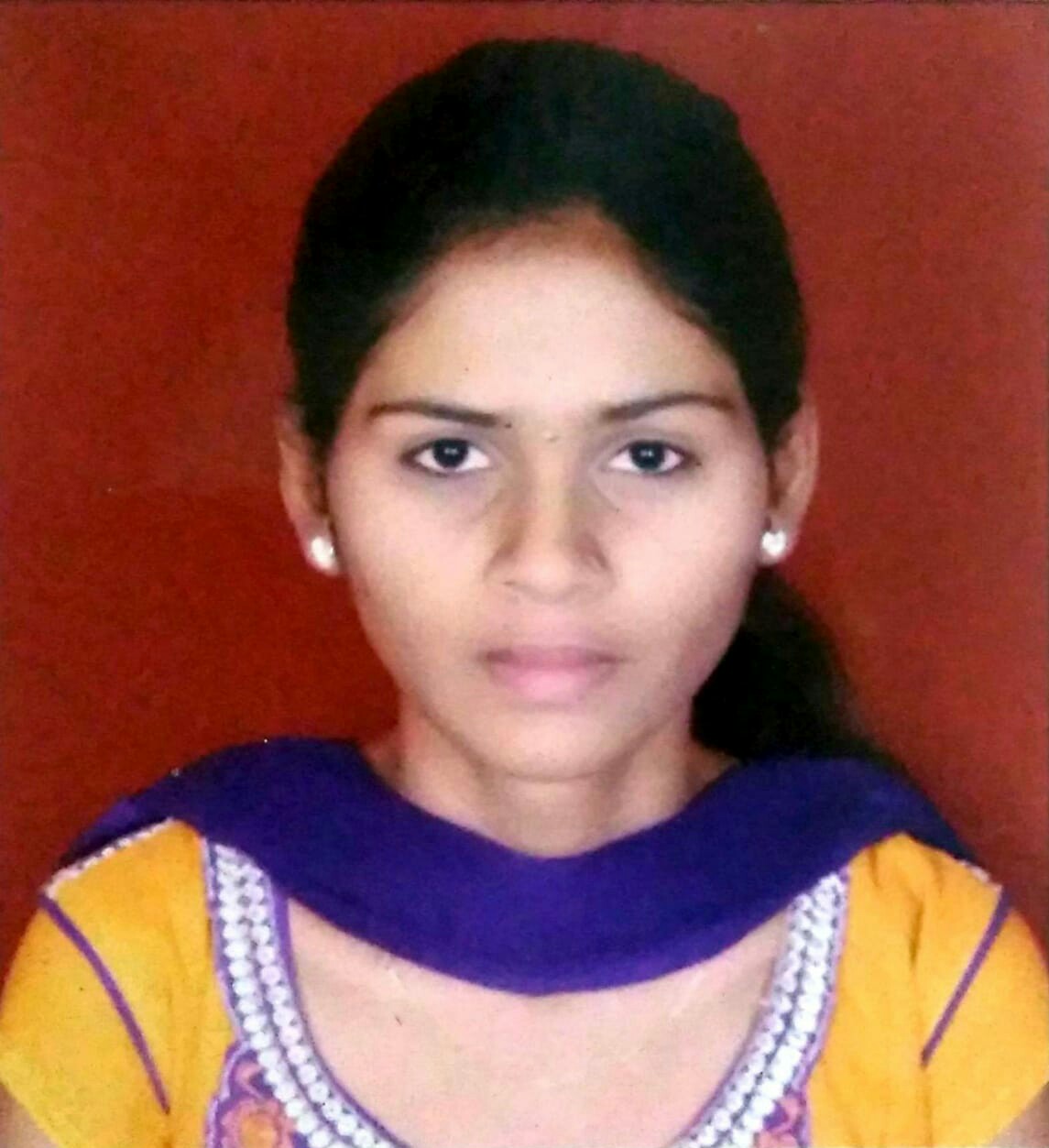 |
- Introduction
- Objectives of the Program
- Course Outline
- Infrastructure
- Activities and Achievements
- Staff
Establishment / Milestones
Cyber and Digital Science is a niche subject of modern studies which will prepare students for professional work in business and industry, as well as government and law enforcement.
Students will gain insights into the design of digital technologies, and the policy challenges of deploying such technologies, with broad-based training that will draw from computer science, engineering, research methods, management, economics, and other social sciences.
Objectives
- To strengthen the basics of the subject useful in selecting various career options.
- To make students aware of cyber-crime, cyber security and learn ways to handle them.
- To produce entrepreneurs who can work in the area of Cyber and Digital Forensics.
Highlights
- 3 Years Bachelor Degree
- Affiliated to Savitribai Phule Pune University
- Highly qualified, experienced & approved staff.
- Specialized Degree with Promise of Global Career
- Focus on Experiential Learning in the form of field visit, project and so on
- Focused Practical Training
- Excellent Infrastructure with spacious class rooms, computer laboratory.
- Industry-Academia Extension Lectures
- Seminars and Guest Lectures by Industrialists and subject experts.
- Technical & Non-technical program are arranged to enhance the IT & soft skills.
- Student mentoring system for giving personal touch to each of the students.
- The faculty member provides constant support and every piece of advice to the students whenever he/she faces a problem with any aspect of the curriculum or any personal problems.
- Earn and Learn scheme
IT Resources:
Sr. No. | Name | Total No of License |
01 | Antivirus Software: Quick heal Seqrite for Windows | Admin Console 500/- Copies 2 |
02 | Microsoft | Campus Agreement 3 |
03 | Linux Kali
| Open Sources |
Physical Facilities:
Physical Facilities |
1. No. of IT enabled classrooms: 2 |
2. No. of laboratories: 3 |
3. T3 (Capacity – 40) |
4. T14 Lab (Capacity – 40) |
5. S4 Lab (Capacity – 40) |
6. Electronic Lab (Capacity – 40) |
- Guest Lectures
- Workshops/seminars
- Days Celebration
- Intra-Collegiate and Inter-collegiate Competitions
- Student Achievements in AY 2022-23:
- Ms. Kalyani Chavan from F.Y B.Sc(CDS) participated in LOGO Competition and won First prize in Intra-Collegiate Competition.
- Mr. Dhanraj Lugade from F.Y B.Sc(CDS) participated in LOGO Competition and won Third prize in Intra-Collegiate Competition.
- Ms. Bhagyashree Dudhbhate from F.Y B.Sc(CDS) won Cyber Warrior Award by Quick Heal Foundation.
- Ms. Ganga Sutar and Ms. Sinori Puranik, students of F.Y.B.Sc(CDS) won the Second and Third prize in Mathematical Model/ poster Competition organized by Department of Mathematics
- Ms. Sanskriti Thorat from F.Y B.Sc(CDS) secure 2nd Rank in Python Add-on Course conducted by SCSS`s Rajashri Shahu Mahavidyalaya (Autonomous),Latur.
- Ms. Mitusha Patil student of F.Y.B.Sc(CDS) won the 3rd Prize in Eassy Competition conducted by NSS.
Name Of Faculty | Designation | Qualification | Experience | Photo |
|---|---|---|---|---|
| Mrs. Dipali L. Mahajan | Program Coordinator | M.Sc. (C.S.) SET | 16 Years |  |
| Dr. Aparna Joshi | Assistant Professor | M.Sc.(C.S), B.Ed, SET, Ph.D. | 19 Years |  |
| Mrs. Neeta Gatkal | Assistant Professor | M.Sc. (Electronics) NET | 15 Years |  |
| Dr Anuradha Ghodke | Assistant Professor | MA MPhil PhD (English) | 16+ Years |  |
| Mrs. Prajakta A Yeole | Assistant Professor | MCA | 1 Year |  |
| Mrs. Madhuri Chaudhari | Assistant Professor | MCA, Pursuing Ph.D | 10+ Years |  |
| Mrs. Mayura Sawant | Assistant Professor | M.Sc(CS) | 9 Years |  |
| Ms. Shivani S Tikone | Assistant Professor | M.Sc(CS) | 2 Years |  |
| Mrs. Pallavi Suryawanshi | Assistant Professor | M.Sc(CS) | 8+ Years |  |
| Mrs. Pallavi Patil | Assistant Professor | MCA | 4.5 Years |  |
| Ms. Kanchan Patil | Assistant Professor | M.Sc. (CS) | 1.4 Years |  |
Preamble
The B.Sc. (Information Technology) and B.Sc. (Information Technology) (Honors/Research) is specially structured three and four years program respectively with Information Technology as a major subject under the faculty of Science and Technology.
The objective of the course is to think analytically, creatively and critically in developing robust, extensible and highly maintainable technological solutions to simple and complex problems or to pursue advance studies and research in Information Technology. The syllabus which comprises of Information Technology (Major) subject along with that of three allied subjects (Mathematics, Electronics, Statistics) (Minor) covers the key aspects of Information technology and also develops the necessary professional skills and problem solving abilities using Information Technology.
Introduction:
Information Technology is the study of quantity, structure, space and change, focusing on problem solving, application development with wider scope of application in science and technology, social sciences etc. throughout the world in last couple of decades and it has carved out a space for itself like any other disciplines of basic Science and Technology.
The Students completing this programme will be able to present software application clearly and precisely, make abstract ideas precise by formulating them in the computer languages. Completion of this programme will also enable the learners to join teaching profession, enhance their employability for government jobs, jobs in software industry, banking, insurance and investment sectors, data analyst jobs and jobs in various other public and private enterprises.
At the First year, course is based on problem solving and programming along with Designing and Development Skills. Primary Concepts of C Programming, Python, Database and Computer Networking are also introduced in course. The practical courses are designed to support the theoretical training in the year.
Along with Information Technology (Major), VSC and SEC courses helps in building a personality. Another Aspect of this course is IKS which tells about the rich heritage and advancement of India in the field of computation.
At the second year, computational problem solving skills are further strengthened by course in Data Structure using python. Object Oriented Programming using Java and Programming Concepts in Database Management System are also introduced in this year.
At the third year, all the courses are designed to fulfill core Information technology requirements as well as the needs of the IT industry. Major elective courses are taking care of recent trends in the field of Information Technology.
Minor and skills Enhancement courses enable the students to acquire additional skills.
At the fourth year (Honors) and (Research), all the subjects are designed to fulfill core Information Technology requirements as well as meet the needs of the IT industry.
Practical courses and field projects enable students to get hands on training. Numerous learning tracks are open through major elective courses. Research Methodology course will create interest among a student to bring research in the field of Information Technology.
Objectives
- Equip students with the knowledge and skills to design, implement, and manage computer networks, ensuring secure and efficient communication.
- To apply their knowledge and skills to be employed and excel in IT professional careers and/or to continue their education in IT and/or related Post Graduate programs.
- It enables an IT graduate to start their own Software Development Company.
- To make the students industry ready by teaching them to apply the technologies in various fields of IT, including Mobile applications, Web site Development and Management, Databases, and Computer Networks.
Eligibility
- Higher secondary school certificate (10+2) Science or its equivalent examination with English.
OR
- Three-year diploma course from the board of technical education conducted by Government of Maharashtra or its equivalent.
OR
- Higher secondary school certificate (10+2) Examination with English and a vocational subject of +2 level (MCVC)
PO No. | Outcomes |
PO1 | Analyses a problem and identify and define the computing requirements appropriate to its solution |
PO2 | Focuses on preparing students for roles pertaining to computer applications and IT industry |
PO3 | Developing programming skills, networking skills, learn applications, programming languages and modern techniques of IT |
PO4 | Get skills and information about computers and information technology |
PO5 | Learn programming languages such as C, Python, Java, HTML, PHP, SQL, etc. |
PO6 | Information about various computer applications and latest development in IT. |
PO7 | Gives overview of the topics in IT like networking, computer graphics, web development, trouble shooting, and hardware and software skills. |
PO8 | Ability to select appropriate techniques to tackle and solve problems in the discipline of Information Technology. |
.
Name Of Faculty | Designation | Qualification | Experience | Photo |
|---|---|---|---|---|
| Mrs. Dipali L. Mahajan | Program Coordinator | M.Sc. (C.S.) SET | 16 Years |  |
| Dr Anuradha Ghodke | Assistant Professor | MA MPhil PhD (English) | 16+ Years |  |
| Mrs. Prajakta A Yeole | Assistant Professor | MCA | 1 Year |  |
| Ms. Shivani S Tikone | Assistant Professor | M.Sc(CS) | 2 Years |  |
| Mrs. Pallavi Suryawanshi | Assistant Professor | M.Sc(CS) | 8+ Years |  |
| Mrs. Pallavi Patil | Assistant Professor | MCA | 4.5 Years |  |
| Ms. Kanchan Patil | Assistant Professor | M.Sc. (CS) | 1.4 Years |  |
Preamble
The B.Sc. (Information Technology) and B.Sc. (Information Technology) (Honors/Research) is specially structured three and four years program respectively with Information Technology as a major subject under the faculty of Science and Technology.
The objective of the course is to think analytically, creatively and critically in developing robust, extensible and highly maintainable technological solutions to simple and complex problems or to pursue advance studies and research in Information Technology. The syllabus which comprises of Information Technology (Major) subject along with that of three allied subjects (Mathematics, Electronics, Statistics) (Minor) covers the key aspects of Information technology and also develops the necessary professional skills and problem solving abilities using Information Technology.
Introduction:
Information Technology is the study of quantity, structure, space and change, focusing on problem solving, application development with wider scope of application in science and technology, social sciences etc. throughout the world in last couple of decades and it has carved out a space for itself like any other disciplines of basic Science and Technology.
The Students completing this programme will be able to present software application clearly and precisely, make abstract ideas precise by formulating them in the computer languages. Completion of this programme will also enable the learners to join teaching profession, enhance their employability for government jobs, jobs in software industry, banking, insurance and investment sectors, data analyst jobs and jobs in various other public and private enterprises.
At the First year, course is based on problem solving and programming along with Designing and Development Skills. Primary Concepts of C Programming, Python, Database and Computer Networking are also introduced in course. The practical courses are designed to support the theoretical training in the year.
Along with Information Technology (Major), VSC and SEC courses helps in building a personality. Another Aspect of this course is IKS which tells about the rich heritage and advancement of India in the field of computation.
At the second year, computational problem solving skills are further strengthened by course in Data Structure using python. Object Oriented Programming using Java and Programming Concepts in Database Management System are also introduced in this year.
At the third year, all the courses are designed to fulfill core Information technology requirements as well as the needs of the IT industry. Major elective courses are taking care of recent trends in the field of Information Technology.
Minor and skills Enhancement courses enable the students to acquire additional skills.
At the fourth year (Honors) and (Research), all the subjects are designed to fulfill core Information Technology requirements as well as meet the needs of the IT industry.
Practical courses and field projects enable students to get hands on training. Numerous learning tracks are open through major elective courses. Research Methodology course will create interest among a student to bring research in the field of Information Technology.
Objectives
- Equip students with the knowledge and skills to design, implement, and manage computer networks, ensuring secure and efficient communication.
- To apply their knowledge and skills to be employed and excel in IT professional careers and/or to continue their education in IT and/or related Post Graduate programs.
- It enables an IT graduate to start their own Software Development Company.
- To make the students industry ready by teaching them to apply the technologies in various fields of IT, including Mobile applications, Web site Development and Management, Databases, and Computer Networks.
Eligibility
- Higher secondary school certificate (10+2) Science or its equivalent examination with English.
OR
- Three-year diploma course from the board of technical education conducted by Government of Maharashtra or its equivalent.
OR
- Higher secondary school certificate (10+2) Examination with English and a vocational subject of +2 level (MCVC)
PO No. | Outcomes |
PO1 | Analyses a problem and identify and define the computing requirements appropriate to its solution |
PO2 | Focuses on preparing students for roles pertaining to computer applications and IT industry |
PO3 | Developing programming skills, networking skills, learn applications, programming languages and modern techniques of IT |
PO4 | Get skills and information about computers and information technology |
PO5 | Learn programming languages such as C, Python, Java, HTML, PHP, SQL, etc. |
PO6 | Information about various computer applications and latest development in IT. |
PO7 | Gives overview of the topics in IT like networking, computer graphics, web development, trouble shooting, and hardware and software skills. |
PO8 | Ability to select appropriate techniques to tackle and solve problems in the discipline of Information Technology. |
.
Name Of Faculty | Designation | Qualification | Experience | Photo |
|---|---|---|---|---|
| Mrs. Dipali L. Mahajan | Program Coordinator | M.Sc. (C.S.) SET | 16 Years | |
| Dr Anuradha Ghodke | Assistant Professor | MA MPhil PhD (English) | 16+ Years |  |
| Mrs. Prajakta A Yeole | Assistant Professor | MCA | 1 Year |  |
| Ms. Shivani S Tikone | Assistant Professor | M.Sc(CS) | 2 Years |  |
| Mrs. Pallavi Suryawanshi | Assistant Professor | M.Sc(CS) | 8+ Years |  |
| Mrs. Pallavi Patil | Assistant Professor | MCA | 4.5 Years |  |
| Ms. Kanchan Patil | Assistant Professor | M.Sc. (CS) | 1.4 Years |  |
BSc. in Nanoscience & Nanotechnology is a six-semester course: Bachelor of Science in Nanoscience & Nanotechnology is an undergraduate course. Basically, Nanotechnology is the study of manipulating matter on a molecular and atomic scale. It generally deals with structures with at least one dimension between one to a hundred nanometres and involves developing materials or technologies with at least one dimension within that scale. In the quantum domain, quantum mechanical effects are extremely relevant at this size. Nanotechnology encompasses a wide range of activities, from extending traditional device physics to new ways based on molecular self-assembly, from discovering novel nanoscale materials to determining if we can directly manipulate matter at the atomic scale.
Scope in India: Nanotechnology has ramifications in India in the fields of telecommunications, computing, aircraft, solar energy, and the environment. Nanotech’s primary contribution, on the other hand, may be observed in the fields of computers, communication, and medicine. The most important area of Nanotechnology is Nanomedicine.
- The main objective is to educate students with fundamental and applied themes in nanoscience and technology, preparing them to contribute through long-term academic and professional activities.
- Students will be trained and molded to do cutting-edge research in the interdisciplinary fields of experimental and computational nanotechnology.
- The curriculum aims to give in-depth knowledge of fundamental areas of nanoscience and technology, with a focus on nanoscale synthesis, visualization, and manipulation. It is anticipated that students will be prepared for positions in the nanomaterials, nanobiotechnology, and nanoelectronics industries. Faculty from the Chemistry and Physics Departments will teach the classes. Furthermore, guest lecturers from industry and academia will be recruited regularly to provide a broader perspective on the subject while keeping current industry requirements in mind.
General examination pattern: Generally, students are evaluated based on lab exercises, assignments, small projects, mid-semester examinations, and end-semester examinations.
- Research, development and innovation in industries based on new scientific and technical knowledge (biotechnology, microelectronics, telecommunications, energy storage, new materials, etc.) and also in innovative traditional industries (chemistry, pharmaceuticals, biomedicine, ceramics, textiles, etc.)
- Management, control and strategic planning of nanotechnological techniques, processes and products in the industries of electronics, telecommunications, biomedicine, biotechnology, pharmacology, etc.
BSc. in Nanoscience & Nanotechnology is a six-semester course: Bachelor of Science in Nanoscience & Nanotechnology is an undergraduate course. Basically, Nanotechnology is the study of manipulating matter on a molecular and atomic scale. It generally deals with structures with at least one dimension between one to a hundred nanometres and involves developing materials or technologies with at least one dimension within that scale. In the quantum domain, quantum mechanical effects are extremely relevant at this size. Nanotechnology encompasses a wide range of activities, from extending traditional device physics to new ways based on molecular self-assembly, from discovering novel nanoscale materials to determining if we can directly manipulate matter at the atomic scale.
Scope in India: Nanotechnology has ramifications in India in the fields of telecommunications, computing, aircraft, solar energy, and the environment. Nanotech’s primary contribution, on the other hand, may be observed in the fields of computers, communication, and medicine. The most important area of Nanotechnology is Nanomedicine.
- The main objective is to educate students with fundamental and applied themes in nanoscience and technology, preparing them to contribute through long-term academic and professional activities.
- Students will be trained and molded to do cutting-edge research in the interdisciplinary fields of experimental and computational nanotechnology.
- The curriculum aims to give in-depth knowledge of fundamental areas of nanoscience and technology, with a focus on nanoscale synthesis, visualization, and manipulation. It is anticipated that students will be prepared for positions in the nanomaterials, nanobiotechnology, and nanoelectronics industries. Faculty from the Chemistry and Physics Departments will teach the classes. Furthermore, guest lecturers from industry and academia will be recruited regularly to provide a broader perspective on the subject while keeping current industry requirements in mind.
General examination pattern: Generally, students are evaluated based on lab exercises, assignments, small projects, mid-semester examinations, and end-semester examinations.
- Research, development and innovation in industries based on new scientific and technical knowledge (biotechnology, microelectronics, telecommunications, energy storage, new materials, etc.) and also in innovative traditional industries (chemistry, pharmaceuticals, biomedicine, ceramics, textiles, etc.)
- Management, control and strategic planning of nanotechnological techniques, processes and products in the industries of electronics, telecommunications, biomedicine, biotechnology, pharmacology, etc.
Introduction-
The Bachelor of Science in Artificial Intelligence and Machine Learning (B.Sc. (AI & ML)) and B.Sc. (AI & ML) Honors and Research; program is designed to provide advanced education and training in the field of AI and ML.
Driven by the combination of increased access to data, computational power, and improved algorithms, Artificial Intelligence (AI) technologies are entering the mainstream of technological innovation.
These technologies include search, machine learning, and natural language processing, robotics and computer vision.
This course will also introduce the field of Machine Learning, in particular focusing on the Core concepts of supervised, unsupervised learning and reinforcement learning.
In supervised learning we will discuss algorithms which are trained on input data labeled with a desired output, for instance an image of a face and the name of the person whose face it is, and learn a function mapping from the input to the output.
Unsupervised learning aims to discover latent structure in input data where no output labels are available.
Students will learn the algorithms which underpin many popular Machine Learning techniques, as well as developing an understanding of the theoretical relationships between these algorithms.
Objectives of the Program:
The B.Sc. in Artificial Intelligence and Machine Learning (AI & ML) aims to provide students with a strong foundation in computer science, mathematics, and the theoretical and practical aspects of AI and ML.
The primary objectives of the program are:
- To build a strong foundational knowledge of core concepts in artificial intelligence, machine learning, data science, and computer programming.
- To develop analytical and problem-solving skills necessary to design, develop, and deploy AI/ML models and systems.
- To provide hands-on experience with modern tools, programming languages, and frameworks used in AI and ML through lab sessions, projects, and internships.
- To cultivate innovation and research aptitude in emerging areas of intelligent systems, deep learning, robotics, natural language processing, and more.
- To prepare students for careers in industries such as technology, healthcare, finance, and manufacturing, where AI and ML are transforming operations and decision-making.
Eligibility-
Passed Standard XII (10+2) or equivalent examination with Physics and Mathematics as compulsory subjects along with one of the Chemistry/ Biotechnology/ Biology/ Technical Vocational subject/
Computer Science/ Information Technology/ Informatics Practices/ Agriculture/ Engineering
Graphics/ Business Studies from any recognized Board with a minimum of 50% marks or equivalent grade (45% marks or equivalent grade for Scheduled Caste/ Scheduled Tribes).
Dr. Harshita Vachhani -Head, Dept. of B.Sc. (AI/ML )
Programme Outcomes-
On the successful completion of the program, the following are the expected outcomes.
PO1: Apply basic principles of AI in solutions that require problem solving, inference, perception, knowledge representation, and learning.
PO2: Demonstrate awareness and a fundamental understanding of various applications of AI techniques in intelligent agents, expert systems, artificial neural networks and other machine learning models.
PO3: Identify problems where artificial intelligence techniques are applicable and demonstrate ability to share in discussions of AI, its current scope and limitations, and societal implications.
PO4: Demonstrate proficiency in applying scientific method to models of machine learning.
PO5: Develop an appreciation for what is involved in learning models from data by understanding a wide variety of learning algorithms and by understanding of the strengths and weaknesses of many popular machine learning approaches
PO6: To apply the algorithms to a real-world problem, optimize the models learned and report on the expected accuracy that can be achieved by applying the ML models.
PO7: Consider the pros and cons when choosing ML / AI methods for different applications
PO8: Appreciate the underlying mathematical relationships within and across Machine Learning an AI
PO8: Conduct investigations of complex problems by using research-based knowledge and research methods including design of experiments, analysis and interpretation of data, and synthesis of the information to provide valid conclusions.
PO9: Function effectively as an individual, and as a member or leader in diverse teams, and in multidisciplinary settings
PO10: Communicate effectively on complex engineering activities with then engineering community and with society at large, such as, being able to comprehend and write effective reports and design documentation, make effective presentations, and give clear instructions.
Introduction-
The Bachelor of Science in Artificial Intelligence and Machine Learning (B.Sc. (AI & ML)) and B.Sc. (AI & ML) Honors and Research; program is designed to provide advanced education and training in the field of AI and ML.
Driven by the combination of increased access to data, computational power, and improved algorithms, Artificial Intelligence (AI) technologies are entering the mainstream of technological innovation.
These technologies include search, machine learning, and natural language processing, robotics and computer vision.
This course will also introduce the field of Machine Learning, in particular focusing on the Core concepts of supervised, unsupervised learning and reinforcement learning.
In supervised learning we will discuss algorithms which are trained on input data labeled with a desired output, for instance an image of a face and the name of the person whose face it is, and learn a function mapping from the input to the output.
Unsupervised learning aims to discover latent structure in input data where no output labels are available.
Students will learn the algorithms which underpin many popular Machine Learning techniques, as well as developing an understanding of the theoretical relationships between these algorithms.
Objectives of the Program:
The B.Sc. in Artificial Intelligence and Machine Learning (AI & ML) aims to provide students with a strong foundation in computer science, mathematics, and the theoretical and practical aspects of AI and ML.
The primary objectives of the program are:
- To build a strong foundational knowledge of core concepts in artificial intelligence, machine learning, data science, and computer programming.
- To develop analytical and problem-solving skills necessary to design, develop, and deploy AI/ML models and systems.
- To provide hands-on experience with modern tools, programming languages, and frameworks used in AI and ML through lab sessions, projects, and internships.
- To cultivate innovation and research aptitude in emerging areas of intelligent systems, deep learning, robotics, natural language processing, and more.
- To prepare students for careers in industries such as technology, healthcare, finance, and manufacturing, where AI and ML are transforming operations and decision-making.
Eligibility-
Passed Standard XII (10+2) or equivalent examination with Physics and Mathematics as compulsory subjects along with one of the Chemistry/ Biotechnology/ Biology/ Technical Vocational subject/
Computer Science/ Information Technology/ Informatics Practices/ Agriculture/ Engineering
Graphics/ Business Studies from any recognized Board with a minimum of 50% marks or equivalent grade (45% marks or equivalent grade for Scheduled Caste/ Scheduled Tribes).
Dr. Harshita Vachhani -Head, Dept. of B.Sc. (AI/ML )
Programme Outcomes-
On the successful completion of the program, the following are the expected outcomes.
PO1: Apply basic principles of AI in solutions that require problem solving, inference, perception, knowledge representation, and learning.
PO2: Demonstrate awareness and a fundamental understanding of various applications of AI techniques in intelligent agents, expert systems, artificial neural networks and other machine learning models.
PO3: Identify problems where artificial intelligence techniques are applicable and demonstrate ability to share in discussions of AI, its current scope and limitations, and societal implications.
PO4: Demonstrate proficiency in applying scientific method to models of machine learning.
PO5: Develop an appreciation for what is involved in learning models from data by understanding a wide variety of learning algorithms and by understanding of the strengths and weaknesses of many popular machine learning approaches
PO6: To apply the algorithms to a real-world problem, optimize the models learned and report on the expected accuracy that can be achieved by applying the ML models.
PO7: Consider the pros and cons when choosing ML / AI methods for different applications
PO8: Appreciate the underlying mathematical relationships within and across Machine Learning an AI
PO8: Conduct investigations of complex problems by using research-based knowledge and research methods including design of experiments, analysis and interpretation of data, and synthesis of the information to provide valid conclusions.
PO9: Function effectively as an individual, and as a member or leader in diverse teams, and in multidisciplinary settings
PO10: Communicate effectively on complex engineering activities with then engineering community and with society at large, such as, being able to comprehend and write effective reports and design documentation, make effective presentations, and give clear instructions.
Introduction
In today’s interconnected world, the proliferation of digital technologies has brought about unprecedented convenience and efficiency. However, this digital transformation has also led to an increase in cyber threats, making cyber security an essential field. Cyber-attacks can cause significant harm to individuals, businesses, and national security. As a result, there is a growing demand for skilled cyber security professionals who can protect sensitive information and critical infrastructure. The B.Sc. in Cyber Security program is designed to address this demand by providing students with a comprehensive education in the field. Aligned with the National Education Policy (NEP) 2020, this program emphasizes a holistic, flexible, and multidisciplinary approach to education, preparing students for the complexities of the cyber security landscape. The Program is of Three Years duration with six semesters. It is a Full-Time Degree Program. The program will be based on the Choice-based credit system comprising 140 credit points.
Objectives:
- To Develop Proficiency in Cyber Security: Equip students with the skills to protect Information systems against cyber threats and vulnerabilities.
- To provide hands-on experience with current security technologies and tools.
- To an understanding of the ethical, legal, and societal implications of cyber security practices.
- To encourage innovative problem-solving and critical analysis of security issues.
- To develop an understanding of the global context and cultural dimensions of cyber security
Intake: 80 Students
Highlights:
- Excellent Infrastructure with spacious class rooms, computer laboratory.
- Highly qualified, experienced & approved staff.
- Seminars and Guest Lectures by Industrialists and subject experts. Technical & Non-technical program are arranged to enhance the IT & soft skills.
- Project Guidance by alumni’s and industrialists. Student mentoring system for giving personal touch to each of the students.
- The faculty members provide constant support and every piece of advice to the students whenever he/she faces a problem with any aspect of the curriculum or any personal problems.
Eligibility:
- Higher secondary school certificate (10+2) or its equivalent examination with English OR
- Three-year diploma course from the board of technical education conducted by Government of Maharashtra or its equivalent OR
- Higher secondary school certificate (10+2) Examination with English and avocational subject of +2 level (MCVC)
| Name of the Faculty | Designation | Qualification | Experience | Photo |
| Mrs. Dipali L. Mahajan | Program Coordinator | M.Sc. (C.S.) SET | 16 years |  |
| Dr. Aparna Joshi | Assistant Professor | M.Sc.(C.S), B.Ed, SET, Ph.D | 19 Years |  |
| Mrs. Neeta Gatkal | Assistant Professor | M.Sc. (Electronics) NET | 15 years |  |
| Dr Anuradha Ghodke | Assistant Professor | MA MPhil PhD (English) | 16+ years | 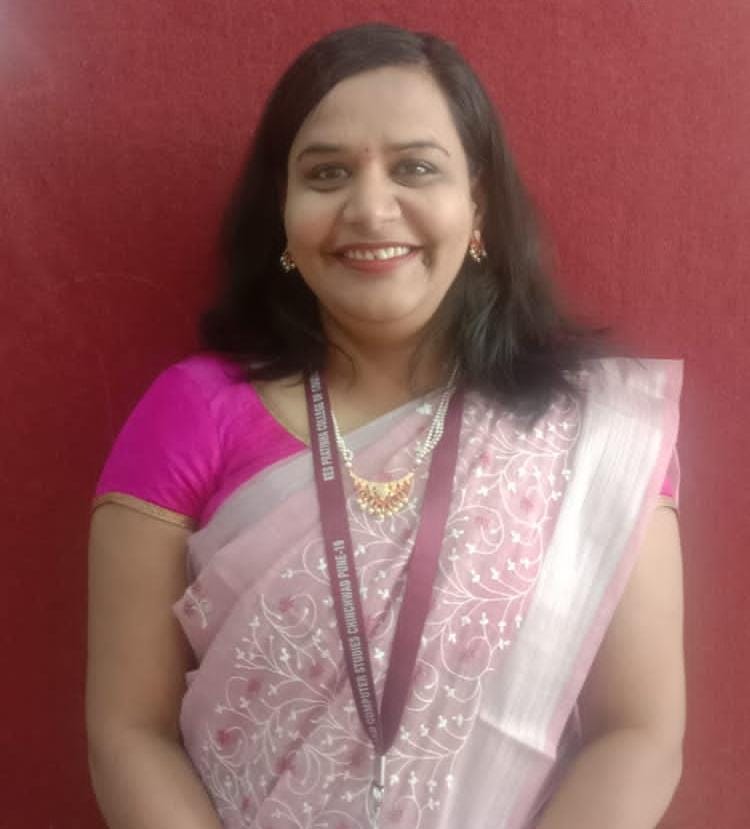 |
| Ms. Shivani S Tikone | Assistant Professor | M.Sc(CS) | 2 years | 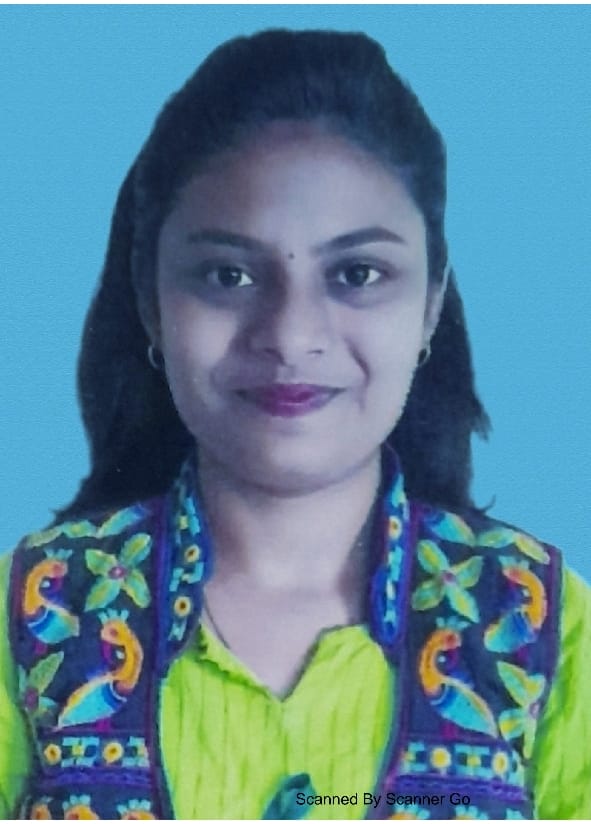 |
| Mrs. Pallavi Suryawanshi | Assistant Professor | M.Sc(CS) | 8+ years | 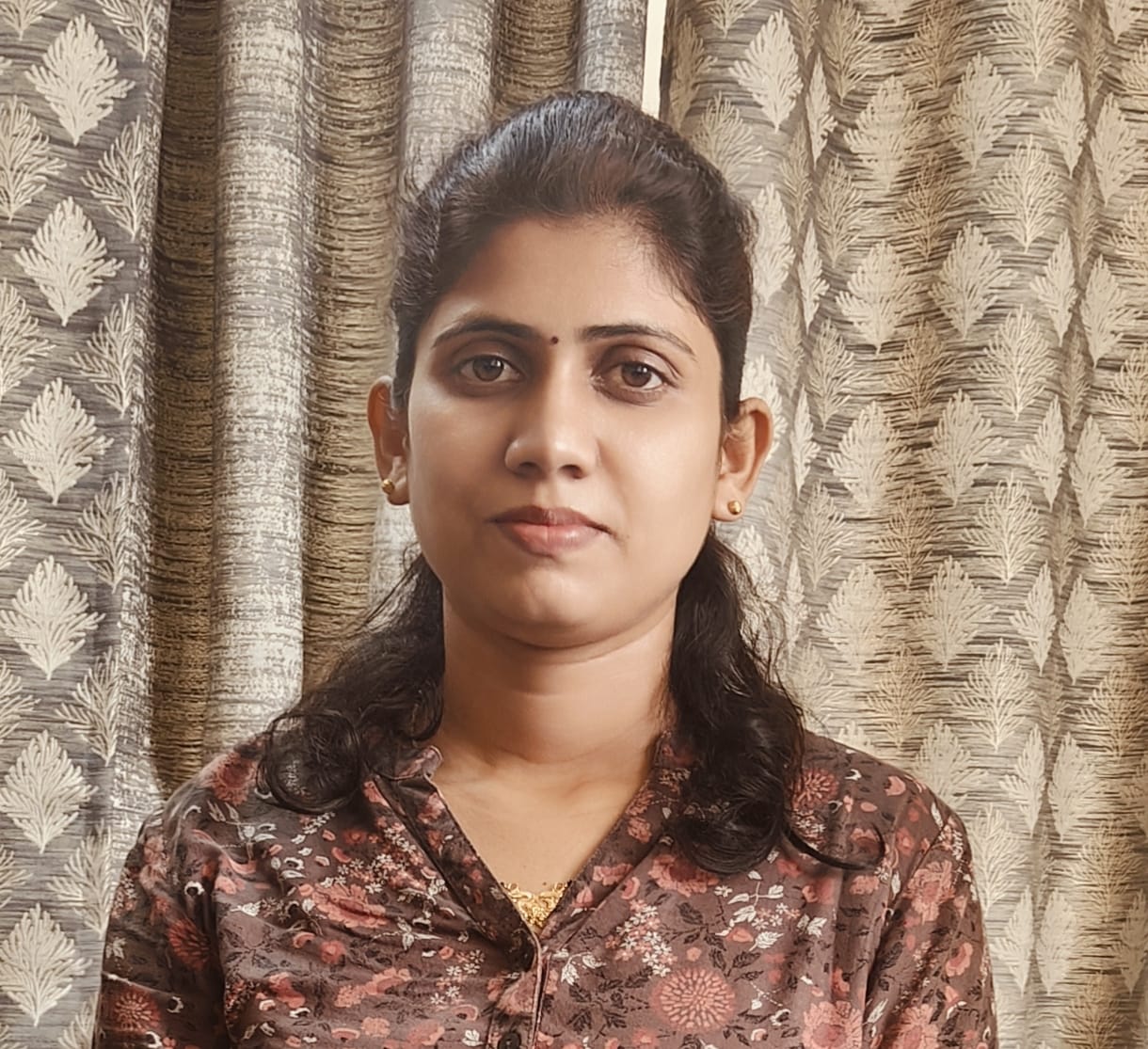 |
| Mrs. Pallavi Patil | Assistant Professor | MCA | 4.5 Years | 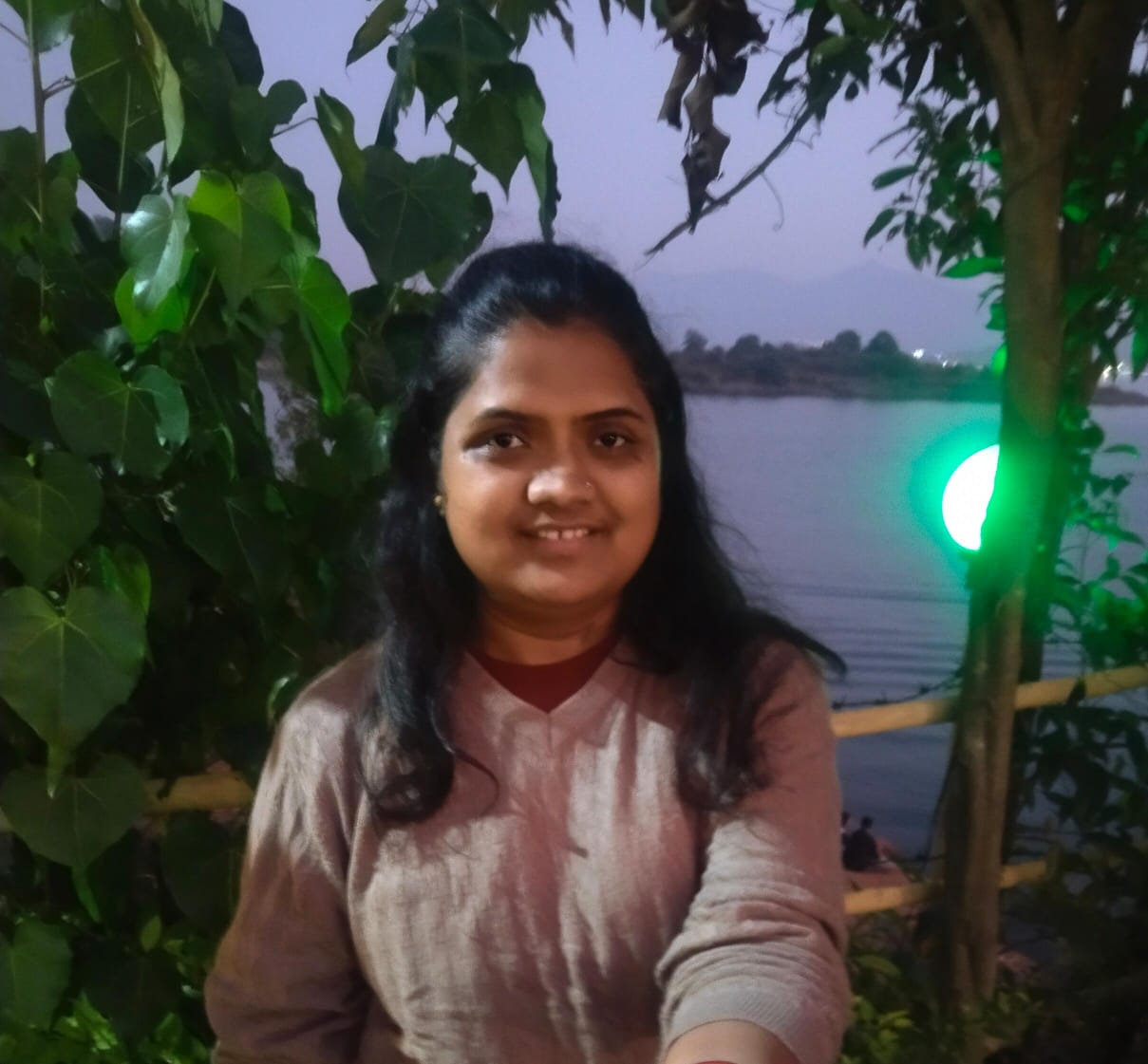 |
| Mrs. Prajakta A Yeole | Assistant Professor | MCA | 1 years | 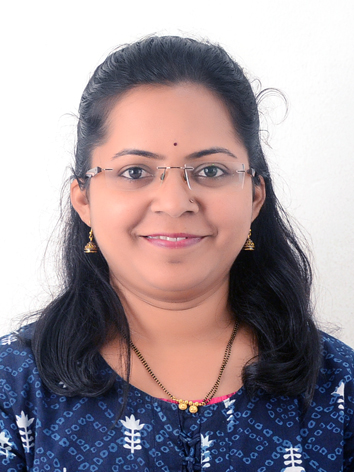 |
| Ms. Kanchan Patil | Assistant Professor | M.Sc(CS) | 1.4 Years | 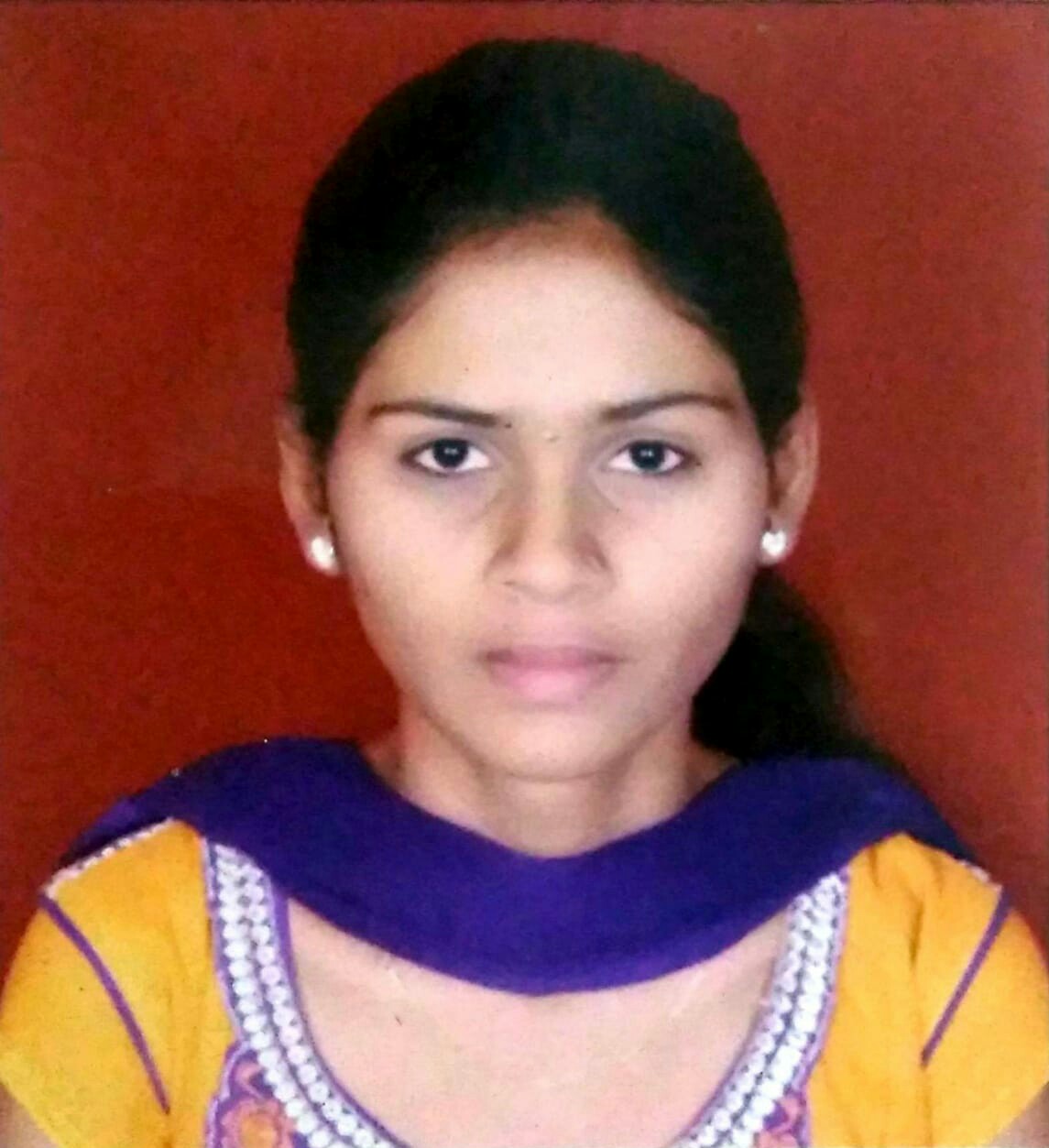 |
| Mrs. Madhuri Chaudhari | Assistant Professor | MCA, Pursuing Ph.D | 10+ Years | 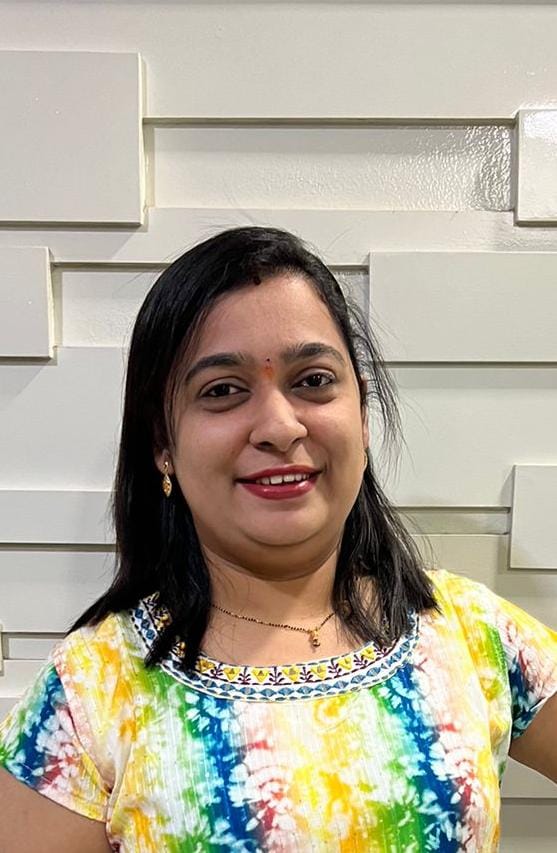 |
| Mrs. Mayura Sawant | Assistant Professor | M.Sc(CS) | 9 Years | 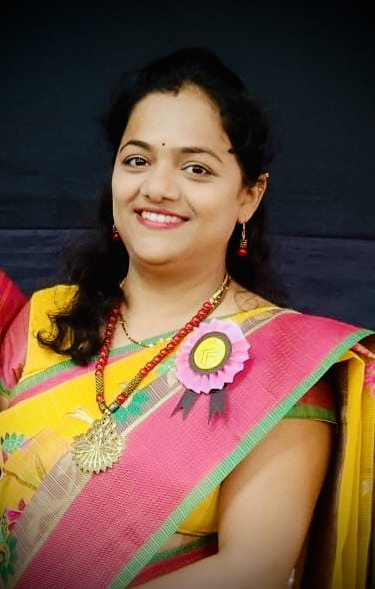 |
IT Resources:
Sr. No. | Name | Total No of License |
01 | Antivirus Software: Quick heal Seqrite for Windows | Admin Console 500/- Copies 2 |
02 | Microsoft | Campus Agreement 3 |
03 | Linux Kali | Open Sources |
Physical Facilities
1. No. of ICT enabled classrooms: 3 |
2. No. of Laboratories: 3 |
3. Lab 403 (Capacity – 70) |
4. Lab 404 (Capacity – 70) |
5. S4 Lab (Capacity – 40) |
6. Electronic Lab (Capacity – 40) |
Introduction-
The Bachelor of Science in Artificial Intelligence and Machine Learning (B.Sc. (AI & ML)) and B.Sc. (AI & ML) Honors and Research; program is designed to provide advanced education and training in the field of AI and ML.
Driven by the combination of increased access to data, computational power, and improved algorithms, Artificial Intelligence (AI) technologies are entering the mainstream of technological innovation.
These technologies include search, machine learning, and natural language processing, robotics and computer vision.
This course will also introduce the field of Machine Learning, in particular focusing on the Core concepts of supervised, unsupervised learning and reinforcement learning.
In supervised learning we will discuss algorithms which are trained on input data labeled with a desired output, for instance an image of a face and the name of the person whose face it is, and learn a function mapping from the input to the output.
Unsupervised learning aims to discover latent structure in input data where no output labels are available.
Students will learn the algorithms which underpin many popular Machine Learning techniques, as well as developing an understanding of the theoretical relationships between these algorithms.
Objectives of the Program:
The B.Sc. in Artificial Intelligence and Machine Learning (AI & ML) aims to provide students with a strong foundation in computer science, mathematics, and the theoretical and practical aspects of AI and ML.
The primary objectives of the program are:
- To build a strong foundational knowledge of core concepts in artificial intelligence, machine learning, data science, and computer programming.
- To develop analytical and problem-solving skills necessary to design, develop, and deploy AI/ML models and systems.
- To provide hands-on experience with modern tools, programming languages, and frameworks used in AI and ML through lab sessions, projects, and internships.
- To cultivate innovation and research aptitude in emerging areas of intelligent systems, deep learning, robotics, natural language processing, and more.
- To prepare students for careers in industries such as technology, healthcare, finance, and manufacturing, where AI and ML are transforming operations and decision-making.
Eligibility-
Passed Standard XII (10+2) or equivalent examination with Physics and Mathematics as compulsory subjects along with one of the Chemistry/ Biotechnology/ Biology/ Technical Vocational subject/
Computer Science/ Information Technology/ Informatics Practices/ Agriculture/ Engineering
Graphics/ Business Studies from any recognized Board with a minimum of 50% marks or equivalent grade (45% marks or equivalent grade for Scheduled Caste/ Scheduled Tribes).
Dr. Harshita Vachhani -Head, Dept. of B.Sc. (AI/ML )
Programme Outcomes-
On the successful completion of the program, the following are the expected outcomes.
PO1: Apply basic principles of AI in solutions that require problem solving, inference, perception, knowledge representation, and learning.
PO2: Demonstrate awareness and a fundamental understanding of various applications of AI techniques in intelligent agents, expert systems, artificial neural networks and other machine learning models.
PO3: Identify problems where artificial intelligence techniques are applicable and demonstrate ability to share in discussions of AI, its current scope and limitations, and societal implications.
PO4: Demonstrate proficiency in applying scientific method to models of machine learning.
PO5: Develop an appreciation for what is involved in learning models from data by understanding a wide variety of learning algorithms and by understanding of the strengths and weaknesses of many popular machine learning approaches
PO6: To apply the algorithms to a real-world problem, optimize the models learned and report on the expected accuracy that can be achieved by applying the ML models.
PO7: Consider the pros and cons when choosing ML / AI methods for different applications
PO8: Appreciate the underlying mathematical relationships within and across Machine Learning an AI
PO8: Conduct investigations of complex problems by using research-based knowledge and research methods including design of experiments, analysis and interpretation of data, and synthesis of the information to provide valid conclusions.
PO9: Function effectively as an individual, and as a member or leader in diverse teams, and in multidisciplinary settings
PO10: Communicate effectively on complex engineering activities with then engineering community and with society at large, such as, being able to comprehend and write effective reports and design documentation, make effective presentations, and give clear instructions.
Introduction
Welcome to the B.Sc.(Data Science) programme! This programme is designed to empower students with knowledge and skills required to thrive in an era of data science and technology. By choosing B.Sc. (Data Science) Programme, students enter into the dynamic field of data science and data analytics. Students will engage and build strong foundation in mathematics, statistics, computer science and ethical data practices. This programme not only equips students with technical expertise but also fosters a mindset of continuous learning, adaptability and ethical leadership.
Why Choose B.Sc. in Data Science?
- High Demand – Skilled data professionals are needed worldwide, with roles often offering remote work flexibility.
- Lucrative Career Opportunities – Students can work as data scientists, machine learning engineers, data analysts, AI specialists, or business intelligence analysts.
- Cross-Disciplinary Applications – Data science is used in everything from disease prediction to stock market analysis, climate modeling to customer behavior prediction, sports to Government and many more.
- Global Career Mobility – It enhances your credibility in the job market and can fast-track immigration pathways in tech-focused countries.
Career Scope
- Private Sector Opportunities –
- Corporate Roles
- Industry Applications
- Global Opportunities
- Start a data analytics or AI-driven startup.
- Work as a freelance consultant offering specialized data science services
- Government and Public Sector Careers
- Data Officer/Analyst Roles
- Research Organizations
- Competitive Exam-Based Roles
- Public Health and Policy
- Higher Education
- Master’s in Data Science, AI, or Machine Learning.
- M.B.A
- PhD for advanced research and academic careers
Other features
- Field Visits – NSO, Onion Garlic Research Centre, Vasantdada Sugar Institute and many more
- Projects & Research Work – Student friendly Faculty Members who help in projects and research work.
- Practicals – Practicals are conducted in R, Python and Other Softwares. (One Student – One Desktop)
Objectives of B.Sc. Data Science
The primary objectives of a B. Sc. data science course are to equip individuals with the skills to extract, analyze, and interpret data, ultimately driving informed decision-making and problem-solving. These courses aim to develop expertise in statistical analysis, machine learning, data visualization, and data wrangling, while also fostering an understanding of the ethical considerations within data science.
Core Data Science Skills:
- Data Extraction and Preparation:
Learning how to gather, clean, and transform raw data into a usable format.
- Statistical Analysis:
Understanding and applying statistical methods to analyze data, identify patterns, and draw inferences.
- Machine Learning:
Developing skills in building and applying machine learning models for prediction, classification, and other analytical tasks.
- Data Visualization:
Creating effective visualizations to communicate insights and trends from data.
- Data Mining:
Exploring and discovering patterns and relationships within large datasets.
Broader Objectives:
- Informed Decision Making:
Using data analysis to support better business decisions, improve processes, and optimize outcomes.
- Problem Solving:
Applying data science techniques to solve real-world problems across various domains.
- Ethical Considerations:
Understanding the ethical implications of data collection, analysis, and usage, including issues like privacy and bias.
- Communication of Results:
Effectively communicating data-driven insights and recommendations to both technical and non-technical audiences.
- Real-World Applications:
Gaining experience in applying data science techniques to practical scenarios and industries.
Eligibility
(a) Higher Secondary School Certificate (10+2) Science Stream or its equivalent examination
OR
(b) Three Years Diploma Course after S.S.C. (10th standard) of Board of Technical Education conducted by Government of Maharashtra or its equivalent
Introduction-
The Bachelor of Science in Artificial Intelligence and Machine Learning (B.Sc. (AI & ML)) and B.Sc. (AI & ML) Honors and Research; program is designed to provide advanced education and training in the field of AI and ML.
Driven by the combination of increased access to data, computational power, and improved algorithms, Artificial Intelligence (AI) technologies are entering the mainstream of technological innovation.
These technologies include search, machine learning, and natural language processing, robotics and computer vision.
This course will also introduce the field of Machine Learning, in particular focusing on the Core concepts of supervised, unsupervised learning and reinforcement learning.
In supervised learning we will discuss algorithms which are trained on input data labeled with a desired output, for instance an image of a face and the name of the person whose face it is, and learn a function mapping from the input to the output.
Unsupervised learning aims to discover latent structure in input data where no output labels are available.
Students will learn the algorithms which underpin many popular Machine Learning techniques, as well as developing an understanding of the theoretical relationships between these algorithms.
Objectives of the Program:
The B.Sc. in Artificial Intelligence and Machine Learning (AI & ML) aims to provide students with a strong foundation in computer science, mathematics, and the theoretical and practical aspects of AI and ML.
The primary objectives of the program are:
- To build a strong foundational knowledge of core concepts in artificial intelligence, machine learning, data science, and computer programming.
- To develop analytical and problem-solving skills necessary to design, develop, and deploy AI/ML models and systems.
- To provide hands-on experience with modern tools, programming languages, and frameworks used in AI and ML through lab sessions, projects, and internships.
- To cultivate innovation and research aptitude in emerging areas of intelligent systems, deep learning, robotics, natural language processing, and more.
- To prepare students for careers in industries such as technology, healthcare, finance, and manufacturing, where AI and ML are transforming operations and decision-making.
Eligibility-
Passed Standard XII (10+2) or equivalent examination with Physics and Mathematics as compulsory subjects along with one of the Chemistry/ Biotechnology/ Biology/ Technical Vocational subject/
Computer Science/ Information Technology/ Informatics Practices/ Agriculture/ Engineering
Graphics/ Business Studies from any recognized Board with a minimum of 50% marks or equivalent grade (45% marks or equivalent grade for Scheduled Caste/ Scheduled Tribes).
Dr. Harshita Vachhani -Head, Dept. of B.Sc. (AI/ML )
Programme Outcomes-
On the successful completion of the program, the following are the expected outcomes.
PO1: Apply basic principles of AI in solutions that require problem solving, inference, perception, knowledge representation, and learning.
PO2: Demonstrate awareness and a fundamental understanding of various applications of AI techniques in intelligent agents, expert systems, artificial neural networks and other machine learning models.
PO3: Identify problems where artificial intelligence techniques are applicable and demonstrate ability to share in discussions of AI, its current scope and limitations, and societal implications.
PO4: Demonstrate proficiency in applying scientific method to models of machine learning.
PO5: Develop an appreciation for what is involved in learning models from data by understanding a wide variety of learning algorithms and by understanding of the strengths and weaknesses of many popular machine learning approaches
PO6: To apply the algorithms to a real-world problem, optimize the models learned and report on the expected accuracy that can be achieved by applying the ML models.
PO7: Consider the pros and cons when choosing ML / AI methods for different applications
PO8: Appreciate the underlying mathematical relationships within and across Machine Learning an AI
PO8: Conduct investigations of complex problems by using research-based knowledge and research methods including design of experiments, analysis and interpretation of data, and synthesis of the information to provide valid conclusions.
PO9: Function effectively as an individual, and as a member or leader in diverse teams, and in multidisciplinary settings
PO10: Communicate effectively on complex engineering activities with then engineering community and with society at large, such as, being able to comprehend and write effective reports and design documentation, make effective presentations, and give clear instructions.
- M.Sc. (Computer Science)
- M.S.c (Computer Application)
- M.Sc (Statistics)
- M.Sc (Organic Chemistry)
- MSc(Cyber Security)
- MSc(Data Science)
- Introduction
- Objectives of the Program
- Highlights
- Infrastructure
- Best Practices
- Staff
- Programmes & Courses Outcomes
- Syllabus
- Activities & Achievements
- Post graduation degree added in the department from year 2009 with initial intake 30.
- Currently department has 90 intake for M.S.c Computer Science.
- Our departmental tree has grown to hold 174 students.
- To devlop problem solving abilities using computer
- To build the necessary skill set and analytical abilities for devloping computer based solution for real life problem
- To train students in professional skills related to software industry
- To Prepare nessary knowlage based for reasearch and devlopment in computer science
- To help students build-up a successful career in computer science and to procedure enterpreneurs who can innovate and
devlope software products
- Excellent Infrastructure with spacious class rooms, computer laboratory.
- Highly qualified, experienced & approved staff.
- Seminars and Guest Lectures by Industrialists and subject experts.
- Technical & Non-technical program are arranged to enhance the IT & soft skills.
- Project Guidance by alumni’s and industrialists.
- Student mentoring system for giving personal touch to each of the students. The faculty member
provides constant support and every piece of advice to the students whenever he/she faces a problem
with any aspect of the curriculum or any personal problems.
📄 Special Features:
Download Document
IT Resources
Open Sources :
C, php, java, netbeans, postgresql, wamp, open GL on linux platform.
Hardware :
- Vivek Vahini (Science Association)
- RBPT (Research Based Pedagogical Tools)
- Social responsibility – No Vehicle Day
- Learning through Statistical games
- Listing of plant species in Campus
- Industrial Visit/ Field Visit to esteem organizations, to provide practical knowledge to students like
- Satara- Ajiyankya tara sugar Institute
- Botanical Survey of India, Pune regional Office.
- Gipsom Garden, Naneghat
- Onion Garlic Research Institute, Rajgurunagar, Pune.
- Mamta Milk Dairy PVT. Ltd.
- Agriculture College, Shivajinagar, Pune.
- Malavali, Lonavala – Biodiversity Study
- Vasantdada sugar institute Manjari
- Social Responsibility Activity with Vatsalya Matimand School Every year during Diwali. we help to sells Diwali Diyas at college premises made by Physically challenged students.
Curricular activity :
- Conducted Remedial / Bridge course.
- Cyber Security & CPMA.
- Workshop on software development.
Co- Curricular activity :
- National Level Conference.
- “Bits Bytes In IT “ &
- “ Recent Trends in IT.
- State Level Seminar In Statistics.
- State Level Seminar In Electronic.
- Soft –Skills & Personality Development Programs.
- Career Counseling & Mentoring.
- Hands-On Industrial Training Visits .
- Guest Lecture Series.
- Sports Day.
Extra-curricular activity :
- Alumni Engagement & Take Flight.
- Live Project Trainings.
- Entrepreneurship Development.
- Departmental Activities (Techphilphia , Electrofest ,Mathstract ,Brain-o –Fest ).
- Teacher Day Celebrations.
- Notice board.
- Parent’s meeting.
Social concern :
- Skill Development Trainings.
Faculty Achievements:
Students Achievements:
- Introduction
- Objectives of the Program
- Highlights
- Infrastructure
- Best Practices
- Staff
- Programmes & Courses Outcomes
- Syllabus
- Activities & Achievements
- Post graduation degree added in the department from year 2009 with initial intake 30.
- Currently department has 90 intake for M.S.c Computer Science.
- Our departmental tree has grown to hold 174 students.
- To devlop problem solving abilities using computer
- To build the necessary skill set and analytical abilities for devloping computer based solution for real life problem
- To train students in professional skills related to software industry
- To Prepare nessary knowlage based for reasearch and devlopment in computer science
- To help students build-up a successful career in computer science and to procedure enterpreneurs who can innovate and
devlope software products
- Excellent Infrastructure with spacious class rooms, computer laboratory.
- Highly qualified, experienced & approved staff.
- Seminars and Guest Lectures by Industrialists and subject experts.
- Technical & Non-technical program are arranged to enhance the IT & soft skills.
- Project Guidance by alumni’s and industrialists.
- Student mentoring system for giving personal touch to each of the students. The faculty member provides constant support and every piece of advice to the students whenever he/she faces a problem with any aspect of the curriculum or any personal problems.
📄 Special Features: Download Document
IT Resources
Open Sources :
C, php, java, netbeans, postgresql, wamp, open GL on linux platform.
Hardware :
- Vivek Vahini (Science Association)
- RBPT (Research Based Pedagogical Tools)
- Social responsibility – No Vehicle Day
- Learning through Statistical games
- Listing of plant species in Campus
- Industrial Visit/ Field Visit to esteem organizations, to provide practical knowledge to students like
- Satara- Ajiyankya tara sugar Institute
- Botanical Survey of India, Pune regional Office.
- Gipsom Garden, Naneghat
- Onion Garlic Research Institute, Rajgurunagar, Pune.
- Mamta Milk Dairy PVT. Ltd.
- Agriculture College, Shivajinagar, Pune.
- Malavali, Lonavala – Biodiversity Study
- Vasantdada sugar institute Manjari
- Social Responsibility Activity with Vatsalya Matimand School Every year during Diwali. we help to sells Diwali Diyas at college premises made by Physically challenged students.
Programmes & Courses Outcomes Click Here
Curricular activity :
- Conducted Remedial / Bridge course.
- Cyber Security & CPMA.
- Workshop on software development.
Co- Curricular activity :
- National Level Conference.
- “Bits Bytes In IT “ &
- “ Recent Trends in IT.
- State Level Seminar In Statistics.
- State Level Seminar In Electronic.
- Soft –Skills & Personality Development Programs.
- Career Counseling & Mentoring.
- Hands-On Industrial Training Visits .
- Guest Lecture Series.
- Sports Day.
Extra-curricular activity :
- Alumni Engagement & Take Flight.
- Live Project Trainings.
- Entrepreneurship Development.
- Departmental Activities (Techphilphia , Electrofest ,Mathstract ,Brain-o –Fest ).
- Teacher Day Celebrations.
- Notice board.
- Parent’s meeting.
Social concern :
- Skill Development Trainings.
Faculty Achievements:
Students Achievements:
Establishment / Milestones:
- This department is established in the year 2022.
- The current strength of this department is 31 students.
- M.Sc. (Computer Applications) Program is of Two Years duration with four semesters.
post graduate Degree Program. The program is based on credit system comprising of total 88 credit points.
Eligibility:
A Bachelor Degree in Science/Technology/Engineering with minimum 50% marks or equivalent for student belonging to Unreserved Category and minimum 45% or equivalent for students belonging to the Reserved Category.
Highlights:
- Excellent Infrastructure with spacious class rooms, computer laboratory.
- Highly qualified, experienced & approved staff.
- Seminars and Guest Lectures by Industrialists and subject experts.
- Technical & Non-technical program are arranged to enhance the IT & soft skills.
- Project Guidance by alumni’s and industrialists.
- Student mentoring system for giving personal touch to each of the students.
- The faculty member provides constant support and every piece of advice to the students whenever he/she faces a problem with any aspect of the curriculum or any personal problems.
Objectives:
The objective of the Program is to produce trained software professionals with hands-on experience on state-of-the art technologies who will be able to handle challenges in IT industry. The objectives of M.Sc. (Computer Applications) program are: –
- To produce knowledgeable and skilled human resources that is employable in IT and ITES.
- To impart knowledge required for planning, designing and building Complex
- Application Software Systems as well as to provide support for automated systems or applications.
Softwares:
C++, php, java, netbeans, Weka, Software Testing , Selenium, Android, Web Services, Python, Django, IOT, Artificial Intelligence
Hardware:
Lab No. | Area | No. of PCs | Projector | Laptop | Printer | Configuration |
Lab I | 815.34 Sq.ft | 40 | 01 | 01 | – | INTEL CORE 2 DEUO E8500 @ |
Lab II | 780.89 sq.ft. | 40 | 01 | 01 | 04 | Pentium 4 |
Lab III | 648sq. Ft. | 40 | 01 | 02 | 01 | Intel P4 |
Lab IV | 40 | 01 | 01 | 02 | Intel Dual Core | |
Lab V | 41 | 01 | 01 | 01 | i5 4th Generation |
- Vivek Vahini (Science Association)
- RBPT (Research Based Pedagogical Tools)
- Social responsibility – No Vehicle Day
- Learning through Statistical games
- Listing of plant species in Campus
- Industrial Visit/ Field Visit to esteem organizations, to provide practical knowledge to students like
- Satara- Ajiyankya tara sugar Institute
- Botanical Survey of India, Pune regional Office.
- Gipsom Garden, Naneghat
- Onion Garlic Research Institute, Rajgurunagar, Pune.
- Mamta Milk Dairy PVT. Ltd.
- Agriculture College, Shivajinagar, Pune.
- Malavali, Lonavala – Biodiversity Study
- Vasantdada sugar institute Manjari
- Social Responsibility Activity with Vatsalya Matimand School Every year during Diwali. we help to sells Diwali Diyas at college premises made by Physically challenged students.
KALEIDOSCOPE CLUB
| S.No | Photo | Name and Qualification of faculty |
| 1 | 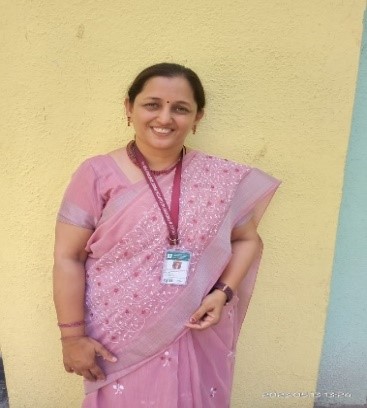 | Ms.Suvarna GogateB.Sc.(CS), MCA, P.h.D. Perusing |
| 2 |  | Ms. Rutuja ChavanB.Sc., MCA, MCM, Ph.D Perusing |
| 3 | 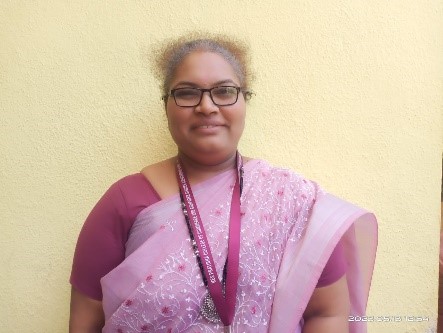 | Ms. Jayshree KambleB.Sc.(CS), M.Sc.(C.S.), Ph.D Perusing |
| 4 |  | Ms. Varsha ThakareB.Sc.(CS), M.Sc.(C.S.) |
| 5 |  | Ms. Nikita BhamareB.Sc.(CS), M.Sc.(C.S.) |
| 6 | 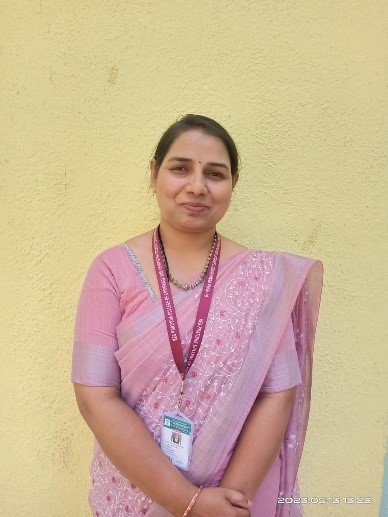 | Ms. Gouramma KadadiBCA, MCA |
| 7 | 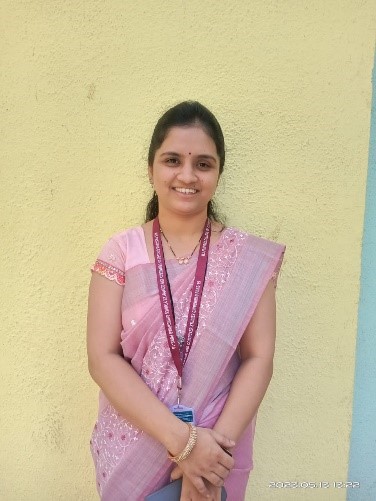 | Ms. Snehal MohiteB.E(Comp Sci) |
| 8 | 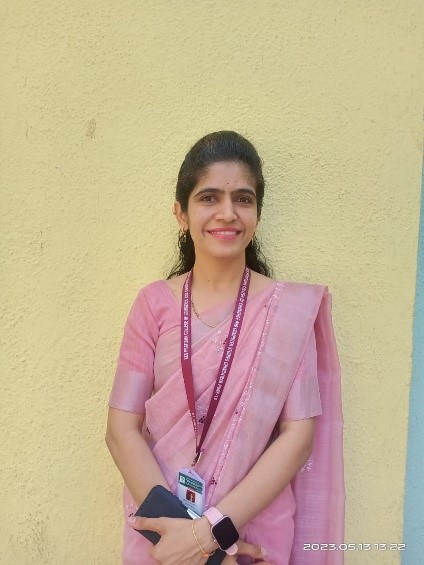 | Ms. Madhuri GandhiBCA, MCA(Commerce) |
| 9 | 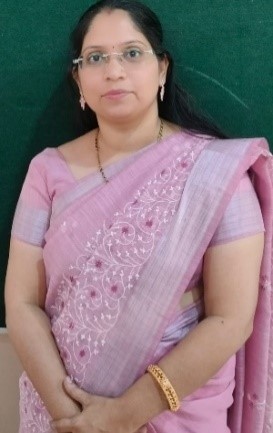 | Ms. Priti KarajkhedeBCA, MCA, SET |
| 10 | 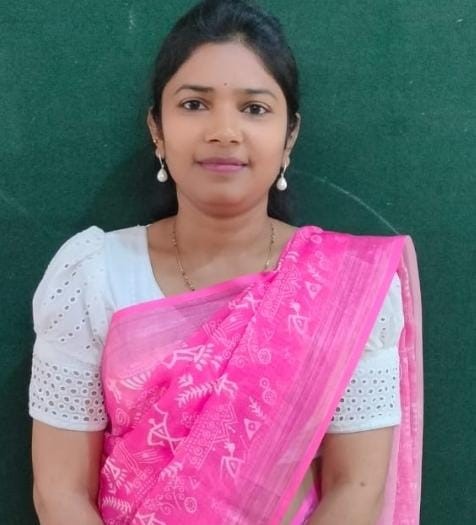 | Ms. Rashmi PimparkarBCA, M.Sc.(C.S.) |
| 11 | 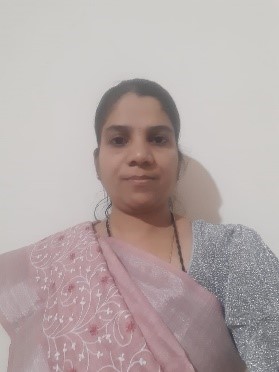 | Ms. Netra ArilikittiB.E.(CS),M.Sc.(C.S.) B.Ed |
Curricular activity:
- Remedial / Bridge course.
- Departmental Competitions
Co-Curricular activity:
- State or National Level Conference/Seminar/Webinar.
- Soft –Skills & Personality Development Programs.
- Career Counselling & Mentoring.
- Guest Lectures series /workshops on recent IT trends related to academics .
- Sports Day Celebration.
- Cultural Fest
- Field and Industry visit
- Skill Development Trainings.
- Birth and Death anniversary and Famous day celebrations.
- Special Attractions : PRAGYAN 1.O and VIGYAAN 2024 ( Different Competitions).
Establishment / Milestones:
Two Year Post graduation Degree Course, M.Sc(Computer Applications)was introduced in the Department from year 2022-23with initial intake 30.
Objectives:
•To produce trained software professionals with hands-on experience on state-of-the art technologies who will be able to handle software challenges in industry as well as academia.
•To produce knowledgeable and skilled human resources that is employable in IT and ITES.
•To impart knowledge required for planning, designing and building Complex Application Software Systems as well as to provide support for automated systems or applications.
•To produce entrepreneurs.
Eligibility:
A Bachelor Degree in Science/Technology/Engineering with minimum 50% marks or equivalent forstudent belonging to Unreserved Category and minimum 45% or equivalent for students belonging tothe Reserved Category.
Highlights:
•Excellent Infrastructure with spacious class rooms, computer laboratory.
•Highly qualified, experienced & approved staff.
•Seminars and Guest Lectures by Industrialists and subject experts. Technical & Non-technical program are arranged to enhance the IT & soft skills.
•Project Guidance by alumni’s and industrialists.Student mentoring system for giving personal touch to each of the students.
•The faculty membersprovide constant support and every piece of advice to the students whenever he/she faces a problem with any aspect of the curriculum or any personal problems.
Softwares:
C++, php, java, netbeans, Weka,Software Testing , Selenium,Android,Web Services, Python, Django, IOT, Artificial Intelligence
Hardware:
Lab No. | Area | No. of PCs | Projector | Laptop | Printer | Configuration |
Lab I | 815.34 Sq.ft | 40 | 01 | 01 | – | INTEL CORE 2 DEUO E8500 @ |
Lab II | 780.89 sq.ft. | 40 | 01 | 01 | 04 | Pentium 4 |
Lab III | 648sq. Ft. | 40 | 01 | 02 | 01 | Intel P4 |
Lab IV |
| 40 | 01 | 01 | 02 | Intel Dual Core |
Lab V |
| 41 | 01 | 01 | 01 | i5 4th Generation |
- Vivek Vahini (Science Association)
- RBPT (Research Based Pedagogical Tools)
- Social responsibility – No Vehicle Day
- Learning through Statistical games
- Listing of plant species in Campus
- Industrial Visit/ Field Visit to esteem organizations, to provide practical knowledge to students like
- Satara- Ajiyankya tara sugar Institute
- Botanical Survey of India, Pune regional Office.
- Gipsom Garden, Naneghat
- Onion Garlic Research Institute, Rajgurunagar, Pune.
- Mamta Milk Dairy PVT. Ltd.
- Agriculture College, Shivajinagar, Pune.
- Malavali, Lonavala – Biodiversity Study
- Vasantdada sugar institute Manjari
- Social Responsibility Activity with Vatsalya Matimand School Every year during Diwali. we help to sells Diwali Diyas at college premises made by Physically challenged students.
Curricular activity:
•Remedial / Bridge course.
•Departmental Competitions
Co-Curricular activity:
•State or National Level Conference/Webinar.
•Soft –Skills & Personality Development Programs.
•Career Counselling & Mentoring.
•Guest Lectures series /workshops on recent IT trends.
•Sports DayCelebration.Social concern:
•Skill Development Trainings.
Establishment / Milestones:
Two Year Post graduation Degree Course, M.Sc(Computer Applications)was introduced in the Department from year 2022-23with initial intake 30.
Objectives:
•To produce trained software professionals with hands-on experience on state-of-the art technologies who will be able to handle software challenges in industry as well as academia.
•To produce knowledgeable and skilled human resources that is employable in IT and ITES.
•To impart knowledge required for planning, designing and building Complex Application Software Systems as well as to provide support for automated systems or applications.
•To produce entrepreneurs.
Eligibility:
A Bachelor Degree in Science/Technology/Engineering with minimum 50% marks or equivalent forstudent belonging to Unreserved Category and minimum 45% or equivalent for students belonging tothe Reserved Category.
Highlights:
•Excellent Infrastructure with spacious class rooms, computer laboratory.
•Highly qualified, experienced & approved staff.
•Seminars and Guest Lectures by Industrialists and subject experts. Technical & Non-technical program are arranged to enhance the IT & soft skills.
•Project Guidance by alumni’s and industrialists.Student mentoring system for giving personal touch to each of the students.
•The faculty membersprovide constant support and every piece of advice to the students whenever he/she faces a problem with any aspect of the curriculum or any personal problems.
Softwares:
C++, php, java, netbeans, Weka,Software Testing , Selenium,Android,Web Services, Python, Django, IOT, Artificial Intelligence
Hardware:
Lab No. | Area | No. of PCs | Projector | Laptop | Printer | Configuration |
Lab I | 815.34 Sq.ft | 40 | 01 | 01 | – | INTEL CORE 2 DEUO E8500 @ |
Lab II | 780.89 sq.ft. | 40 | 01 | 01 | 04 | Pentium 4 |
Lab III | 648sq. Ft. | 40 | 01 | 02 | 01 | Intel P4 |
Lab IV |
| 40 | 01 | 01 | 02 | Intel Dual Core |
Lab V |
| 41 | 01 | 01 | 01 | i5 4th Generation |
- Vivek Vahini (Science Association)
- RBPT (Research Based Pedagogical Tools)
- Social responsibility – No Vehicle Day
- Learning through Statistical games
- Listing of plant species in Campus
- Industrial Visit/ Field Visit to esteem organizations, to provide practical knowledge to students like
- Satara- Ajiyankya tara sugar Institute
- Botanical Survey of India, Pune regional Office.
- Gipsom Garden, Naneghat
- Onion Garlic Research Institute, Rajgurunagar, Pune.
- Mamta Milk Dairy PVT. Ltd.
- Agriculture College, Shivajinagar, Pune.
- Malavali, Lonavala – Biodiversity Study
- Vasantdada sugar institute Manjari
- Social Responsibility Activity with Vatsalya Matimand School Every year during Diwali. we help to sells Diwali Diyas at college premises made by Physically challenged students.
Curricular activity:
•Remedial / Bridge course.
•Departmental Competitions
Co-Curricular activity:
•State or National Level Conference/Webinar.
•Soft –Skills & Personality Development Programs.
•Career Counselling & Mentoring.
•Guest Lectures series /workshops on recent IT trends.
•Sports DayCelebration.Social concern:
•Skill Development Trainings.
Overview
The Department of Chemistry of ‘PRATIBHA’ (Affiliation SPPU) aims at developing young talent for the chemical industry and academia. The curriculum is developed in such a way that the students are able to venture into allied fields too. The aim of the department through the courses it offers is to provide “a cut above the rest” man-power to the ever growing demands of the industry and to prepare students for higher studies and research. The interactive method of teaching at ‘PRATIBHA’ (Affiliation SPPU) is to bring about attitudinal changes to future professionals of the industry.
Equal importance is given to practical and theoretical methods of learning apart from experiential and digital modes of learning. Industrial projects form an integral part of the curriculum. Apart from the syllabus, the University emphasizes on Value Addition Programs like Current Affairs, Holistic Education, Certificate Courses and Placement Training Programs, which include training students in group discussions, facing interviews and so on.
Message
The Department of chemistry is one of the dynamic departments at PRATIBHA (Affiliation SPPU), established in 2015. We have a diverse student population with representation from almost all parts of Maharashtra and other states of India. The department is blessed with highly qualified faculty members who are from diverse backgrounds with abroad experience and involved in leading research in different areas of the subject as well as interdisciplinary areas. The curriculum undergoes frequent revision and provides opportunities for projects and joint research with faculty members.
The postgraduate program currently offers opportunities to specialize in organic, analytical, and general chemistry. Apart from curricular subjects, the department provides personality development and society-oriented programs, career guidance, placement, and opportunities to organize and participate in competitions, seminars, and conferences. Our commitment to excellence in teaching and research has helped the students graduated from the department achieve distinction in academia and industry.
Why choose this course?
- Holistic Foundation in Chemistry
- Hands-On Laboratory Focus
- Modern Analytical Techniques
- Path to Advanced Studies
- Comprehensive Chemical Foundation
What you will learn?
- Understand basic concepts in Chemical and biological sciences
- Apply ethical principles and responsibilities while conducting experimental studies.
- Demonstrate problem solving, analytical and logical skills to provide solutions for the scientific issues
- Express proficiency in oral and written communications to appreciate innovations in research.
- Develop the critical thinking with scientific temper
- Engage in continuous reflective learning in the context of technological and scientific advancements
Career prospects
- Master of Science in Chemistry
- Research in Chemistry
- Pharmaceutical Industry Researcher
- Higher education reputed institutes in India and abroad
- Clinical Laboratory Scientist
- Environmental Scientist
- Chemical or Analytical Chemists in Various Industries
- Quality Control Analyst or Food Technologist
- Academic Researcher or Science Educator
- Careers in Patents and IPR
- Bachelor of Education/Teaching
Job profiles | Research opportunities | Government opportunities |
|
ONGC, HPCL,
scholarships at Japan, South Korea, Singapore, Canada and USA) |
DRDO
|
Objectives of the Program
The UG degree in Chemistry aims to provide:
- Comprehensive knowledge and coherent understanding of the Chemistry.
- Knowledge and skills in Chemistry and related interdisciplinary areas thereby enhancing students’ employability /entrepreneurship.
- In-depth knowledge in Chemistry through understanding of key concepts, principles, theories and their manifestations.
- Critical and analytical thinking, scientific reasoning, creativity, problem-solving skills, communication skills and teamwork.
- Competence and skill in solving both theoretical and applied problems.
- Exposure to the latest advances in Chemistry, allied disciplines and research.
- Inculcate digital skills in Chemistry and interdisciplinary areas.
- Moral and ethical awareness, leadership qualities, innovation, and life-long learning.
- Multicultural and multilingual competence, inclusive spirit, and value education.
- Responsibility for Community engagement and service.
- Programme Outcomes (POs)
PO No. | PO Statement After completing the Master of Science degree students are able to | Knowledge and Skill |
PO-1 | Learn the terms, theories, assumptions, methods, principles, theorem statements and classification | Disciplinary knowledge |
PO-2 | Fix out the problem and resolve it using theories and practical knowledge. | Critical thinking and Problem solving |
PO-3 | Inculcate knowledge for carrying projects and advanced research related skills. | Research related skill |
PO-4 | Actively participate in team on case studies and field-based situations. | Cooperation/Team work |
PO-5 | Analyze and interpret ideas, evidences and experiences with learned scientific reasoning | Scientific reasoning |
PO-6 | Aware and implement the subject facts that can be applied for the personal and social development | Reflective thinking |
PO-7 | Use digital literacy to retrieve and evaluate subject related information | Information/Digitally literacy |
PO-8 | Get moral and ethical values for society as well as in research | Moral and ethical awareness |
PO-9 | Give analytical reasoning to interpret research data. | Analytical Reasoning |
PO-10 | Improve their managerial skills and abilities in subject related activities. | Leadership readiness/qualities |
PO-11 | Inculcate continuous learning habit through all available resources. | Lifelong readiness/qualities |
| Name of the Faculty | Designation | Qualification | Experience | Photo |
| Dr. Rajendra Kankariya | Adjunct Professor | M. Phil., Ph. D.M. A., M. Com., LL. M., M. B. A., M. Sc. D.M., M.A. J & MC. | Principal of 3 Colleges-18 yearsRegistrar of 2 Universities-05 yearsLecturer/Assistant Professor/Associate Professor-16 yearsProfessor-18 years |  |
| Dr. Yogesh Jorapur | Assistant Professor | M.Sc. (Chemistry), Ph.D., Postdoc (Japan, S. Korea) | 2 yrs. R & D Pharma; 8 years Postdoc. Japan/S. Korea; 2 years PG & 7 years UG teaching |  |
| Dr. Surekha Jogdand | Assistant Professor | M.Sc. (Chemistry), Ph.D. | 13 years |  |
| Dr. Seema Patil | Assistant Professor | M.Sc. (Chemistry), Ph.D. | 6 years |  |
Introduction and Objectives:
The Master of Science in Cyber Security (M.Sc. Cyber Security) program is designed to provide advanced education and training in the field of Cyber Security.
This comprehensive program aims to equip students with a profound understanding of theoretical concepts, practical skills, and cutting-edge technologies relevant to the rapidly evolving world of computing.
With a strong emphasis on academic excellence and research-driven learning, the M.Sc. Cyber Security program seeks to nurture a community of skilled Cyber security professionals capable of addressing complex challenges across various industries.
By fostering a stimulating and innovative learning environment, we strive to empower our students to become leaders, innovators, and agents of positive change in the field of Computer Science.
Establishment:
Two Year Post graduation Degree Course, M.Sc. (Cyber Security) introduced in from A.Y. 2025-26
Intake: 30 Students
Highlights:
- Excellent Infrastructure with spacious class rooms, computer laboratory.
- Highly qualified, experienced & approved staff.
- Seminars and Guest Lectures by Industrialists and subject experts. Technical & Non-technical program are arranged to enhance the IT & soft skills.
- Project Guidance by alumni’s and industrialists. Student mentoring system for giving personal touch to each of the students.
- The faculty members provide constant support and every piece of advice to the students whenever he/she faces a problem with any aspect of the curriculum or any personal problems.
(a) B.Sc. (Cyber and Digital Science) OR
(b) B.Sc. (Cyber Security) OR
(c) Bachelor of Computer Science (B.C.S.) OR
(d) B.Sc. (Computer Science) OR
(e) B.C.A. (Science) OR
(f) B.Sc. (Information Technology) OR
(g) B.Sc. (Cloud Computing) OR
(h) Bachelor of Engineering (BE) in Computer Science/Information Technology/Electronics and Telecommunication/AI and Data Science/AI and Machine Learning/ equivalent OR
(i) B.Voc. in Software Development/ Information Technology OR
(j) B.Sc. with Computer Science as Principal Subject OR
(k) General B.Sc. with Computer Science as one of the subject at TYBSc level OR
(l) Graduate degree from a recognized university / institution with an equivalent qualification.
| Name of the Faculty | Designation | Qualification | Experience | Photo |
| Mrs. Dipali L. Mahajan | Program Coordinator | M.Sc. (C.S.) SET | 16 years |  |
| Dr. Aparna Joshi | Assistant Professor | M.Sc.(C.S), B.Ed, SET, Ph.D | 19 Years |  |
| Mrs. Neeta Gatkal | Assistant Professor | M.Sc. (Electronics) NET | 15 years |  |
| Dr Anuradha Ghodke | Assistant Professor | MA MPhil PhD (English) | 16+ years |  |
| Ms. Shivani S Tikone | Assistant Professor | M.Sc(CS) | 2 years |  |
| Mrs. Pallavi Suryawanshi | Assistant Professor | M.Sc(CS) | 8+ years |  |
| Mrs. Pallavi Patil | Assistant Professor | MCA | 4.5 Years |  |
| Mrs. Prajakta A Yeole | Assistant Professor | MCA | 1 years |  |
| Ms. Kanchan Patil | Assistant Professor | M.Sc(CS) | 1.4 Years |  |
| Mrs. Madhuri Chaudhari | Assistant Professor | MCA, Pursuing Ph.D | 10+ Years |  |
| Mrs. Mayura Sawant | Assistant Professor | M.Sc(CS) | 9 Years |  |
IT Resources:
Sr. No. | Name | Total No of License |
01 | Antivirus Software: Quick heal Seqrite for Windows | Admin Console 500/- Copies 2 |
02 | Microsoft | Campus Agreement 3 |
03 | Linux Kali | Open Sources |
Physical Facilities |
1. No. of ICT enabled classrooms: 2 |
2. No. of Laboratories: 3 |
3. Lab 403 (Capacity – 70) |
4. Lab 404 (Capacity – 70) |
5. S4 Lab (Capacity – 40) |
6. Electronic Lab (Capacity – 40) |
Introduction
Programme Description
In today’s tech-driven world, access to vast amounts of information and ways to interpret it have taken priority than ever before. Real time processing of this huge data is also a major requirement in every walk of life. It also means we need more people who can organize and analyze that information – people who can use data to make change and help businesses. Data science employs a variety of instruments, scientific procedures, methods, and algorithms to glean insights from both structured and unstructured data. This Data Science program integrates scientific methods from statistics, computer science and data-based business management to extract knowledge from data and drive decision making. Our curriculum provides students with a rigorous course of study in big data technologies, applications and practices a pathway for student internships and full-time employment. Students are prepared to meet the challenges at the intersection between big data, business analytics, and other emerging fields.
Why Choose an M.Sc. in Data Science?
- High Demand – Skilled data professionals are needed worldwide, with roles often offering remote work flexibility.
- Lucrative Career Opportunities – Students can work as data scientists, machine learning engineers, data analysts, AI specialists, or business intelligence analysts.
- Cross-Disciplinary Applications – Data science is used in everything from disease prediction to stock market analysis, climate modeling to customer behavior prediction, sports to Government and many more.
- Research & Innovation Opportunities – It opens pathways to Ph.D. programs or AI research roles if you’re academically inclined.
- Global Career Mobility – It enhances your credibility in the job market and can fast-track immigration pathways in tech-focused countries.
Career Scope
High Demand Across Industries
Almost every sector needs data professionals. Key industries include:
- Technology & Software
- Finance & Banking
- Healthcare & Pharma
- Retail & E-commerce
- Telecommunications
- Manufacturing & Supply Chain
- Government & Policy Research
- Media & Entertainment
- Education & Ed Tech
Applications of Programme
Finance & Banking: Credit Scoring, Algorithmic Trading, Customer Segmentation, Fraud Detection.
Healthcare: Predictive Diagnostics, Medical Imaging, Drug Discovery, Hospital Management.
Retail & E-commerce: Recommendation Systems, Customer Sentiment Analysis, Inventory Forecasting, Dynamic Pricing
Education: Learning Analytics, Dropout Prediction, Curriculum Optimization
Other features
- On Job Training (OJT) – At DSO, Banks, Industry, Govt. Offices
- Field Visits – NSO, Onion Garlic Research Centre, Vasantdada Sugar Institute and many more
- Projects & Research Work – Student friendly Faculty Members who help in projects and research work.
- Practicals – Practicals are conducted in R, Python and Other Softwares. (One Student – One Desktop)
- Outdoor Management Trip (OMT)
Objectives of M.Sc. Data Science
An M.Sc. in Data Science program generally aims to equip students with the knowledge and skills to analyze complex datasets, extract meaningful insights, and develop data-driven solutions. This involves a combination of theoretical foundations, practical applications, and hands-on experience with industry-standard tools and technologies.
Here’s a more detailed look at the typical objectives:
** Core Objectives:
- Develop a strong foundation in data science principles:
This includes understanding statistical analysis, machine learning algorithms, data mining techniques, and data visualization methods.
- Master programming languages and tools:
Proficiency in languages like Python and R, along with tools for data manipulation, analysis, and visualization (e.g., Pandas, NumPy, Matplotlib, etc.) is crucial.
- Learn to manage and process large datasets:
Understanding data storage, data warehousing, and big data technologies (e.g., Hadoop, Spark) is essential for handling the scale of data encountered in modern applications.
- Gain practical experience through case studies and projects:
Real-world applications and case studies help students apply their knowledge and develop problem-solving skills in various domains.
- Cultivate analytical and critical thinking:
Data science requires the ability to formulate hypotheses, analyze data, and draw logical conclusions, which are emphasized throughout the program.
- Enhance communication and presentation skills:
Data scientists need to effectively communicate their findings to both technical and non-technical audiences, through visualizations and clear reports.
- Foster ethical and responsible data practices:
Understanding the ethical implications of data collection, analysis, and usage is increasingly important in the field.
** Advanced Objectives:
- Specialization in specific areas:
Some programs offer specializations in areas like spatial data analytics, machine learning, or big data engineering.
- Research skills and innovation:
Advanced programs may encourage research and development in data science, preparing students for careers in academia or R&D.
- Interdisciplinary collaboration:
Data science often involves working with experts from various fields, and programs may emphasize interdisciplinary collaboration.
- Entrepreneurial skills:
Some programs aim to foster an entrepreneurial mindset, enabling students to develop data-driven solutions for businesses.
In essence, an M.Sc. in Data Science aims to produce graduates who are not only technically proficient but also possess the critical thinking, problem-solving, and communication skills necessary to thrive in the dynamic field of data science.
Eligibility
Graduate degree in Statistics / Mathematics / Computer Science / Computer Application/ Engineering / Technology or any other discipline with a minimum of two years of learning Mathematics or statistics from a recognized university / institution with an equivalent qualification.
Introduction-
The Bachelor of Science in Artificial Intelligence and Machine Learning (B.Sc. (AI & ML)) and B.Sc. (AI & ML) Honors and Research; program is designed to provide advanced education and training in the field of AI and ML.
Driven by the combination of increased access to data, computational power, and improved algorithms, Artificial Intelligence (AI) technologies are entering the mainstream of technological innovation.
These technologies include search, machine learning, and natural language processing, robotics and computer vision.
This course will also introduce the field of Machine Learning, in particular focusing on the Core concepts of supervised, unsupervised learning and reinforcement learning.
In supervised learning we will discuss algorithms which are trained on input data labeled with a desired output, for instance an image of a face and the name of the person whose face it is, and learn a function mapping from the input to the output.
Unsupervised learning aims to discover latent structure in input data where no output labels are available.
Students will learn the algorithms which underpin many popular Machine Learning techniques, as well as developing an understanding of the theoretical relationships between these algorithms.
Objectives of the Program:
The B.Sc. in Artificial Intelligence and Machine Learning (AI & ML) aims to provide students with a strong foundation in computer science, mathematics, and the theoretical and practical aspects of AI and ML.
The primary objectives of the program are:
- To build a strong foundational knowledge of core concepts in artificial intelligence, machine learning, data science, and computer programming.
- To develop analytical and problem-solving skills necessary to design, develop, and deploy AI/ML models and systems.
- To provide hands-on experience with modern tools, programming languages, and frameworks used in AI and ML through lab sessions, projects, and internships.
- To cultivate innovation and research aptitude in emerging areas of intelligent systems, deep learning, robotics, natural language processing, and more.
- To prepare students for careers in industries such as technology, healthcare, finance, and manufacturing, where AI and ML are transforming operations and decision-making.
Eligibility-
Passed Standard XII (10+2) or equivalent examination with Physics and Mathematics as compulsory subjects along with one of the Chemistry/ Biotechnology/ Biology/ Technical Vocational subject/
Computer Science/ Information Technology/ Informatics Practices/ Agriculture/ Engineering
Graphics/ Business Studies from any recognized Board with a minimum of 50% marks or equivalent grade (45% marks or equivalent grade for Scheduled Caste/ Scheduled Tribes).
Dr. Harshita Vachhani -Head, Dept. of B.Sc. (AI/ML )
Programme Outcomes-
On the successful completion of the program, the following are the expected outcomes.
PO1: Apply basic principles of AI in solutions that require problem solving, inference, perception, knowledge representation, and learning.
PO2: Demonstrate awareness and a fundamental understanding of various applications of AI techniques in intelligent agents, expert systems, artificial neural networks and other machine learning models.
PO3: Identify problems where artificial intelligence techniques are applicable and demonstrate ability to share in discussions of AI, its current scope and limitations, and societal implications.
PO4: Demonstrate proficiency in applying scientific method to models of machine learning.
PO5: Develop an appreciation for what is involved in learning models from data by understanding a wide variety of learning algorithms and by understanding of the strengths and weaknesses of many popular machine learning approaches
PO6: To apply the algorithms to a real-world problem, optimize the models learned and report on the expected accuracy that can be achieved by applying the ML models.
PO7: Consider the pros and cons when choosing ML / AI methods for different applications
PO8: Appreciate the underlying mathematical relationships within and across Machine Learning an AI
PO8: Conduct investigations of complex problems by using research-based knowledge and research methods including design of experiments, analysis and interpretation of data, and synthesis of the information to provide valid conclusions.
PO9: Function effectively as an individual, and as a member or leader in diverse teams, and in multidisciplinary settings
PO10: Communicate effectively on complex engineering activities with then engineering community and with society at large, such as, being able to comprehend and write effective reports and design documentation, make effective presentations, and give clear instructions.
Course Overview
Introduction about the Course
The Master of Science in Computer Science (M.Sc. CS) program is designed to provide advanced education and training in the field of Computer Science. This comprehensive program aims to equip students with a profound understanding of theoretical concepts, practical skills, and cutting-edge technologies relevant to the rapidly evolving world of computing. With a strong emphasis on academic excellence and research-driven learning, the M.Sc. CS program seeks to nurture a community of skilled Computer Science professionals capable of addressing complex challenges across various industries. By fostering a stimulating and innovative learning environment, we strive to empower our students to become leaders, innovators, and agents of positive change in the field of Computer Science.
Objective:
- To provide advanced knowledge of computer science concepts, algorithms, and modern technologies.
- To develop strong research, analytical, and problem-solving skills in computing.
- To train students in advanced areas such as AI, data science, cloud computing, cybersecurity, and machine learning.
- To enhance expertise in software development, system design, and high-level programming.
- To prepare students for careers in research, academia, and IT industries.
- To encourage innovation, critical thinking, and the ability to design and implement complex computing solutions.
- To equip students with the skills required for doctoral studies (Ph.D.) or advanced professional roles.
Year of Establishment :2009
Affiliated to Savitribai Phule Pune University
Intake: 90
Eligibility
- Bachelor of Computer Science (B.C.S.) OR
- B.Sc. (Computer Science) OR
- B.C.A. (Science) OR
- B.Sc. (Information Technology) OR
- B.Sc. (Data Science) OR
- B.Sc. (Cyber and Digital Science) OR
- B.Sc. (Cyber Security) OR
- B.Sc. (Cloud Computing) OR
- Bachelor of Engineering (BE) in Computer Science/Information Technology/Electronics and Telecommunication/AI and Data Science/AI and Machine Learning/ equivalent OR
- B.Voc. in Software Development/ Information Technology
- B.Sc. with Computer Science as Principal Subject
- General B.Sc. with Computer Science as one of the subject at TYBSc level
Duration of the Course
2 year as Per NEP 2020
Course Structure
Year | Term I | Term II | Total |
First | 22 | 22 | 44 |
Second | 22 | 22 | 44 |
SEMSESTER I
Course Type | Course code | Course Name | Credits | |
TH | PR | |||
Major Core | CS-501-MJ | Advanced Operating System | 4 | – |
CS-502-MJ | Artificial Intelligence | 4 | – | |
CS-503-MJ | Principles of Programming Languages | 2 | – | |
CS-504-MJP | Lab course on CS-501-MJ | – | 2 | |
CS-505-MJP | Lab course on CS-502-MJ | – | 2 | |
|
|
|
|
|
Major Elective | CS-510-MJ | Advance Databases and Web Technologies | 2 | – |
CS-511-MJP | Lab course on CS-510-MJ | – | 2 | |
OR |
|
|
| |
CS-512-MJ | Cloud Computing | 2 | – | |
CS-513-MJP | Lab course on CS-512-MJ | – | 2 | |
OR |
|
|
| |
CS-514-MJ | C# .NET Programming | 2 | – | |
CS-515-MJP | Lab Course on CS-514-MJ | – | 2 | |
|
|
|
|
|
RM | CS-531-RM | Research Methodology | 4 | – |
Total | 16 | 6 | ||
SEMSESTER II
Course Type | Course code | Course Name | Credits | |
TH | PR | |||
Major Core | CS-551-MJ | Design and Analysis of Algorithms | 4 | – |
CS-552-MJ | Mobile App Development Technologies | 4 | – | |
CS-553-MJ | Software Project Management | 2 | – | |
CS-554-MJP | Lab course on CS-551-MJ | – | 2 | |
CS-555-MJP | Lab course on CS-552-MJ | – | 2 | |
|
|
|
|
|
Major Elective | CS-560-MJ | Full Stack Development – I | 2 | – |
CS-561-MJP | Lab Course on CS-560-MJ | – | 2 | |
OR |
|
|
| |
CS-562-MJ | Web Services | 2 | – | |
CS-563-MJP | Lab Course on CS-562-MJ | – | 2 | |
OR |
|
|
| |
CS-564-MJ | ASP.NET Programming | 2 | – | |
CS-565-MJP | Lab course on CS-564-MJ | – | 2 | |
|
|
|
|
|
On Job Training | CS-581-OJT | On Job Training/Internship (120 Hours) | – | 4 |
Total | 12 | 10 | ||
SEMSESTER III
Course Type | Course code | Course Name | Credits | |
TH | PR | |||
Major Core | CS-601-MJ | Software Architecture and Design Pattern | 4 | – |
CS-602-MJ | Machine Learning | 4 | – | |
CS-603-MJ | Internet of Things | 2 | – | |
CS-604-MJP | Lab course on CS-601-MJ and 603 | – | 2 | |
CS-605-MJP | Lab course CS-602-MJ | – | 2 | |
|
|
|
|
|
Major Elective | CS-610-MJ | Full Stack Development- II | 2 | – |
CS-611-MJP | Lab Course on CS-610-MJ | – | 2 | |
OR |
|
|
| |
CS-612-MJ | DevOps Fundamentals | 2 | – | |
CS-613-MJP | Lab Course on CS-612-MJ | – | 2 | |
OR |
|
|
| |
CS-614-MJ | Soft Computing | 2 | – | |
CS-615-MJP | Practical on CS-614-MJ | – | 2 | |
|
|
|
|
|
Research Project | CS-631-RP | Research Project Work (120 Hrs) | – | 4 |
Total | 12 | 10 | ||
SEMESTER IV
Course Type | Course code | Course Name | Credits | |
TH | PR | |||
Major Core | CS-651-MJP | Full Time Industrial Training (IT) | – | 12 |
|
|
|
|
|
Major Elective | CS-652-MJ | Online/MOOC (Elective Courses List) | 4 | – |
|
|
|
|
|
Research Project | CS-681-RP | Research Project Work (180 hrs) | – | 6 |
Total | 4 | 18 | ||
Career Prospects
CAREEER OPPOURNITIES
- Software Engineer / Senior Developer
- Data Scientist / Data Analyst
- AI & Machine Learning Engineer
- Cloud Engineer / DevOps Engineer
- Cybersecurity Analyst
- Database Administrator
- System Architect
- Research Scientist
- IT Project Manager
- Software Tester / QA Lead
ACADEMIC RESEARCH & CAREERS
- Lecturer / Assistant Professor
- Research Associate
- Ph.D. in Computer Science / AI / Data Science
INDUSTRY SECTORS
- IT & Software Companies
- Data Science & Analytics
- Cybersecurity Firms
- Cloud Technology Companies
- Research Organizations
- Banking & Finance
- E-commerce
- Government IT Departments
Program Outcomes
| Program Outcomes | |
| After successful completion of M.Sc.(CS) Programme students will be able to: | |
| PO No | Outcomes |
| PO1 | The Programme seeks to instill in students a deep and comprehensive knowledge of core computer science disciplines, advanced computer science concepts, theories, and principles, including algorithms, data structures, programming languages, artificial intelligence, machine learning, cloud computing, advanced databases, full stack development, software Project management, and design patterns. |
| PO2 | Graduates should be equipped with the ability to analyse complex problems in computer Science, design innovative solutions, and implement them effectively. |
| PO3 | The program aims to develop students’ research skills, enabling them to evaluate existing research, contribute to knowledge in the field, and apply critical thinking to solve computational problems. |
| PO4 | The program aims to cultivate a passion for research, encouraging students to engage in original research projects that contribute to the advancement of computer science knowledge and address real-world problems. |
| PO5 | Students are expected to gain proficiency in multiple programming languages and develop the ability to write efficient, reliable, and maintainable code. |
| PO6 | Depending on the chosen track or concentration, students may develop expertise in areas |
| PO7 | Through hands-on projects, practical assignments, and exposure to state-of-the-art tools and technologies, we aim to develop the technical proficiency and problem-solving skills Necessary for success in the professional world. |
| PO8 | Graduates should be adept at presenting complex technical concepts clearly and effectively, both in written and oral forms, to various audiences |
| PO9 | Computer science professionals often work in multidisciplinary teams. Students should learn to collaborate effectively with team members, understand different perspectives, and Contribute productively to achieve common goals. |
| PO10 | The program places a strong emphasis on ethical considerations, responsible use of technology, and awareness of the societal impact of computing solutions. We aim to produce graduates who approach their work with integrity and a sense of social responsibility. |
| PO11 | Acknowledging the dynamic nature of computer science, we aim to instill in our students a desire for continuous learning and professional development, empowering them to adapt and thrive in the face of technological advancements; prepared them to adapt to new technologies and methodologies throughout their careers |
| PO12 | Students will be encouraged to think creatively and innovatively, exploring new ideas and approaches to solve computational problems and advance the state of the art in the field |
| PO13 | The program include On Job Training, internships, research work, research article and papers writing or a thesis that provides students with practical experience, applying their knowledge to real-world challenges |
| SEMESTER I | ||||||
| Semester No | Course Code | Type of Course | Course Title | Credits | Hours/Week | |
| I | CS-501-MJ | Major | Advanced Operating System | 4 | 4 | |
| Course Objective: | ||||||
| 1 | To understand the programming interface to the Unix/Linux system | |||||
| 2 | To provide an understanding of the system calls of Operating Systems | |||||
| 3 | To get knowledge of the design and implementation of Operating Systems | |||||
| Course Outcomes: | ||||||
| CO1 | Understand the Operating Systems Structure with example of Unix/Linux. | |||||
| CO2 | Learn the structure of files and directory in UNIX/LINUX OS. | |||||
| CO3 | Use various system calls related to file subsystem. | |||||
| CO4 | Learn the process control subsystem structure in UNIX/LINUX OS | |||||
| CO5 | Use various system calls related to process control subsystem. | |||||
| CO6 | Learn the concept of signal handling with practical implementation | |||||
| CO7 | Understand the memory management policies of UNIX/LINUX OS | |||||
| SEMESTER I | ||||||
| Semester No | Course Code | Type of Course | Course Title | Credits | Hours/Week | |
| I | CS-502-MJ | Major | Artificial Intelligence | 4 | 4 | |
| Course Objective: | ||||||
| 1 | To understand the concept of Artificial Intelligence (AI) in the form of various tasks. | |||||
| 2 | To understand Problem Solving using various searching strategies for AI. | |||||
| 3 | To understand multi-agent environment. | |||||
| 4 | To acquaint with the fundamentals of knowledge and reasoning. | |||||
| 5 | To understand Fundamentals of Game Theory. | |||||
| 6 | To explore of AI applications. | |||||
| Course Outcomes: | ||||||
| CO1 | Understand the fundamental concepts of Artificial Intelligence. | |||||
| CO2 | Identify and apply appropriate search strategies for AI problem. | |||||
| CO3 | Identify knowledge and represent AI algorithms using various techniques. | |||||
| CO4 | Implement ideas to design and develop AI solutions for complex challenges. | |||||
| CO5 | Analyze the performance of AI models and interpret their results. | |||||
| CO6 | Implement ideas underlying modern logical inference systems. | |||||
| CO7 | Understand recent trends and future scope of AI. | |||||
| SEMESTER I | ||||||
| Semester No | Course Code | Type of Course | Course Title | Credits | Hours/Week | |
| I | CS-503-MJ | DSEC-I | Principles of Programming Language | 2 | 2 | |
| Course Objective: | ||||||
| 1 | To introduce the various programming paradigms. | |||||
| 2 | To understand the evolution of programming languages. | |||||
| 3 | To understand the concepts of OO languages, functional languages, logical and scripting | |||||
| Languages. | ||||||
| Course Outcomes: | ||||||
| CO1 | Separate syntax from semantics | |||||
| CO2 | Compare programming language designs | |||||
| CO3 | Understand their strengths and weaknesses | |||||
| CO4 | Learn new languages more quickly | |||||
| CO5 | Understand basic language implementation techniques | |||||
| SEMESTER I | ||||||
| Semester No | Course Code | Type of Course | Course Title | Credits | Hours/Week | |
| I | CS-510-MJ | Major Elective | Advance Databases and Web Technologies
| 4 | 4 | |
| Course Objective: | ||||||
| 1 | Provides an overview of the concept of NoSQL technology. | |||||
| 2 | Provides an insight into the different types of NoSQL databases | |||||
| 3 | Makes the student capable of making a choice of what database technologies to use, based on their application needs. | |||||
| 4 | To introduce students to modern web technologies. | |||||
| 5 | To introduce students to modern web designing technologies. | |||||
| 6 | Should gain knowledge about web designing using html5 and css3 | |||||
| 7 | Student able to use frame work | |||||
| Course Outcomes: | ||||||
| CO1 | Students will get knowledge of advance database technology | |||||
| CO2 | Students will be able to choose appropriate database technology as per application | |||||
| CO3 | Students will learn to design responsive web application | |||||
| CO4 | Students could design and implement scalable web application | |||||
| SEMESTER I | ||||||
| Semester No | Course Code | Type of Course | Course Title | Credits | Hours/Week | |
| I | CS-531-RM | Major | Research Methodology | 4 | 4 | |
| Course Objective: | ||||||
| 1 | Research Methodology course are designed to equip students with the necessary knowledge, skills, and understanding of various research techniques and methodologies. | |||||
| 2 | Students should be familiar with various data collection techniques, such as surveys, interviews, observations, and experiments, and understand their strengths and limitations. | |||||
| 3 | Students should be aware of ethical considerations in research, including issues related to participant consent, privacy, confidentiality, and avoiding plagiarism. | |||||
| 4 | Its aim is to enable students to conduct research effectively, critically evaluate existing research, and contribute to the advancement of knowledge in their respective fields. | |||||
| Course Outcomes: | ||||||
| CO1 | Understand of the fundamental concepts of research, including the research process, research questions, hypotheses, and variables. | |||||
| CO2 | Conduct a comprehensive literature review to identify relevant studies, synthesize existing knowledge, and identify research gaps. | |||||
| CO3 | Identify research problems, formulate research questions, and design appropriate methodologies to address these problems | |||||
| CO4 | Identify and select appropriate research designs, such as experimental, observational, survey, qualitative, or mixed-methods, based on the research objectives. | |||||
| CO5 | Apply appropriate data analysis methods, including statistical techniques or qualitative analysis, to draw meaningful conclusions from research data. | |||||
| CO6 | Develop a well-structured research proposal, outlining research questions, methodology, expected outcomes, and a rationale for the study. | |||||
| CO7 | Communicate research findings effectively through written reports, presentations, and academic papers. | |||||
| CO8 | Gain an appreciation for the importance of research in contributing to the advancement of knowledge in their field of study and broader society. | |||||
| CO9 | Understand the principles of research ethics and integrity and apply them in their research. | |||||
| SEMESTER II | ||||||
| Semester No | Course Code | Type of Course | Course Title | Credits | Hours/Week | |
| II | CS-551-MJ | Major | Design and Analysis of Algorithms | 4 | 4 | |
| Course Objective: | ||||||
| 1 | To design the algorithms | |||||
| 2 | To learn basic Algorithm Analysis techniques and understand the use of asymptotic notation | |||||
| 3 | To Understand different design strategies | |||||
| 4 | To Understand the use of data structures in improving algorithm performance | |||||
| 5 | To critically analyze the efficiency of alternative algorithmic | |||||
| 6 | To understand different algorithm design techniques. | |||||
| 7 | To provide foundation in algorithm design and analysis | |||||
| 8 | To develop the ability to understand and design algorithms in the context of space and time complexity. | |||||
| Course Outcomes: | ||||||
| CO1 | Analyze worst-case running times of algorithms using asymptotic analysis. | |||||
| CO2 | Compare between different data structures. Pick an appropriate data structure for a design situation. | |||||
| CO3 | Ability to design algorithms using standard paradigms like:Greedy, Divide and Conquer, Dynamic Programming and Backtracking. | |||||
| CO4 | Able to Explain the major graph algorithms and Employ graphs to model engineering problems, when appropriate. | |||||
| CO5 | Able to Compare between different data structures and pick an appropriate data structure for a design situation. | |||||
| SEMESTER II | ||||||
| Semester No | Course Code | Type of Course | Course Title | Credits | Hours/Week | |
| II | CS-552-MJ
| Major | Mobile App Development Technologies | 4 | 4 | |
| Course Objective: | ||||||
| 1 | Students should learn the Android Fundamentals and Android architecture framework. | |||||
| 2 | Students should understand GUI Design concepts and design Android GUI Layout. | |||||
| 3 | Students should be able to design visually appealing and intuitive user interfaces for Android apps, using appropriate layouts, widgets, and styles. | |||||
| 4 | Students should be Develop and design event-driven programming with UI Controls. | |||||
| 5 | Students should understand how to manage data in Android applications, including using SQLite databases, shared preferences, and data storage. | |||||
| 6 | Students should develop problem-solving skills related to Android app development, addressing challenges in app design and implementation. | |||||
| Course Outcomes: | ||||||
| CO1 | To provide students with a solid understanding of the mobile app development, Android operating system, its architecture, components, and the software development kit (SDK). | |||||
| CO2 | To teach students how to build Android applications from scratch, including UI design, handling user interactions, and integrating various features. | |||||
| CO3 | To learn about Android’s UI components, layouts, and design principles to create visually appealing and user-friendly interfaces. | |||||
| CO4 | To know various methods of data storage in Android applications, such as using SQLite databases, shared preferences, and cloud-based solutions. | |||||
| CO5 | To empower students to independently design, develop, and deploy their Android applications using advanced android tools. | |||||
| CO6 | To understand how to utilize built-in sensors and hardware components on Android devices, such as GPS, accelerometer, Bluetooth, WiFi, Media Player and Camera, in their applications. | |||||
| CO7 | To Get knowledge of Phone Gap Programming | |||||
| SEMESTER II | ||||||
| Semester No | Course Code | Type of Course | Course Title | Credits | Hours/Week | |
| II | CS-553-MJ
| Major | Software Project Management | 4 | 4 | |
| Course Objective: | ||||||
| 1 | To get skills that are required to ensure successful medium and large scale software projects | |||||
| 2 | To study Requirements Elicitation, Project Management, Verification &Validation and Management of Large Software Engineering Projects. | |||||
| 3 | To learn to select and apply project management techniques for process modeling, planning, estimation, process metrics and risk management | |||||
| Course Outcomes: | ||||||
| CO1 | Learn the skills that are required to ensure successful medium and large scale software projects. | |||||
| CO2 | Examine Requirements Elicitation, Project Management, Verification &Validation and Management of Large Software Engineering Projects. | |||||
| CO3 | Get knowledge to select and apply project management techniques for process modeling, planning, estimation, process metrics and risk management. | |||||
| CO4 | Understand the concepts, skills, tools, and techniques of software project management. | |||||
| SEMESTER II | ||||||
| Semester No | Course Code | Type of Course | Course Title | Credits | Hours/Week | |
| II | CS-560-MJ
| Major Elective | Full Stack Development – I
| 4 | 4 | |
| Course Objective: | ||||||
| 1 | Get familiar with the MEAN stack | |||||
| 2 | Learn advanced ES6 features in Javascript & typescript | |||||
| 3 | Learn front end development using Angular | |||||
| 4 | Create backend APIs using NodeJS and ExpressJS | |||||
| 5 | Develop full stack application using MEAN stack | |||||
| 6 | Learn how to secure & scale MEAN stack applications | |||||
| 7 | Deploy MEAN stack application on production/local server | |||||
| Course Outcomes: | ||||||
| CO1 | Learn about the benefits of using MEAN stack and how to install and configure it | |||||
| CO2 | Learn advanced ES6 features in JavaScript and Typescript | |||||
| CO3 | Learn about Angular architecture, components, directives, pipes, forms, routing, and services. | |||||
| CO4 | Learn about the event loop, asynchronous programming, modules, packages, and streams. | |||||
| CO5 | Learn about the MVC pattern, routing, HTTP requests and responses, middleware, and error handling. | |||||
| CO6 | Create a full-stack MEAN stack application and deploy it to a production/local server. | |||||
SEMESTER II
| Semester No | Course Code | Type of Course | Course Title | Credits | Hours/Week | |
| II | CS-581-OJT
| OJT | On Job Training/Internship (120 Hours) | 4 | 4 | |
| Course Objective: | ||||||
| 1 | To provide students with practical, hands-on-experience in applying theoretical knowledge to realworld tasks | |||||
| 2 | To help students develop and enhance their skills, problem solving abilities and work culture of the industry | |||||
| 3 | To foster effective teamwork and collaboration skills | |||||
| 4 | To encourage students to build and expand their professional network by interactive with experienced experts and mentors in industry | |||||
| Course Outcomes: | ||||||
| CO1 | Enhance the knowledge related to various tools and technologies used in industry | |||||
| CO2 | Improve the ability to solve complex problems independently and creatively | |||||
| CO3 | Effectively utilize critical thinking and analytical skills in tackling real world challenges | |||||
| CO4 | Effectively communicate and collaborate skills through interaction with team members and mentors. | |||||
| CO5 | Get an experience in working on projects or related working within industry | |||||
| CO6 | Develop the ability to document process, design, implementation and testing | |||||
| CO7 | Familiar with specific industry domain relevant to internship | |||||
| CO8 | Complete projects and tasks as per the predetermined objectives | |||||
| MSc(CS) SEMESTER III | ||||||
| Semester No | Course Code | Type of Course | Course Title | Credits | Hours/Week | |
| III | CS-601-MJ
| Major | Software Architecture and Design Pattern | 4 | 4 | |
| Course Objective: | ||||||
| 1 | To introduce students to the foundation ideas, methods and techniques of Software Architecture and Design Patterns. | |||||
| 2 | To write java programs and applications that make use of frameworks and design patterns to create reusable and flexible software systems. | |||||
| 3 | To make use of patterns and architectures for solving practical problems. | |||||
| 4 | To clear idea about various design pattern. | |||||
| 5 | To understand about the process of deploying web apps using specific Frameworks. | |||||
| Course Outcomes: | ||||||
| CO1 | Understand the UML basics, RUP and basics of software architecture | |||||
| CO2 | Acknowledge the traits of patterns that make them helpful in solving real-world issues. | |||||
| CO3 | Able to use specific frameworks as per applications need. | |||||
| CO4 | Design java application using design pattern techniques. | |||||
| MSc(CS) SEMESTER III | ||||||
| Semester No | Course Code | Type of Course | Course Title | Credits | Hours/Week | |
| III | CS-602-MJ | Major | Machine Learning | 4 | 4 | |
| Course Objective: | ||||||
| 1 | To introduce students to the basic concepts and techniques of Machine Learning. | |||||
| 2 | To write python programs using machine learning algorithms for solving practical problems | |||||
| 3 | To understand about Machine Learning Library and use cases. | |||||
| 4 | To understand about the process of deploying ML model. | |||||
| Course Outcomes: | ||||||
| CO1 | To introduce knowledge of Machine Learning. | |||||
| CO2 | To demonstrate all categories of Machine learning algorithms along with implementation. | |||||
| CO3 | To compose real time application using machine learning algorithms. | |||||
| CO4 | Analyse the concept of neural networks for learning linear and non-linear activation functions. | |||||
| MSc(CS) SEMESTER III | ||||||
| Semester No | Course Code | Type of Course | Course Title | Credits | Hours/Week | |
| III | CS-603-MJ
| Major | Internet of Things
| 2 | 4 | |
| Course Objective: | ||||||
| 1 | To understand the fundamentals of Internet of Thing | |||||
| 2 | To build a small low cost embedded system using Arduino / Raspberry Pi or equivalent Boards | |||||
| 3 | To create a network of connected devices. | |||||
| 4 | To apply the concept of Internet of Things in the real world scenario. | |||||
| Course Outcomes: | ||||||
| CO1 | Demonstrate basic concepts, principles and challenges in IoT. | |||||
| CO2 | Illustrate functioning of hardware devices and sensors used for IoT. | |||||
| CO3 | Analyze network communication aspects and protocols used in IoT. | |||||
| CO4 | Apply IoT for developing real life applications using Ardunio programming. | |||||
| CO5 | To develop IoT infrastructure for popular applications. | |||||
| MSc(CS) SEMESTER III | ||||||
| Semester No | Course Code | Type of Course | Course Title | Credits | Hours/Week | |
| III | CS-610-MJ
| Major Elective | Full Stack Development- II
| 2 | 4 | |
| Course Objective: | ||||||
| 1 | Get deep understanding of Angular framework and RxJS library. | |||||
| 2 | Learn State management with NgRx. | |||||
| 3 | Create dynamic components with custom life-cycle hooks. | |||||
| 4 | Build scalable and reusable features. | |||||
| 5 | Learn advanced Typescript concepts. | |||||
| 6 | Build a more reliable Angular app with type safety. | |||||
| 7 | Learn Node JS In depth. | |||||
| 8 | Build industry grade Restful APIs with ExpressJS. | |||||
| 9 | Learn advanced MongoDB concepts. | |||||
| 10 | Learn Best practices related to application performance optimization, security, testing. | |||||
| Course Outcomes: | ||||||
| CO1 | Learn In Depth understanding of Angular framework and State Management. | |||||
| CO2 | Learn using typescript effectively in Angular framework. | |||||
| CO3 | Learn in-depth knowledge of NodeJS and Express JS. | |||||
| CO4 | Learn advance concepts in MongoDB. | |||||
| CO5 | Learn best practices to be followed when creating industry grade applications | |||||
| MSc(CS) SEMESTER III | ||||||
| Semester No | Course Code | Type of Course | Course Title | Credits | Hours/Week | |
| III | CS-631-RP
| Research Project | Research Project Work (120 Hrs) | 4 | 4 | |
| Course Objective: | ||||||
| 1 | To acquire skills necessary for conducting independent research in the field of computer science. | |||||
| 2 | To apply theoretical concepts learned throughout the program to solve real-world problems. | |||||
| 3 | To foster collaboration and teamwork by working in groups under the guidance of a mentor. | |||||
| 4 | To enhance communication skills through presentation and documentation of research findings | |||||
| Course Outcomes: | ||||||
| CO1 | Independently conduct research in a specific area of computer science | |||||
| CO2 | Apply appropriate research methodologies to address research problems. | |||||
| CO3 | Analyse and synthesize information gathered from literature reviews, experiments, or data analysis | |||||
| CO4 | Develop innovative solutions to research problems within the scope of computer science. | |||||
| CO5 | Effectively present research findings through written reports, oral presentations, or poster presentations. | |||||
| CO6 | Publish research work in reputable journals, present at conferences or in recognized project competitions. | |||||
| MSc(CS) SEMESTER IV | ||||||
| Semester No | Course Code | Type of Course | Course Title | Credits | Hours/Week | |
| IV | CS-651MJP
| Major Core | Full Time Industrial Training (IT)
| 12 | ||
| Course Objective: | ||||||
| 1 | To provide students with an opportunity to apply theoretical knowledge gained throughout the program in a real-world industrial setting | |||||
| 2 | To foster professional skills such as teamwork, communication, time management, and problemsolving in an industrial environment. | |||||
| 3 | To expose students to the practices, technologies, and challenges prevalent in the IT industry or related sectors. | |||||
| 4 | To enable students to gain hands-on experience by working on projects or tasks relevant to their field of study. | |||||
| 5 | To facilitate networking opportunities with professionals in the industry, potentially leading to future career prospects. | |||||
| Course Outcomes: | ||||||
| CO1 | Apply theoretical concepts learned in the classroom to solve practical problems encountered in an industrial setting. | |||||
| CO2 | Demonstrate proficiency in using industry-standard tools, technologies, and methodologies relevant to their area of specialization. | |||||
| CO3 | Apply analytical and problem-solving skills to address challenges encountered during the industrial training | |||||
| CO4 | Collaborate effectively with team members to achieve project goals and objectives. | |||||
| CO5 | Manage time and resources efficiently to complete assigned tasks and projects within the stipulated timeframe. | |||||
| CO6 | Prepare a comprehensive report documenting their experience, including project details, learnings, and reflections. | |||||
| MSc(CS) SEMESTER IV | ||||||
| Semester No | Course Code | Type of Course | Course Title | Credits | Hours/Week | |
| IV | CS-681-RP
| Research Project | Research Project Work (180 hrs) | 6 | ||
| Course Objective: | ||||||
| 1 | To acquire skills necessary for conducting independent research in the field of computer science. | |||||
| 2 | To apply theoretical concepts learned throughout the program to solve real-world problems. | |||||
| 3 | To foster collaboration and teamwork by working in groups under the guidance of a mentor. | |||||
| 4 | To enhance communication skills through presentation and documentation of research findings. | |||||
| 5 | To get hands-on-experience for applying research methodology | |||||
| Course Outcomes: | ||||||
| CO1 | Independently conduct research in a specific area of computer science | |||||
| CO2 | Apply appropriate research methodologies to address research problems. | |||||
| CO3 | Analyse and synthesize information gathered from literature reviews, experiments, or data analysis | |||||
| CO4 | Develop innovative solutions to research problems within the scope of computer science. | |||||
| CO5 | Effectively present research findings through written reports, oral presentations, or poster presentations. | |||||
| CO6 | Publish research work in reputable journals, present at conferences | |||||
Faculty/Staff















Departmental Activities
Sr.No | Name of Activity | Academic Year |
1 | Departmental Meeting for planning yearly activities and events | 2024-25 |
2 | Pragyan 2.0 Event organized on 6th Feb.2025 to 7th Feb 2025 | 2024-25 |
3 | Guest Lecture for TYBSc(CS) Students On “Career Opportunities on MCA and MBA” 9th Feb 2024 | 2024-25 |
4 | Workshop on Frontend Technology:Angular JS,TypeScript,BootStrap on 26th June 2025 | 2024-25 |
5 | Signature Activity organized for FYBSc(CS) Students : “Hardware Workshop” from 22th Jan25 to 27th Jan 2025 | 2024-25 |
6 | Parent Teacher Meeting for FYBSc(CS) students on 26th October 2024. | 2024-25 |
7 | Farewell Party for Final Year Students on 7th May 2025 | 2024-25 |
8 | AI Documentary Competition on the Occasion of National Science Day on 3rd March 2025 | 2024-25 |
9 | Departmental Meeting for planning yearly activities and events 16th July 2025 | 2025-2026 |
10 | Induction Program for F.Y.B.Sc(CS) 13th July 2025 | 2025-2026 |
11 | Departmental Meeting for planning yearly activities and events | 2025-2026 |
12 | TECH-FEST Activity Under Computer Science Association 21st August 2025 | 2025-2026 |
13 | Activity on Academic Challenges and Interpersonal Issues on 18th August 2025 | 2025-2026 |
14 | Guest Lecture on “Testing Introduction with Manual Testing” on 16th July 2025 | 2025-2026 |
15 | Alumni talk for T.Y.B.Sc(CS) students On “How to Get Job Ready in the Era of AI” on 23rd August 2025 | 2025-2026 |
16 | One Day Workshop on “Java and Mern Stack” on 18th July 2025 | 2025-2026 |
Course Overview
Introduction about the Course
M.Sc. CA is a postgraduate program focused on advanced computer application, software development, and IT skills. It prepares students for professional careers in technology, research, and industry.
- Year of Establishment 2022
- Affiliated to Savitribai Pune Phule university
- Intake: First Year 30
Eligibility
A Bachelor Degree in Science/Technology/Engineering with minimum 45% marks in Mathematics or equivalent for student belonging to Unreserved Category and minimum 45% or equivalent for students belonging to the Reserved Category.
Duration of the Course
2 years as per NEP guidelines
Course Structure
| Year | Term I | Term II | Total |
| FY MSc(CA) | 22 | 22 | 44 |
| SY MSc(CA) | 22 | 22 | 44 |
FY MSc (CA) SEMESTER I
| Semester | Course Type | Course Name/Corse Title | Total Credits |
| I | Theory | CA 501 MJ Database Systems and SQL | 04 |
| I | Theory | CA 502 MJ Python Programming and Data Structures | 04 |
| I | Theory | CA 503 MJ Operating Systems | 02 |
| I | Practical | CA 504 MJP Lab course Based on CA 501 MJ & CA 503 MJ | 02 |
| I | Practical | CA 505 MJPLab course based on CA 502 MJ | 02 |
| I | Theory | CA 510A MJ Java Programming | 02 |
| I | Practical | CA 511 MJP Lab Course based on CA 510A | 02 |
| I | Theory | CA 531 RM Research Methodology | 04 |
| Total Credits: | 22 | ||
FY MSc (CA) SEMESTER II
| Semester | Course Type | Course Name/Corse Title | Total Credits |
| II | Theory | CA 551 MJ Web Technologies | 04 |
| II | Theory | CA 552 MJ Introduction to Data Science | 04 |
| II | Theory | CA 553 MJ Computer Networks | 02 |
| II | Practical | CA 554 MJP Lab course based on CA 551 | 02 |
| II | Practical | CA 555 MJP Lab course based on CA 552 | 02 |
| II | Theory | CA 560A MJ Advance Java Programming | 02 |
| II | Practical | CA 561A MJP Lab Course on based on CA 560A MJ | 02 |
| II | Practical | CA 581 OJT/FP Industry Internship/Field Project | 04 |
| Total Credits: | 22 | ||
SY MSc (CA) SEMESTER III
| Semester | Course Type | Course Name/Corse Title | Total Credits |
| III | Theory | CA 601 MJ Artificial Intelligence | 04 |
| III | Theory | CA 602 MJ Machine Learning | 04 |
| III | Theory | CA 603 MJ Software Engineering | 02 |
| III | Practical | CA 604 MJP Lab Course based on CA 601 MJ | 02 |
| III | Practical | CA 605 MJP Lab Course based on CA 602 MJ | 02 |
| III | Theory | CA 612B MJ Software Testing | 02 |
| III | Practical | CA 613B MJP Lab Course based on CA 612B MJ | 02 |
| III | Practical | CA 631 RP Research work – I | 04 |
| Total Credits: | 22 | ||
SY MSc (CA) SEMESTER IV
| Semester | Course Type | Course Name/Corse Title | Total Credits |
| IV | Practical | CA 651 MJP Industrial Training# | 12 |
| IV | Theory | CA 660A MJ Management Information System | 02 |
| IV | Practical | CA 681 RP Research Work – II | 06 |
| Theory | CA 662B MJ ERP | 02 | |
| Total Credits: | 22 | ||
Career Prospects
- Software developer or programmer
- Data analyst / Database administrator
- Web and mobile application developer
- System analyst or IT consultant
- Opportunities in research and higher studies
Program Outcomes
| Program Outcomes | |
| After successful completion of B.Sc.(C.A.) Programme students will be able to: | |
| PO No | Outcomes |
| PO 1 | DEMONSTRATE UNDERSTANDING OF FUNDAMENTAL AND ADVANCE CONCEPTS IN EMERGING AREAS. Apply the knowledge of computer science fundamentals, and a specialization to the solution of complex science problems in emerging areas. |
| PO 2 | DESIGN AND DEVELOP INNOVATIVE COMPUTER APPLICATIONS. Design solutions for complex computer science applications and design system components or processes or programs that meet the specified needs with appropriate consideration for public health and safety and cultural, societal, and environmental considerations. i.e. to Discuss /design software development fundamentals, including programming, data structures, algorithms and complexity for the useful application. |
| PO 3 | ANALYZE EXISTING RESEARCH REPORTED IN THE LITERATURE. Use research-based knowledge and research methods including design of experiments, analysis and interpretation of data, and synthesis of the information to provide valid conclusions. i.e. Illustrate the concepts of systems fundamentals, including architectures and organization, operating systems. |
| PO 4 | PROPOSE ALTERNATE SOLUTIONS BY UNDERTAKING RESEARCH WORK. To create concepts of system fundamentals ,including architectures and organization ,operating systems. Analyze the research papers, literature review. |
| PO 5 | CREATE EFFICIENT, RELIABLE, READABLE AND MAINTAINABLE CODE. Understand the impact of the professional IT solutions in societal and environmental contexts, and demonstrate the knowledge of, and need for sustainable development. |
| PO 6 | DEMONSTRATE A DEEPER UNDERSTANDING OF THE CHOSEN DOMAIN. Demonstrate the different live examples , videos for getting deeper knowledge about the selected domain. |
| PO 7 | SELECT APPROPRIATE METHOD TO SOLVE THE GIVEN PROBLEM. Apply basic understanding of operative systems and working knowledge of problem. |
| PO 8 | DEMONSTRATE ABILITY TO COLLABORATE EFFECTIVELY WITH TEAM MEMBERS, UNDERSTAND DIFFERENT PERSPECTIVES, AND CONTRIBUTE PRODUCTIVELY TO BECOME SUCCESSFUL PROFESSIONAL. Develop hard skills and soft skills through various tools, case studies. Ability to express thoughts and ideas effectively in writing and orally; Communicate with others using appropriate media; confidently share the views and express herself/himself; demonstrate the ability to listen carefully, read and write analytically, and present complex information in a clear and concise manner to different groups. Understand the roles and responsibilities of the professional. |
| PO 9 | EXPLAIN COMPLEX TECHNICAL CONCEPTS CLEARLY AND EFFECTIVELY, BOTH IN WRITTEN AND ORAL FORMS. Take more and more practice of the complex concepts in written and oral aspects. |
| PO 10 | DEMONSTRATE ABILITY TO WORK WITH INTEGRITY AND A SENSE OF SOCIAL RESPONSIBILITY. Ability to acquire knowledge and skills, including learning how to learn that are necessary for participating in learning activities throughout life. Develop technical knowledge for immediate employment and for life-long learning in advanced areas of computer science and related fields. |
| PO 11 | DEMONSTRATE SELF AND LIFE-LONG LEARNING SKILLS. Identify, analyze, formulate, Design and develop the real-world requirements by critical thinking for complex problems in IT enabled services. |
| PO 12 | SOLVE COMPUTATIONAL PROBLEMS INNOVATIVELY. Computational problem can solved by innovatively using different methods. |
| PO 13 | APPLY KNOWLEDGE GAINED AND CRITICAL THINKING TO DEVELOP REAL-WORLD APPLICATIONS. You can practice critical thinking in many areas of your life, such as: Analyzing news articles, making decisions at work, Planning personal projects, and deciding how you use your time. |
Course Outcomes
| M.Sc.(C.A.) |
| Course Outcome: |
| F. Y. M.Sc.(C.A.) SEMESTER I |
CA 501 MJ: Database Systems and SQL: On completion of the course, student will be able to– CO1: Enumerate database applications CO2: Design E-R Model for given requirements and convert the same into database tables. CO3: Apply Normalization techniques for database design CO4: Formulate database queries using SQL CO5: Write Embedded and dynamic queries using SQL/PLSQL |
CA 502 MJ: Python Programming and Data Structures On completion of the course, student will be able to – CO1: Develop logic for problem solving CO2: Determine the methods to create and develop Python programs by utilizing the data CO3: structures like lists, dictionaries, tuples and sets. CO4: To be familiar about the basic constructs of programming such as data, operations, conditions, loops, functions etc. CO5: To write python programs and develop a small application project CO6: Design and implement Data structures and related algorithms CO7: Understand several ways of solving the same problem. CO8: To use well-organized data structures in solving various problems. CO9: To differentiate the usage of various structures in problem solution. CO10: Implementing algorithms to solve problems using appropriate data structures. |
CA 503 MJ – Operating Systems On completion of the course, student will be able to– CO1: Explain basic concepts of operating system CO2: Describe algorithms for process, memory and disk scheduling CO3: Apply technique for inter-process communication and Multithreading. CO4: Implement concept of critical-section. CO5: Compare and contrast deadlock avoidance and prevention. CO6: Use functions for file system management. |
CA 504 MJP: Lab course Based on CA 501 MJ & CA 503 MJ On completion of the course, student will be able to– CO1: Create database tables in postgreSQL. CO2: Write and execute simple, nested queries. |
| CA 505 MJP: Lab course based on CA 502 MJ |
CA 512B MJ: Cloud Computing On completion of the course, student will be able to– CO1: Understand the different Cloud Computing environment CO2: Analyze virtualization technology and install virtualization Software. CO3: Develop and deploy applications on Cloud CO4: Use advance techniques and apply security in Cloud Computing |
CA 513B MJP: Lab course based on CA 512B MJ On completion of the course, student will be able to– CO1: Understand the different Cloud Computing environment CO2: Analyze virtualization technology and install virtualization Software. CO3: Develop and deploy applications on Cloud CO4: Use advance techniques and apply security in Cloud Computing |
CA 531 RM: Research Methodology On completion of the course, student will be able to– CO1: Understand and comprehend the basics in research methodology. CO2: Formulate research aims and objectives CO3: Organize and conduct research (advanced project) in a more appropriate manner. CO4: Develop and practice the skills necessary to conduct, review, and publish research. |
| CO5: Write a research report and thesis. |
| F.Y.M.Sc.(C.A.) SEMESTER II |
CA 551 MJ: Web Technologies On completion of the course, student will be able to– CO1: Develop web based application using suitable client side and server side web technologies. CO2: Build Dynamic web site using server side PHP Programming and Database connectivity. CO3: Build applications using AJAX and XML . |
CA552MJ: Introduction to Data Science: On completion of the course ,student will be able to– CO1: Perform Exploratory Data Analysis CO2: Obtain, clean/process, and transform data. CO3: Detect and Diagnose common data issues, such as missing values, special values, outliers, inconsistencies, and localization. CO4: Demonstrate proficiency with statistical analysis of data. CO5: Present results using data visualization techniques. CO6: Prepare data for use with a variety of statistical methods and models and recognize how the quality of the data and the means of data collection may affect conclusions. |
CA 5 5 3 MJ Computer Networks: After successful completion of this course, learner will be able to- CO1: Analyze the requirements for a given organization and select appropriate network architecture, topologies, transmission mediums and technologies. CO2: Analyze data flow between TCP/IP model using Application, Transport and Network Layer Protocols. CO3: Illustrate applications of Computer Network. CO4: Compare and contrast different routing and switching algorithm. |
CA 562B MJ: C# and .NET : On completion of the course, student will be able to– CO1: Understand the VB.NET,C# and ASP CO2: Design and develop window based and web based .NET applications. CO3: Design and Implement database connectivity using ADO.NET . |
CA58 1 OJT/FP Industry Internship / Field Project (FP): On Completion of this course, student will be able to – CO1: Make Use of tools used in industry CO2: Solve complex problems CO3: Effectively communicate and collaborate with team members and mentors. CO4: Demonstrate the ability to prepare documentation needed in the SDLC. |
| S.Y.M.Sc.(C.A.) SEMESTER III |
CA 601 MJ: Artificial Intelligence : After successful completion of this course, learner will be able to: CO1: Apply the suitable algorithms to solve AI problems CO2: Identify and apply suitable Intelligent agents for various AI Applications. CO3: Build smart system using different informed search / uninformed search or heuristic approaches. CO4: Represent complex problems with expressive language of Representation. |
CA 602 MJ: Machine Learning: After successful completion of this course, learner will be able to: CO1: Identify the needs and challenges of machine learning for real time applications. CO2: Select and apply appropriately supervised machine learning algorithms for real time applications. CO3: Implement variants of multi-class classifier and measure its performance. CO4: Compare and contrast different clustering algorithms. CO5: Design a neural network for solving engineering problems. |
CA 603 MJ: Software Engineering: After successful completion of this course, learner will be able to: CO1: Compare and contrast various Software Engineering models CO2: Decide on appropriate process model for a developing a software Project. CO3: Classify software applications and Identify unique features of various domains. CO4: Prepare System Requirement Specification (SRS) for the given Problem. CO5: Design and analyze Data Flow diagrams. |
CA 604 MJP: Artificial Intelligence Laboratory : After successful completion of the course, students will be able to CO1: Apply informed search / uninformed search or heuristic Approaches. CO2: Apply basic principles of AI in solutions that require problem solving, inference, perception, knowledge representation, and learning CO3: Design and develop an interactive AI application. |
CA 605 MJP: Machine Learning Laboratory: After successful completion of the course, students will be able to CO1: Implement and evaluate linear regression and random forest regression models. CO2: Apply and evaluate classification and clustering techniques. |
CA 612B MJ: Software Testing : CO1: Distinguish between white box and black box testing CO2: Define Software testing life cycle CO3: Design test cases |
CA 613B MJP: Software Testing Laboratory: After successful completion of the course, students will be able to CO1: Perform white box testing activities CO2: Apply black box testing concepts CO3: Enlist features of a automation tool |
CA 631 RP: Research Work – I After successful completion of the course, students will be able to CO1: Apply research methodology to carry out research in a chosen problem domain. CO2: Design and develop a novel methodology / framework etc CO3: Conduct experiments and analyze results |
| S.Y.M.Sc.(C.A.) SEMESTER IV |
CA 651 MJ: Industrial Training After successful completion of the course, students will be able to CO1: To demonstrate professional competence CO2: To apply knowledge gained through training to complete academic activities in a professional manner. CO3: To choose appropriate technology and tools to solve given problem. CO4: To demonstrate abilities of a responsible professional and use ethical practices in day to day life. CO5: To analyze various career opportunities and decide carrier goals |
CA 681 RP: Research Work – II After successful completion of the course, students will be able to CO1: Apply research methodology to carry out research in a chosen problem domain. CO2: Design and develop a novel methodology / framework etc CO3: Conduct experiments and analyze results |
Faculty/Staff














Syllabus
Departmental Activities
SN | Name of Activity | Academic Year |
1. | CSR Activity under Pratibha Finishing School | 2025-26 |
2. | Day Celebration on Birth anniversary of Sir John McCarthy(Father of AI): Prompt Challenge Competition to create AI generated Videos | |
3. | Guest Lecture : (A) :- Career Guidance for Database Developer by Mr.Shahid Sayyed(Sr.specialist at Synechron) : (B) :- Hands on Training on Machine Learning Concept by Mr. Piyush Pundpal(Data Scientist at One Network Enterprises) : (C) Java + MERN Stack Live hands on training workshop by Trainer : Pankaj Arora | |
4. | Screening Test for Entry level Students (FY BSc (CA)): A short screening to evaluate foundational knowledge and prepare you for upcoming subjects. | |
5. | SEBI Lecture by Mr.Amol Marekar (SEBI-Securities Market Trainer, NISM Certified, Investment Education Advocate): An insightful session introducing students to SEBI’s role in ensuring fair and transparent financial markets. | |
6. | Ticket to IT Activity(Rapid chain Story , Talk show, Open Mike, Tech Charades: Damm Sheras, memory Stack, Introduce Yourself: Confidence Grooming) : A dynamic ice-breaking activity series aimed at enhancing communication, memory, and personality development for IT beginners. | |
7. | Outdoor Management Training : Industrial Visit for PG Students to khandi (Explored outdoor activities & gained the adventurous knowledge by Mr.Rajesh kapade ) | |
SN | Name of Activity | Academic Year |
1. | Seminar: Current Trends in Computer Technologies: “Agile and DevOps” by Mr. Manjul Solanke (Lead DevOps Engineer) & Mr. Rajesh Patankar (Automation Lead & Scrum Master (Agile Coach)) | 2024-25 |
2. | F.Y. B.Sc.(Computer Application) Orientation Program Induction Program for U.G and P.G. Students (A structured induction to help students understand the course, campus culture, and opportunities ahead.) | |
3. | Alumini Lecture : (A):- “Career Guidance” by Mr. Akash Murhe(Web developer at Applot Solution Private Ltd.) (B):- Alumni Lecture on “HyperAutomation” by Nikita Jain (Sr. consultant at Protiviti Global Consulting firm) | |
4. | Guest Lecture : (A) “Data Structures : Understanding the Algorithmic Power” by Mr.Sandesh Dumbre(Sr.Software Eng.at Telstra) : (B) “Career Awareness about Study Abroad” by Mr.Aman Sayyed (Eyebright Global Services) : (C) Career counselling session on Career after under graduation. By Manish Patankar (Program Coordinator of MCA at PIBM) :(D) Career in Startups by Mr.Rahul Bankar | |
5. | Parent Teacher’s Meet Regarding Student’s progress. A collaborative meeting to discuss students’ academic progress and overall development. | |
6. | Builders of Modern Society Celebration: (A) :- Birth anniversary of Sir C. D. Deshmukh.(First Indian Governor of RBI & Ex. Fianance Minister) (B) :- Birth Anniversary of Mr. Osamu Suzuki(Padma Vibhushan Awardee) | |
7. | Signature Activity: – 1: General Aptitude Test (“A quick test designed to measure core aptitude and analytical thinking.”) | |
8. | Signature Activity :- 2 (A) :- Workshop on Python & Angular JS by Mr.Akash Gole (Lead Frontend Developer at Dynasty Gaming and Media) (B) :- Workshop on “Dive in Web Technology via Frameworks (Python, Tkinter, and Databases)” by Ms.Asmita Gorse (Technical Trainer at GTT barclays,Pune) | |
9. | Outdoor Management Training : Industrial Visit to Khandi for PG Students(Explored outdoor activities ) | |
10. | Pragyan 2.0 : Pulse Pixel Competition: Pulse Pixel Video Making Competition | |
11. | Pragyan 2.0 : Groove on The Go Competition: E- Flyer Making Competition | |
12. | Pragyan 2.0 : Play with Clay Competition: Model Making Competition | |
13. | Pragyan 2.0 : Freeze The Moment Competition: Freeze The Moment Quiz Competition | |
14. | Vigyaan – 2.0 Competition: Animation Movie Making Competition | |
SN | Name of Activity | Academic Year |
1. | Industrial Visit: (A):- ISRO (“Our students had the opportunity to visit ISRO’s main laboratory, gaining inspiring exposure to India’s premier space research facility.”) :(B):- Barclays: IT MNC(Educational Visit to give students major exposure to real working environment for women) |
|
2. | Day Celebration Activity: (A):- Ramdhari Singh Dinkar Birthday Celebration(Padma Bhushan and Sahitya Akademi Awardee) :(B) :- Tribute to Mr. Karpoori Thakur (Bihar’s 11th Chief Minister , BharatRatana Awardee) : (C):- Bihar Diwas : Yuva Shakti Bihar ki Pragati.(one minute talk activity) | 2023-24 |
3. | Guest Lecture: (A):-Domains in Computer Networking and Ethical Hacking by Mr.Tejas Palaspagar(Testing Expert at Jetking Education Skill Institute) (B):- Java Database Connectivity by Mr.Hitesh Wankhede(Prof. at CJC Classes,Akurdi) | |
4. | Alumni Lecture: Knowledge Impart Program on DevOps by Mr.Kiran Pyati(Project Manager at Infobeans Technologies) | |
5. | Add On Course: Add on Course on Mobile Application Development. (An add-on course designed to build practical skills in Mobile Application Development for real-world use.”) | |
6. | Pragyan: Pulse Pixel Competition: Pulse Pixel Video Making Competition | |
7. | Pragyan: Groove on The Go Competition: E- Flyer Making Competition | |
8. | Pragyan : Play with Clay Competition: Model Making Competition | |
9. | Vigyaan Competition: Rangoli Making Competition |
Course Overview
Introduction about the Course
The Bachelor of Science (B.Sc) in Data Science under Statistics is a newly established program launched in 2025 to meet the rapidly growing demand for datadriven decision-making across industries. The program is designed to integrate statistical theory, mathematical foundations, and modern data-science tools, preparing students to analyze complex data and solve real-world problems.
The course aims to produce graduates who are competent in statistical reasoning, computational thinking, and analytical skills, allowing them to thrive in emerging roles such as Data Analysts, Junior Data Scientists, Statisticians, and Business Intelligence professionals.
Established: 2025
Program: B.Sc Data Science (Under Statistics)
Intake: 80 Students
Outcome: Graduates equipped with strong statistical knowledge, programming ability, machine-learning skills, and analytical thinking to excel in modern datacentric roles
Course Intake – 52 Students (2025)
For the academic year 2025, the program admits a maximum of 52 students. This limited intake ensures:
- Personalized attention to each learner
- Better faculty–student interaction
- Hands-on lab sessions and project-based learning
- Strong guidance and mentoring for research and career development
Eligibility
Higher secondary school certificate (10+2) or its equivalent examination with English & Mathematics & with any three science subjects such as Physics, Chemistry, Biology, Geography, Geology etc. A minimum of 50% aggregate marks (or as per institutional norms) is required.
Duration of the Course
3/ 4 years
- 1 Year (2 Semesters): Certificate
- 2 Years (4 Semesters): Diploma
- 3 Years (6 Semesters): Bachelor’s Degree
- 4 Years (8 Semesters): Bachelor’s Degree with Honours / Honours with Research
Course Structure
Year | Term I | Term II | Total |
First | 22 | 22 | 44 |
Second | 22 | 22 | 44 |
SEMESTER I
Semester | Course Type | Course Name/Corse Title | Total Credits |
I | Major Core | Fundamentals of Analysis and Calculus | 2T |
Major Core | Linear Algebra | 4T | |
Major Core | Probability Distributions | 4T | |
Major Core | Data Analytics using R (Practical) | 4P | |
Major Elective | Statistical Quality Control | 2T+2P | |
Research Methodology | Research Methodology | 4T | |
Total Credits: | 22 | ||
SEMESTER II
Semester | Course Type | Course Name/Corse Title | Total Credits |
II | Major Core | Modern Statistical Inference | 2T |
Major Core | Regression Analysis and Applications | 4T | |
Major Core | Multivariate Analysis and Applications | 4T | |
Major Core | Data Analytics using R and/or Python (Practical) | 4P | |
Major Elective | Discrete Data Analysis | 2T+2P | |
OJT/FP | Six weeks internship in the industry with a minimum of 25 days working | 4P | |
Total Credits: | 22 | ||
Semester III
Semester | Course Type | Course Name/Corse Title | Total Credits |
III | Major Core | Probability Theory | 2T |
Major Core | Stochastic Processes | 4T | |
Major Core | Design and Analysis of Experiments | 4T | |
Major Core | Advanced Data Analytics using R and/or Python-I (Practical) | 4P | |
Major Elective | Machine Learning | 2T+2P | |
Research Project | Research Project – I | 4P | |
Total Credits: | 22 | ||
Semester IV
Semester | Course Type | Course Name/Corse Title | Total Credits |
IV | Major Core | Time Series Analysis | 4T |
Major Core | Sampling Theory and Applications | 4T | |
Major Core | Advanced Data Analytics using R and/or Python-II (Practical) | 4P | |
Core Elective | Design and Analysis of Clinical Trials | 2T+2P | |
Research Project | Research Project – II | 6P | |
Total Credits: | 22 | ||
Career Prospects
After completing the B.Sc Data Science under Statistics program, students can pursue diverse and high-growth roles in data-driven industries. Possible career paths include: 📊 Data & Analytics Careers
- Data Analyst
- Junior Data Scientist
- Business/Data Intelligence Analyst
- Operations Analyst
- Marketing/Financial Analyst
- Quantitative Analyst (Entry Level)
📈 Statistical & Research Careers
- Statistician
- Research Assistant / Research Analyst
- Survey/Data Collection Specialist Risk & Actuarial Assistant
💻 Technology & Computing Careers
- Machine Learning Assistant / ML Technician
- Database Manager / SQL Analyst Data Visualization Specialist
- Big Data Technician (entry-level)
Program Outcomes
| Program Outcomes | |
| After successful completion of M.Sc.(Statistics) Programme students will be able to: | |
| PO No | Outcomes |
| PO 1 | Making students well equipped with statistical tools and techniques. |
| PO2 | Making them competent to get a job as a statistical officer and research officer in government organizations. |
| PO3 | To train students to handle large data sets and carry out data analysis using software and programming language |
| PO4 | To teach a wide range of statistical skills, including problem-solving, project work and presentation so as to enable students to take prominent roles in a wide spectrum of employment and research. |
| PO5 | The programme covers the necessary statistical methodology which becomes useful to make career as a statistical officer in different government sectors. |
Course Outcome
| SEMESTER I | ||||||
| Semester No | Course Code | Type of Course | Course Title | Credits | Hours/Week | |
| I | STS-501-MJ | Theory | Fundamentals of Analysis and Calculus | 2 | 2 | |
| Course Objective: | ||||||
| 1 | To help students understand the basic ideas of mathematical analysis in a simple and clear way. | |||||
| 2 | To help students understand limits and convergence of sequences and series and solve related problems. | |||||
| 3 | To help students understand limits and continuity of functions and solve related problems. | |||||
| 4 | To enable students to solve problems using univariate differential calculus. | |||||
| 5 | To enable students to solve problems using multivariate differential calculus. | |||||
| 6 | To help students apply methods to find the optimum values of functions. | |||||
| Course Outcomes: | ||||||
| CO-1 | Understand the concepts of mathematical analysis. | |||||
| CO-2 | Understand the concepts of limits and convergence of sequences and series and solve related problems. | |||||
| CO-3 | Understand the concepts of limits and continuity of functions and solve problems related to these concepts. | |||||
| CO-4 | Solve the problems related to univariate differential calculus. | |||||
| CO-5 | Solve the problems related to multivariate differential calculus | |||||
| CO-6 | Apply the techniques for finding the optimum of functions. | |||||
| SEMESTER I | ||||||
| Semester No | Course Code | Type of Course | Course Title | Credits | Hours/Week | |
| I | STS-502-MJ | Theory | Linear Algrbra | 4 | 4 | |
| Course Objective: | ||||||
| 1 | To introduce the structure and properties of vector spaces through problem-solving. | |||||
| 2 | To develop skills in working with matrices and linear transformations. | |||||
| 3 | To build the ability to analyze and solve systems of linear equations. | |||||
| 4 | To explain eigenvalue concepts and their applications in matrix problems. | |||||
| 5 | To familiarize students with quadratic forms and their applications. | |||||
| 6 | To provide a basic understanding of derivatives involving matrices. | |||||
| 7 | To train students in using matrix decomposition methods for simplification and analysis. | |||||
| Course Outcomes: | ||||||
| CO-1 | Solve the problems related to vector spaces. | |||||
| CO-2 | Solve the problems related to matrix algebra and linear transformations. | |||||
| CO-3 | Solve problems related to system of linear equations. | |||||
| CO-4 | Understand the concepts of eigenvalue theory and solve problems related to eigenvalues of a matrix. | |||||
| CO-5 | Understand the concepts of quadratic forms and solve problems related to these topics. | |||||
| CO-6 | Understand the concepts of matrix derivatives. | |||||
| CO-7 | Apply the concept of decomposition of a matrix. | |||||
| SEMESTER I | ||||||
| Semester No | Course Code | Type of Course | Course Title | Credits | Hours/Week | |
| I | STS-503-MJ | Theory | Probability Distributions | 4 | 4 | |
| Course Objective: | ||||||
| 1 | To introduce different classes of sets used in probability and their applications. | |||||
| 2 | To explain random variables and random vectors using a measure-theoretic approach. | |||||
| 3 | To develop the ability to work with and analyze distribution functions. | |||||
| 4 | To help students understand and use quantile functions in problem solving. | |||||
| 5 | To familiarize students with advanced distribution concepts such as truncation, symmetry, and convolution. | |||||
| 6 | To build skills in analyzing relationships using multiple and partial correlation methods. | |||||
| 7 | To provide an understanding of sampling distributions and their applications. | |||||
| 8 | To explain linear and quadratic functions involving normal random vectors. | |||||
| 9 | To develop an understanding of order statistics and their distributions. | |||||
| Course Outcomes: | ||||||
| CO-1 | Understand the concepts related to class of sets such as fields, sigma fields, Borel fields and solve related problems | |||||
| CO-2 | Understand the measure theoretic definition of a random variable Understand and random vector and solve problems related to their distributions. | |||||
| CO-3 | Solve the problems related to distribution function. | |||||
| CO-4 | Solve problems related to quantile function. | |||||
| CO-5 | Understand the concepts such as truncation, symmetry, convolution mixture, compound etc. and solve related problems. | |||||
| CO-6 | Solve problems related to multiple and partial correlations. | |||||
| CO-7 | Understand the concepts related to sampling distributions and solve problems related to them. | |||||
| CO-8 | Understand the theory related to linear and quadratic functions Understand involving normal random vectors and solve related problems. | |||||
| CO-9 | Understand the concepts related to order statistics and solve problems related to the distributions of order statistics. | |||||
| SEMESTER I | ||||||
| Semester No | Course Code | Type of Course | Course Title | Credits | Hours/Week | |
| I | STS-504-MJP | Practical | Data Analytics Using R (Practical) | 4 | 3 | |
| Course Objective: | ||||||
| 1 | To introduce the use of R software for basic and advanced statistical computations. | |||||
| 2 | To explain random number generation methods and their practical implementation. | |||||
| 3 | To apply and explore different search algorithms. | |||||
| 4 | To understand how to work with real data sets and perform analysis using R. | |||||
| 5 | To write and implement programs in R for analyzing data. | |||||
| Course Outcomes: | ||||||
| CO-1 | Use R for various statistical computations. | |||||
| CO-2 | Understand the theory of random number generation using and various methods and apply them to generate random numbers. | |||||
| CO-3 | Apply different search algorithms. | |||||
| CO-4 | Use real data sets and perform analysis using R. | |||||
| CO-5 | Write programs using R for analyzing data. | |||||
| SEMESTER I | ||||||
| Semester No | Course Code | Type of Course | Course Title | Credits | Hours/Week | |
| I | STS-511-MJ | Theory | Statistical Quality Control | 2 | 2 | |
| Course Objective: | ||||||
| 1 | To understand CUSUM and EWMA charts and evaluate their key measures. | |||||
| 2 | To design cost-effective control charts. | |||||
| 3 | To carry out and interpret process capability analysis. | |||||
| 4 | To construct control charts for vector-valued quality characteristics. | |||||
| 5 | To design and apply sampling plans effectively. | |||||
| Course Outcomes: | ||||||
| CO-1 | Understand the concepts related to CUSUM and EWMA charts Understand and evaluate measures associated with these charts Evaluate. | |||||
| CO-2 | Make economic design of control charts Evaluate. | |||||
| CO-3 | Carry out process capability analysis Evaluate. | |||||
| CO-4 | Construct control charts for vector-valued quality characteristics Evaluate. | |||||
| CO-5 | Design sampling plans. | |||||
| SEMESTER I | ||||||
| Semester No | Course Code | Type of Course | Course Title | Credits | Hours/Week | |
| I | STS-541-RM | Theory | Research Methodology | 4 | 4 | |
| Course Objective: | ||||||
| 1 | To understand the purpose and scope of scientific research. | |||||
| 2 | To develop logical and analytical thinking skills. | |||||
| 3 | To understand and apply computational algorithms and tools for statistical inference. | |||||
| 4 | To use various graphical methods for data visualization and analysis. | |||||
| Course Outcomes: | ||||||
| CO-1 | Understand the meaning and scope of doing scientific research. | |||||
| CO-2 | Able to think logically. | |||||
| CO-3 | Would be able to use some of the computational algorithms and tools used in modern statistical inference problems. | |||||
| CO-4 | Would be able to apply several visualization graphical methods. | |||||
| SEMESTER II | ||||||
| Semester No | Course Code | Type of Course | Course Title | Credits | Hours/Week | |
| II | STS-551-MJ | Theory | Modern Statistical Inference | 2 | 2 | |
| Course Objective: | ||||||
| 1 | To develop a clear understanding of the principles and conditions underlying minimum variance unbiased estimators. | |||||
| 2 | To enable students to compute and assess statistically optimal estimators based on given samples and distributional assumptions. | |||||
| 3 | To equip students with the ability to construct hypothesis tests and confidence intervals possessing optimal statistical properties. | |||||
| 4 | To help students understand and analyze the theoretical properties and behavior of maximum likelihood estimators. | |||||
| Course Outcomes: | ||||||
| CO-1 | Demonstrate the conceptual understanding of minimum variance unbiased estimation. | |||||
| CO-2 | Evaluate estimates with optimal properties from a given sample with appropriate distributional assumptions. | |||||
| CO-3 | Obtain tests and confidence intervals with some with optimal property | |||||
| CO-4 | Understand the properties of MLE. | |||||
| SEMESTER II | ||||||
| Semester No | Course Code | Type of Course | Course Title | Credits | Hours/Week | |
| II | STS-552-MJ | Theory | Regression Analysis and Applications | 4 | 4 | |
| Course Objective: | ||||||
| 1 | To enable students to solve practical problems using simple and multiple linear regression techniques. | |||||
| 2 | To develop the ability to perform and interpret regression analysis based on real-world data. | |||||
| 3 | To equip students with skills to apply binary and multiple logistic regression models for categorical response data. | |||||
| 4 | To help students analyze non-normal response data using generalized linear models. | |||||
| 5 | To provide an understanding of semiparametric and nonparametric regression methods, including generalized additive models. | |||||
| Course Outcomes: | ||||||
| CO-1 | Solve problems involving simple and multiple linear regression. | |||||
| CO-2 | Carry out regression analysis given the data. | |||||
| CO-3 | Carry out binary and multiple logistic regression. | |||||
| CO-4 | Analyze non-normal data using GLM. | |||||
| CO-5 | Understand the concepts of semi parametric and nonparametric regression models including GAM. | |||||
| SEMESTER II | ||||||
| Semester No | Course Code | Type of Course | Course Title | Credits | Hours/Week | |
| I | STS-553-MJ | Theory | Multivariate Analysis and Applications | 4 | 4 | |
| Course Objective: | ||||||
| 1 | To develop the ability to perform comprehensive exploratory analysis of multivariate data. | |||||
| 2 | To equip students with skills to apply and interpret clustering techniques for multivariate datasets. | |||||
| 3 | To enable students to solve problems based on the multivariate normal distribution. | |||||
| 4 | To help students conduct statistical inference using data from multivariate normal distributions. | |||||
| 5 | To develop the ability to classify multivariate data using appropriate statistical methods. | |||||
| Course Outcomes: | ||||||
| CO-1 | Carry out an extensive exploratory multivariate analysis for a given multivariate data. | |||||
| CO-2 | Carry out cluster analysis of given multivariate data. | |||||
| CO-3 | Solve problems involving multivariate normal distribution. | |||||
| CO-4 | Carry out statistical inference procedures using the data from a multivariate normal distribution. | |||||
| CO-5 | Carry out classification of given multivariate data. | |||||
| SEMESTER II | ||||||
| Semester No | Course Code | Type of Course | Course Title | Credits | Hours/Week | |
| II | STS-554-MJP | Practical | Data Analytics using R and/or Python | 4 | 3 | |
| Course Objective: | ||||||
| 1 | To develop the ability to perform regression analysis using real data in R and Python. | |||||
| 2 | To equip students with skills to implement and interpret binary and multiple logistic regression using R and Python. | |||||
| 3 | To enable students to analyze non-normal data using generalized linear models such as Poisson and negative binomial models. | |||||
| 4 | To help students analyze multivariate data using dimension reduction and scaling techniques like PCA, FA, and MDS | |||||
| 5 | To develop the ability to apply clustering and classification techniques to multivariate datasets. | |||||
| 6 | To equip students with skills to perform statistical inference for multivariate normal data, including estimation, hypothesis testing, and confidence intervals. | |||||
| Course Outcomes: | ||||||
| CO-1 | Carry out regression analysis given the data using R and Python. | |||||
| CO-2 | Carry out binary and multiple logistic regression using R & Python. | |||||
| CO-3 | Analyze non-normal data using GLM (Poisson, NB etc.). | |||||
| CO-4 | Analyze multivariate data which uses PCA, FA, MDS etc. | |||||
| CO-5 | Carry out clustering/classification given multivariate data. | |||||
| CO-6 | Carry out statistical inference related to multivariate normal data (estimation, testing, and confidence interval). | |||||
| SEMESTER II | ||||||
| Semester No | Course Code | Type of Course | Course Title | Credits | Hours/Week | |
| II | STS-562-MJ | Theory | Discrete Data Analysis | 2 | 2 | |
| Course Objective: | ||||||
| 1 | To develop a critical approach to the analysis of contingency tables. | |||||
| 2 | To understand the basic concepts and methods of generalized linear models. | |||||
| 3 | To relate logit and log-linear methods within the framework of generalized linear models. | |||||
| 4 | To develop fundamental skills in the analysis of discrete data. | |||||
| Course Outcomes: | ||||||
| CO-1 | Able to develop a critical approach to the analysis of Analyze contingency tables. | |||||
| CO-2 | Understand the basic ideas and methods of Understand generalized linear models. | |||||
| CO-3 | Able to link logit and log-linear methods with generalized Understand linear models. | |||||
| CO-4 | To develop basic facility in the analysis of discrete data. | |||||
| SEMESTER III | ||||||
| Semester No | Course Code | Type of Course | Course Title | Credits | Hours/Week | |
| III | STS-601-MJ | Theory | Probability Theory | 2 | 2 | |
| Course Objective: | ||||||
| 1 | To develop an understanding of the measure-theoretic foundations of probability. | |||||
| 2 | To enable students to solve problems involving probability measures and distribution functions. | |||||
| 3 | To equip students with skills to compute and analyze expectations of random variables. | |||||
| 4 | To help students examine and interpret different modes of convergence of sequences of random variables. | |||||
| Course Outcomes: | ||||||
| CO-1 | Understand the basics of measure-theoretic approach to probability. | |||||
| CO-2 | Solve problems related to probability measure and distribution function. | |||||
| CO-3 | Solve problems involving expectations of random variables. | |||||
| CO-4 | Examine the convergence of a sequence of random variables. | |||||
| SEMESTER III | ||||||
| Semester No | Course Code | Type of Course | Course Title | Credits | Hours/Week | |
| III | STS-602-MJ | Theory | Stochastic Processes | 4 | 4 | |
| Course Objective: | ||||||
| 1 | To understand the fundamentals of Markov chains and solve problems based on Markov chain models. | |||||
| 2 | To understand the concepts of branching processes and solve problems related to branching process models. | |||||
| 3 | To develop understanding of birth–death processes and their underlying assumptions. | |||||
| 4 | To familiarize students with Poisson, renewal, and related stochastic processes. | |||||
| 5 | To introduce Gaussian and related stochastic processes and their key properties. | |||||
| Course Outcomes: | ||||||
| CO-1 | Understand the concepts related to the Markov chain and solve Understand problems related to the Markov chain model. | |||||
| CO-2 | Understand the concepts related to Branching processes and solve Understand problems related to branching process models. | |||||
| CO-3 | Understand the concepts related to birth-death processes Understand solve problems related to these models. | |||||
| CO-4 | Understand the concepts related to Poisson processes, Renewal Understand processes etc. and solve problems related to these models. | |||||
| CO-5 | Understand the concepts related to Gaussian and related processes Understand and solve problems related to these models. | |||||
| SEMESTER III | ||||||
| Semester No | Course Code | Type of Course | Course Title | Credits | Hours/Week | |
| III | STS-603-MJ | Theory | Design and Analysis of Experiments | 4 | 4 | |
| Course Objective: | ||||||
| 1 | To introduce the concepts and principles of Balanced Incomplete Block Designs (BIBD). | |||||
| 2 | To explain the fundamentals of different factorial designs and their applications. | |||||
| 3 | To provide understanding of various advanced experimental designs and their basic properties. | |||||
| 4 | To familiarize students with the principles of response surface methodology. | |||||
| 5 | To introduce the concepts and purpose of Taguchi methods in experimental design. | |||||
| 6 | To develop basic skills in analyzing experimental data using the designs discussed in the course. | |||||
| Course Outcomes: | ||||||
| CO-1 | Understand the concepts related to different designs including BIBD and solve problems related to them. | |||||
| CO-2 | Understand the concepts related to different factorial designs solve problems related to them. | |||||
| CO-3 | Understand the concepts related various advanced designs Understand and solve problems related them. | |||||
| CO-4 | Understand the concepts related to response surface methodology and solve problems related to them. | |||||
| CO-5 | Understand the concepts related to Taguchi methods and solve problems related to them. | |||||
| CO-6 | Analyze the data using all the designs discussed in the course. | |||||
| SEMESTER III | ||||||
| Semester No | Course Code | Type of Course | Course Title | Credits | Hours/Week | |
| III | STS-604-MJP | Practical | Advanced Data Analytics using R and/or Python-I | 4 | 3 | |
| Course Objective: | ||||||
| 1 | To introduce the techniques for simulating various stochastic models and visualizing their behaviour. | |||||
| 2 | To develop basic skills in analyzing data using the experimental designs covered in STS-603-MJ. | |||||
| Course Outcomes: | ||||||
| CO-1 | Simulate various stochastic models discussed in STS-602-MJ Visualize. | |||||
| CO-2 | Carry out data analysis related to all the designs in STS-603-MJ. | |||||
| SEMESTER III | ||||||
| Semester No | Course Code | Type of Course | Course Title | Credits | Hours/Week | |
| III | STS-612-MJ | Theory | Machine Learning | 2 | 2 | |
| Course Objective: | ||||||
| 1 | To introduce the basic concepts of supervised and unsupervised learning methods. | |||||
| 2 | To explain the principles of feature selection and feature extraction techniques. | |||||
| 3 | To familiarize students with regression trees, random forests, bagging, and boosting techniques. | |||||
| 4 | To provide an understanding of support vector machines, neural networks, and their applications in data analysis. | |||||
| 5 | To introduce the concepts and methods used in text mining for various applications. | |||||
| 6 | To develop basic skills in applying clustering algorithms and related methods for data analysis. | |||||
| Course Outcomes: | ||||||
| CO-1 | Understand the concepts related to supervised and unsupervised Understand learning methods and apply them for different data. | |||||
| CO-2 | Understand the concepts of feature selection and feature Understand and extraction. | |||||
| CO-3 | Understand and apply the concepts of Regression Trees, Understand and Random Forests, Bagging and boosting. | |||||
| CO-4 | Understand the concepts related to SVM, Neural Networks, etc. Understand and apply them for analyzing data. | |||||
| CO-5 | Understand the concepts related to text mining and understand and apply them in various contexts. | |||||
| CO-6 | Apply clustering algorithms and related methods. | |||||
| SEMESTER III | ||||||
| Semester No | Course Code | Type of Course | Course Title | Credits | Hours/Week | |
| III | STS-631-RP | Practical | Research Project I | 4 | 3 | |
| Course Objective: | ||||||
| 1 | To develop familiarity with reading and understanding research literature in statistics. | |||||
| 2 | To introduce the process of designing and conducting a statistical data analysis project, including data collection, coding, and analysis. | |||||
| 3 | To provide basic skills in preparing project reports and presentations using LaTeX. | |||||
| Course Outcomes: | ||||||
| CO-1 | Read research papers. | |||||
| CO-2 | Formulate a statistical data analysis project involving, collection, coding, analysis (using elementary as well as advance statistical methods), and interpretation of results. | |||||
| CO-3 | Prepare presentation and report of a project using LaTeX. | |||||
| SEMESTER IV | ||||||
| Semester No | Course Code | Type of Course | Course Title | Credits | Hours/Week | |
| IV | STS-651-MJ | Theory | Time Series Analysis | 4 | 4 | |
| Course Objective: | ||||||
| 1 | To introduce basic techniques for exploring and visualizing time series data. | |||||
| 2 | To explain the concepts of stationarity and its importance in time series analysis. | |||||
| 3 | To familiarize students with methods for testing stationarity in time series data. | |||||
| 4 | To provide understanding of linear time series models and their applications. | |||||
| 5 | To introduce estimation and forecasting techniques using time series models. | |||||
| 6 | To explain the concepts and applications of ARCH and GARCH models for volatility analysis. | |||||
| 7 | To familiarize students with information criteria for selecting appropriate time series models. | |||||
| 8 | To introduce INAR models and their use in analyzing count time series data. | |||||
| Course Outcomes: | ||||||
| CO-1 | Carry out an exploratory analysis of time series | |||||
| CO-2 | Understand the concepts of stationarity of a time series and solve related problems | |||||
| CO-3 | Test the stationarity of a time series | |||||
| CO-4 | Understand the theory related to linear time series models and fit an appropriate linear time series model for the data | |||||
| CO-5 | Understand the theory related to estimation and forecasting using a time series model and apply them for a time series data | |||||
| CO-6 | Understand the theory related to ARCH/ GARCH models and analyze data using ARCH/GARCH models | |||||
| CO-7 | Use information criteria for the selection of models | |||||
| CO-8 | Understand the theory of INAR models and analyze count data using Poisson INAR models | |||||
| SEMESTER IV | ||||||
| Semester No | Course Code | Type of Course | Course Title | Credits | Hours/Week | |
| IV | STS-652-MJ | Theory | Sampling Theory and Applications | 4 | 4 | |
| Course Objective: | ||||||
| 1 | To introduce fundamental concepts and principles of standard sampling designs. | |||||
| 2 | To explain the structure and rationale behind cluster, double, and multi-stage sampling methods. | |||||
| 3 | To familiarize students with various techniques for imputing missing data in surveys. | |||||
| 4 | To provide understanding of the super population model and its applications in survey sampling. | |||||
| 5 | To introduce the concepts and applications of network and adaptive sampling methods. | |||||
| 6 | To develop basic skills in designing surveys and analyzing survey data using appropriate sampling methods. | |||||
| Course Outcomes: | ||||||
| CO-1 | Understand the concepts related various standard sampling designs and solve problems related to them. | |||||
| CO-2 | Understand the concepts related to cluster, double and Understand and multi-stage sampling and solve problems related to them. | |||||
| CO-3 | Understand the concepts related various methods of Understand and imputing the missing data and solve related problems. | |||||
| CO-4 | Understand the concept of super population model and understand and solve related problems | |||||
| CO-5 | Understand the concepts of network and adaptive sampling Understand and solve related problems. | |||||
| CO-6 | Design an appropriate survey and provide the related analysis. | |||||
| SEMESTER IV | ||||||
| Semester No | Course Code | Type of Course | Course Title | Credits | Hours/Week | |
| IV | STS-653-MJP | Practical | Advanced Data Analytics using R and/or Python-II | 4 | 3 | |
| Course Objective: | ||||||
| 1 | To introduce basic techniques for exploring, visualizing, and understanding patterns in time series data. | |||||
| 2 | To familiarize students with various sampling methods and their practical application in data collection and analysis. | |||||
| Course Outcomes: | ||||||
| CO-1 | Analyze the time series data | |||||
| CO-2 | Application of different Sampling methods | |||||
| SEMESTER IV | ||||||
| Semester No | Course Code | Type of Course | Course Title | Credits | Hours/Week | |
| IV | STS-661-MJ | Theory | Design and Analysis of Clinical Trials | 2 | 2 | |
| Course Objective: | ||||||
| 1 | To introduce students to the different phases and key concepts of clinical trials. | |||||
| 2 | To explain the principles and practices of data management in clinical trials. | |||||
| 3 | To familiarize students with various aspects of clinical trial design, including crossover and Balaam’s designs. | |||||
| 4 | To provide basic understanding of statistical procedures for testing bioequivalence, drug interactions, and dose proportionality. | |||||
| Course Outcomes: | ||||||
| CO-1 | Understand different phases of clinical trials. | |||||
| CO-2 | Understand data management in clinical trials. | |||||
| CO-3 | Understand various aspects associated with designing, Understand and clinical trials (cross-over design, Balaam’s design etc.). | |||||
| CO-4 | Apply different statistical procedures useful in testing Apply Bioequivalence of more than two drugs 5. Carry out drug interaction, dose proportionality etc. | |||||
| SEMESTER IV | ||||||
| Semester No | Course Code | Type of Course | Course Title | Credits | Hours/Week | |
| IV | STS-681-MJ | Practical | Research Project II | 6 | ||
| Course Objective: | ||||||
| 1 | To introduce students to the process of identifying and formulating a statistical research problem. | |||||
| 2 | To familiarize students with the steps involved in writing and publishing research papers in indexed journals. | |||||
| 3 | To develop basic skills in preparing presentations and project reports for research work. | |||||
| 4 | To provide guidance on structuring and drafting research papers for academic publication. | |||||
| Course Outcomes: | ||||||
| CO-1 | Formulate a statistical research problem and solve it. | |||||
| CO-2 | Write One/Two Research papers and publish them in a Scopus Research/Publish Indexed Journal. | |||||
| CO-3 | Prepare presentation and project report | |||||
| CO-4 | Prepare Research Papers. | |||||
Faculty/Staff






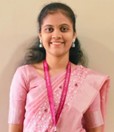

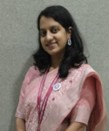
Syllabus
Departmental Activities
Sr.No. | Name of Activity | Academic Year |
1. | Minitab workshop on 10th September 2025 | 2025-26 |
Course Overview
Introduction about the Course
The Bachelor of Science (B.Sc) in Data Science under Statistics is a newly established program launched in 2025 to meet the rapidly growing demand for datadriven decision-making across industries. The program is designed to integrate statistical theory, mathematical foundations, and modern data-science tools, preparing students to analyze complex data and solve real-world problems.
The course aims to produce graduates who are competent in statistical reasoning, computational thinking, and analytical skills, allowing them to thrive in emerging roles such as Data Analysts, Junior Data Scientists, Statisticians, and Business Intelligence professionals.
Established: 2025
Program: B.Sc Data Science (Under Statistics)
Intake: 80 Students
Outcome: Graduates equipped with strong statistical knowledge, programming ability, machine-learning skills, and analytical thinking to excel in modern datacentric roles
Course Intake – 52 Students (2025)
For the academic year 2025, the program admits a maximum of 52 students. This limited intake ensures:
- Personalized attention to each learner
- Better faculty–student interaction
- Hands-on lab sessions and project-based learning
- Strong guidance and mentoring for research and career development
Eligibility
Higher secondary school certificate (10+2) or its equivalent examination with English & Mathematics & with any three science subjects such as Physics, Chemistry, Biology, Geography, Geology etc. A minimum of 50% aggregate marks (or as per institutional norms) is required.
Duration of the Course
3/ 4 years
- 1 Year (2 Semesters): Certificate
- 2 Years (4 Semesters): Diploma
- 3 Years (6 Semesters): Bachelor’s Degree
- 4 Years (8 Semesters): Bachelor’s Degree with Honours / Honours with Research
Course Structure
Year | Term I | Term II | Total |
First | 22 | 22 | 44 |
Second | 22 | 22 | 44 |
SEMESTER I
Semester | Course Type | Course Name/Corse Title | Total Credits |
1 | Theory | Physical Chemistry-I | 4 |
Theory | Analytical Chemistry | 2 | |
Theory | Inorganic Chemistry-I | 2 | |
Theory | Research Methodology | 4 | |
Theory | Organic Chemistry-I | 4 | |
Practical | Physical Chemistry Practical-I | 2 | |
Practical | Inorganic Chemistry Practical-I | 2 | |
Practical | Organic Chemistry Practical-I | 2 | |
Total Credits: | 22 | ||
SEMESTER II
Semester | Course Type | Course Name/Corse Title | Total Credits |
II | Theory | Physical Chemistry-II | 2 |
Theory | Inorganic Chemistry-II | 4 | |
Theory | Organic Chemistry-II | 4 | |
Theory | Green Chemistry | 2 | |
Theory | On-Job Training/Internship | 4 | |
Practical | Physical Chemistry Practical-II | 2 | |
Practical | Inorganic Chemistry Practical-II | 2 | |
Practical | Organic Chemistry Practical-II | 2 | |
Total Credits: | 22 | ||
SEMESTER III
Semester | Course Type | Course Name/Corse Title | Total Credits |
III | Theory | Organic Reaction Mechanism and Stereochemistry | 4 |
Theory | Advanced Spectroscopic Methods in Structure | 4 | |
Theory | Heterocyclic Chemistry | 2 | |
Practical | Organic Synthesis Experiments | 2 | |
Practical | Ternary Mixture Separation | 2 | |
Theory | Synthetic methods in Organic Chemistry | 2 | |
Theory | Medicinal Chemistry | 2 | |
Practical | Research Project | 4 | |
Total Credits: | 22 | ||
SEMESTER IV
Semester | Course Type | Course Name/Corse Title | Total Credits |
IV | Theory | Chemistry of Natural Products | 4 |
Theory | Advanced Synthetic Organic Chemistry | 4 | |
Practical | Convergent and Divergent Organic Synthesis | 2 | |
Practical | Green Chemistry Experiments | 2 | |
Theory | Applied Organic Chemistry | 2 | |
Theory | Industrial Organic Chemistry | 2 | |
Practical | Research Project (RP) | 6 | |
Total Credits: | 22 | ||
Career Prospects
After completing the B.Sc Data Science under Statistics program, students can pursue diverse and high-growth roles in data-driven industries. Possible career paths include: 📊 Data & Analytics Careers
- Data Analyst
- Junior Data Scientist
- Business/Data Intelligence Analyst
- Operations Analyst
- Marketing/Financial Analyst
- Quantitative Analyst (Entry Level)
📈 Statistical & Research Careers
- Statistician
- Research Assistant / Research Analyst
- Survey/Data Collection Specialist Risk & Actuarial Assistant
💻 Technology & Computing Careers
- Machine Learning Assistant / ML Technician
- Database Manager / SQL Analyst Data Visualization Specialist
- Big Data Technician (entry-level)
Program Outcomes
| Program Outcomes | |
| After successful completion of M.Sc. Programme students will be able to: | |
| PO No | Outcomes |
| PO 1 | Learn the terms, theories, assumptions, methods, principles, theorem statements and classification |
| PO2 | Fix out the problem and resolve it using theories and practical knowledge. |
| PO3 | Inculcate knowledge for carrying projects and advanced research related skills. |
| PO4 | Actively participate in team on case studies and field-based situations. |
| PO5 | Analyze and interpret ideas, evidences and experiences with learned scientific reasoning |
| PO6 | Aware and implement the subject facts that can be applied for the personal and social development |
| PO7 | Use digital literacy to retrieve and evaluate subject related information |
| PO8 | Get moral and ethical values for society as well as in research |
| PO9 | Give analytical reasoning to interpret research data. |
| PO10 | Improve their managerial skills and abilities in subject related activities. |
| PO11 | Inculcate continuous learning habit through all available resources. |
Course Outcome
| SEMESTER I | ||||||
| Semester No | Course Code | Type of Course | Course Title | Credits | Hours/Week | |
| I | CHE501 | Theory | Physical Chemistry I | 4 | 4 | |
| Course Objective: | ||||||
| 1 | Introduce students to the fundamental concepts of thermodynamic parameters, quantum mechanical postulates, rate laws of chemical reactions, and the computation of macroscopic properties of matter. | |||||
| 2 | Develop an understanding of core principles such as state and path functions, the Schrödinger wave equation, kinetics of fast reactions, partition functions, and statistical ensembles. | |||||
| 3 | Build a conceptual understanding of the relationship between thermodynamics and quantum mechanics in explaining the macroscopic behavior of matter. | |||||
| CO-1 | Students should be able to remember the concepts of thermodynamic parameters, quantum mechanical postulates, rate laws of chemical reactions and computation of macroscopic properties of matter. | |||||
| CO-2 | Students should understand the basics like state function and path function, Schrodinger wave equation, kinetics of fast reactions, partition functions and ensembles. | |||||
| CO-3 | Students should be able to apply the knowledge of various quantum mechanical methods to determine the different molecular properties and built the concept of the relation between thermodynamics and quantum mechanics. | |||||
| CO-4 | Students should be able to analyze the rates of various chemical reactions both theoretically and experimentally and also observe the effect of catalyst and determine energies of activation of such reactions. | |||||
| CO-5 | Students should be able to evaluate variation of thermodynamic parameters for multi component systems and their variation with other extensive properties, Schrodinger wave equation and its application to hydrogen and hydrogen like atoms. | |||||
| CO-6 | Students should be able to create the solutions to avoid excess use of energy in chemical reactions by applying their knowledge of thermodynamics and chemical kinetics. | |||||
| SEMESTER I | ||||||
| Semester No | Course Code | Type of Course | Course Title | Credits | Hours/Week | |
| I | CHEOD-502 | Theory | Inorganic Chemistry-I | 2 | 2 | |
| Course Objective: | ||||||
| 1 | Define symmetry elements, symmetry operations, classes, properties of a group, and group multiplication tables. | |||||
| 2 | Classify symmetry elements, point groups, groups, sub-groups, and classes of molecular symmetry. | |||||
| 3 | Solve numerical and conceptual problems related to point groups, matrix representations, and character tables. | |||||
| 4 | Analyze molecular bonding by identifying symmetry-adapted linear combinations (SALCs) and justifying orbital participation in bonding based on the point group of molecules. | |||||
| Course Outcomes: | ||||||
| CO-1 | Define symmetry elements and symmetry operations, classes, properties of a group, group multiplication table, etc. | |||||
| CO-2 | Classify symmetry elements, point group, Group, sub-group and classes. | |||||
| CO-3 | Use wave function as basis for determination of irreducible representations and the Great Orthogonality theorem and its consequence. | |||||
| CO-4 | Solve problem based on point group, matrix representation and character table | |||||
| CO-5 | Construct character table of various point group | |||||
| CO-6 | Justify which can take part in bonding on the basis of SALCs and point group of molecules. | |||||
| SEMESTER I | ||||||
| Semester No | Course Code | Type of Course | Course Title | Credits | Hours/Week | |
| I | CHE-503 | Theory | Organic Chemistry-I | 4 | 4 | |
| Course Objective: | ||||||
| 1 | Develop an understanding of the fundamental concepts of chemical bonding, structural effects, acids and bases, reaction intermediates, and aromaticity in organic chemistry. | |||||
| 2 | Introduce and strengthen the concepts of stereochemistry, including configurational and conformational analysis. | |||||
| Course Outcomes: | ||||||
| CO-1 | Understand the concepts of chemical bonding, various structural effects, acids and bases, intermediates and aromaticity. | |||||
| CO-2 | Learn the concepts of stereochemistry. | |||||
| CO-3 | Understand and identify the types of organic reactions. | |||||
| CO-4 | Advanced knowledge of various stereochemical aspects. | |||||
| CO-5 | Establish mechanistic knowledge of aliphatic and aromatic substitutions, and oxidation-reduction reactions | |||||
| CO-6 | Develop problem solving ability of the students. | |||||
| SEMESTER I | ||||||
| Semester No | Course Code | Type of Course | Course Title | Credits | Hours/Week | |
| I | CHE- 504 | Practical | Physical Chemistry Practical I | 2 | 4 | |
| Course Objective: | ||||||
| 1 | Enable students to understand the concept of reaction rate and its significance in chemical kinetics and train students to analyze experimental data to determine rate laws and calculate rate constants.
| |||||
| 2 | Familiarize students with the fundamental principles of colorimetry and spectrophotometry, including Beer’s law, Lambert–Beer’s law, and the relationship between absorbance and concentration. | |||||
| Course Outcomes: | ||||||
| CO-1 | Students will grasp the concept of reaction rate and its significance in Chemical Kinetics. | |||||
| CO-2 | Students will learn how to use experimental data to deduce rate laws and rate constants. | |||||
| CO-3 | Students will be familiar with the fundamental principles of colorimetry and spectrophotometry including Beer’s law, Lambert- Beer’s law and the relationship between absorbance and concentration. | |||||
| CO-4 | Students will be able to operate the instruments like spectrophotometer and colorimeter. | |||||
| CO-5 | Students will be able to determine the densities of the solutions and can calculate molar volumes | |||||
| SEMESTER I | ||||||
| Semester No | Course Code | Type of Course | Course Title | Credits | Hours/Week | |
| I | CHE- 505 | Practical | Inorganic Chemistry Practical I | 2 | 4 | |
| Course Objective: | ||||||
| 1 | Train students to prepare solutions of required concentrations and handle laboratory equipment safely and correctly. | |||||
| 2 | Encourage the application of knowledge to a) design experiments for a given aim or modify existing experiments to improve results, and b) identify lacunae and sources of error in experimental procedures. | |||||
| Course Outcomes: | ||||||
| CO-1 | Prepare solution of required conc. and the handle laboratory equipment properly. | |||||
| CO-2 | Perform experiment accurately and able to perform calculation. | |||||
| CO-3 | Explain experiment and principal of experiment in detail. | |||||
| CO-4 | Perform calculations and discuss results and write conclusions of the experiment. | |||||
| CO-5 | Apply knowledge to a) design experiment for given aim or modify experiment to enhance results. b) to find out lacuna in experimental procedure. | |||||
| CO-6 | Solve problem/ numerical depending on given experimental data / information. | |||||
| SEMESTER I | ||||||
| Semester No | Course Code | Type of Course | Course Title | Credits | Hours/Week | |
| I | 506 | Practical | Organic Chemistry Practical-I | 2 | 4 | |
| Course Objective: | ||||||
| 1 | Develop an understanding of the theoretical principles underlying the separation, purification, and synthesis of organic compounds. | |||||
| 2 | Equip students with experimental skills required for the separation, purification, identification, and synthesis of organic compounds. | |||||
| 3 | Train students to monitor the progress of organic reactions using suitable analytical and observational techniques. | |||||
| Course Outcomes: | ||||||
| CO-1 | Understand the theoretical aspects behind separation, purification and synthesis of organic compounds. | |||||
| CO-2 | Acquire the experimental skills for separation, purification, identification and synthesis of organic compounds. | |||||
| CO-3 | Design experimental set up for performing the organic reactions. | |||||
| CO-4 | Monitor the organic reactions. | |||||
| CO-5 | Describe the mechanistic aspects of organic reactions. | |||||
| CO-6 | Develop problem solving ability. | |||||
| SEMESTER I | ||||||
| Semester No | Course Code | Type of Course | Course Title | Credits | Hours/Week | |
| I | CHE-507(C) |
Theory | Analytical Chemistry | 2 | 2 | |
| Course Objective: | ||||||
| 1 | Define and recall fundamental concepts related to Good Laboratory Practices (GLP), laboratory safety, and quality assurance. | |||||
| 2 | Apply knowledge of quality assurance and laboratory safety to prepare quality assurance reports and manage laboratory emergencies effectively. | |||||
| 3 | Explain concepts related to quality assurance systems, laboratory accreditation, laboratory emergencies, and different ionization techniques used in analytical techniques. | |||||
| Course Outcomes: | ||||||
| CO-1 | Define/memorize GLP, Lab Safety, Quality assurance | |||||
| CO-2 | Discuss good laboratory practices, laboratory emergencies, and mass spectrometry | |||||
| CO-3 | Apply their knowledge to prepare quality assurance reports, emergencies in the laboratory | |||||
| CO-4 | Differentiate between different ionization technique, compare hazardous and non-hazardous material handling | |||||
| CO-5 | Explain the Quality Assurance, Laboratory Accreditation, Laboratory Emergencies, different ionization technique | |||||
| CO-6 | Applications of GLP, Lab Safety, mass spectrometry | |||||
| SEMESTER I | ||||||
| Semester No | Course Code | Type of Course | Course Title | Credits | Hours/Week | |
| I | CHE-508 | Theory | Research Methodology | 4 | 4 | |
| Course Objective: | ||||||
| 1 | Cultivate critical thinking and analytical skills required for identifying research problems and formulating meaningful research questions. | |||||
| 2 | Provide practical experience in designing research studies, collecting and analyzing data, and interpreting research findings. | |||||
| 3 | Foster effective communication skills for presenting research outcomes clearly and coherently in both oral and written forms. | |||||
| Course Outcomes: | ||||||
| CO-1 | Develop a comprehensive understanding of different research methodologies and their applications in mathematics. | |||||
| CO-2 | Cultivate critical thinking and analytical skills necessary for identifying research problems and formulating research questions. | |||||
| CO-3 | Provide practical experience in designing experiments, collecting and analyzing data, and interpreting research results. | |||||
| CO-4 | Foster effective communication skills for presenting research findings orally and in written form. | |||||
| CO-5 | Promote ethical research practices and awareness of responsible conduct in mathematical research | |||||
| CO-6 | Develop problem solving ability. | |||||
| SEMESTER II | ||||||
| Semester No | Course Code | Type of Course | Course Title | Credits | Hours/Week | |
| II | CHEOD- 551 | Theory | Molecular Spectroscopy | 2 | 2 | |
| Course Objective: | ||||||
| 1 | Recall the basic concepts of molecular spectroscopy, including selection rules, intensity of spectral lines, and the width of spectral transitions. | |||||
| 2 | Develop an understanding of the principles and applications of rotational, vibrational, Raman, electronic, and Mössbauer spectroscopy. | |||||
| Course Outcomes: | ||||||
| CO-1 | Remember basic concepts of molecular spectroscopy, selection rules, intensity of spectral lines and width of spectral transition. | |||||
| CO-2 | Understand principles and applications of rotational, vibrational, raman, electronic and mossbauer spectroscopy. | |||||
| CO-3 | Apply various spectroscopic techniques for gaining insights into molecular structure | |||||
| CO-4 | Analyse vibrating diatomic molecule, simple harmonic and anharmonic oscillator, Scattering of light and Raman Spectrum. | |||||
| CO-5 | Evaluate bond length, vibrational frequency, force constant and dissociation energy using spectral data. | |||||
| CO-6 | Create awareness about rotational fine structure, vibrational coarse structure, Quadrupole effects | |||||
| SEMESTER II | ||||||
| Semester No | Course Code | Type of Course | Course Title | Credits | Hours/Week | |
| II | CHE-552 | Theory | Inorganic Chemistry-II | 4 | 4 | |
| Course Objective: | ||||||
| 1 | Define fundamental terms related to electronic structure and magnetism, including R–S terms, electronic configurations, microstates, paramagnetism, diamagnetism, ferromagnetism, antiferromagnetism, and Curie and Néel temperatures. | |||||
| 2 | Identify complex ions exhibiting identical R–S terms, determine ground-state term degeneracies of metal ions, and evaluate spin multiplicities for different electronic configurations. | |||||
| 3 | Calculate absorption frequencies, crystal field splitting parameter (10Dq), Racah parameters, nepholauxetic parameter, and magnetic moments of coordination complexes. | |||||
| Course Outcomes: | ||||||
| CO-1 | Define R. S. term, configuration, microstate, paramagnetic, diamagnetic ferromagnetic, antiferromagnetic, Curie and Neel temperature. | |||||
| CO-2 | Identify complex ions showing same R.S. terms, degeneracy of ground state terms of metal ions, and spin multiplicities of different configurations. | |||||
| CO-3 | Interpret electronic spectra for spin allowed Oh and Td complexes using Orgel diagram, Magnetic properties of A, E and T ground terms in complexes and selection rules. | |||||
| CO-4 | Calculate frequencies of absorption spectrum, 10Dq, Racah and nepholauxetic parameter for a complex, and magnetic moments of complexes | |||||
| CO-5 | Construct microstate table for various configuration and prepare correlations diagram and Tanabe-Sugano diagram for various configurations in Td an Oh ligand field. | |||||
| CO-6 | Assess appropriate full spectroscopic terms for various configuration/ion/term. | |||||
| SEMESTER II | ||||||
| Semester No | Course Code | Type of Course | Course Title | Credits | Hours/Week | |
| II | CHE-553 | Theory | Organic Chemistry-II | 4 | 4 | |
| Course Objective: | ||||||
| Develop an understanding of the fundamental concepts of pericyclic reactions, photochemical reactions, and molecular rearrangements. | ||||||
| Enable students to identify and classify different types of pericyclic and photochemical reactions. | ||||||
| Develop the ability to deduce organic molecular structures from spectral data and justify the interpretations logically. | ||||||
| Course Outcomes: | ||||||
| CO-1 | Understand the concepts of pericyclic and photochemical reactions, and molecular rearrangements | |||||
| CO-2 | Learn concepts of Organic Spectroscopy. | |||||
| CO-3 | Identify the type of pericyclic and photochemical reactions | |||||
| CO-4 | Solve the problems based on pericyclic and photochemical reactions and molecular rearrangements | |||||
| CO-5 | Deduce the structure from the spectral data and justify the findings. | |||||
| CO-6 | Develop problem solving ability of the students. | |||||
| SEMESTER II | ||||||
| Semester No | Course Code | Type of Course | Course Title | Credits | Hours/Week | |
| II | CHE-557 | Theory | Green Chemistry | 2 | 2 | |
| Course Objective: | ||||||
| Apply the principles of green chemistry to design and optimize chemical processes. | ||||||
| Utilize green chemistry concepts to reduce the cost and environmental impact of chemical processes. | ||||||
| Analyze chemical data to select safer, renewable, and environmentally friendly raw materials for chemical processes. | ||||||
| Course Outcomes: | ||||||
| CO-1 | Apply the principles of green chemistry to chemical processes. | |||||
| CO-2 | Apply the principles of green chemistry to reduce the cost of chemical processes. | |||||
| CO-3 | Develop economical synthetic route involving principles of green chemistry. | |||||
| CO-4 | Analyze chemical data and choose safer and renewalbe raw materials for chemical processes. | |||||
| CO-5 | Develop processes in accordance with Sustainable Development Goals. | |||||
| SEMESTER II | ||||||
| Semester No | Course Code | Type of Course | Course Title | Credits | Hours/Week | |
| II | CHE- 554 | Practical | Physical Chemistry Practical II | 2 | 4 | |
| Course Objective: | ||||||
| 1 | Enable students to understand the fundamental principles of conductometry, polarography, potentiometry, and pH-metry. | |||||
| 2 | Develop an understanding of the concepts of conductance and resistance, and train students to calculate and interpret these parameters. | |||||
| Course Outcomes: | ||||||
| CO-1 | Students will grasp the fundamental principles of Conductometry, Polarography, Potentiometry and pH metry. | |||||
| CO-2 | Students will familiar with the operation of Conductometer, Polarimeter, Potentiometer and pH meter. | |||||
| CO-3 | Students will understand the concepts of conductance, resistance and learn how to calculate and interpret these values. | |||||
| CO-4 | Students will learn to interpret polarographic waves and understand their significance in identifying electroactive species and determining their concentration. | |||||
| CO-5 | Students will explore the applications of Potentiometry in various fields such as acid- base titrations, determination of pH and analysis of ionic concentration | |||||
| SEMESTER II | ||||||
| Semester No | Course Code | Type of Course | Course Title | Credits | Hours/Week | |
| II | CHE- 555 | Practical | Inorganic Chemistry Practical II | 2 | 4 | |
| Course Objective: | ||||||
| 1 | Define key terms related to coordination and analytical chemistry, such as coordination complexes, cell constant, resistance, specific conductance, equilibrium constant, absorbance, Beer’s law, solubility product, and chromatography. | |||||
| 2 | Discuss the photochemistry of potassium trioxalatoferrate(III) complex, the kinetics of formation of Cr(III)–EDTA complex, and the determination of Cu(II) and Fe(II) using solvent extraction techniques. | |||||
| Course Outcomes: | ||||||
| CO-1 | Define coordination complex, cell constant, resistance, specific conductance, equilibrium constant, absorbance, Beer’s law, solubility product, chromatography, etc. | |||||
| CO-2 | Discuss photochemistry of potassium trioxalatoferrate complex, kinetics of formation of Cr(III)-EDTA, Determination of Cu(II)and Fe (II) by solvent extraction technique. | |||||
| CO-3 | Outline the flow-chart for synthesis of [Mn(acac)3], Chloropentaamminecobalt(III) chloride, Nitro pentaamminecobalt(III) chloride, Bis[TrisCu(I)thiourea complexes. | |||||
| CO-4 | Estimate purity of the [Mn(acac)3], Chloropentaamminecobalt(III) chloride, Nitro pentaamminecobalt(III) chloride, Bis[TrisCu(I)thiourea complexes. | |||||
| CO-5 | Determine equilibrium constant of M – L systems Fe(III)–Sulphosalicylic acid, magnetic susceptibility (χg and χm) of mercury tetracyanato cobalt or Fe(acac) and magnetic susceptibility (χg and χm) of mercury tetracyanato cobalt or Fe(acac). | |||||
| CO-6 | Calculate the quantity from observation of the experiments and Interpret the result obtained respective experiments. | |||||
| SEMESTER II | ||||||
| Semester No | Course Code | Type of Course | Course Title | Credits | Hours/Week | |
| II | CHE- 556 | Practical | Organic Chemistry Practical II | 2 | 4 | |
| Course Objective: | ||||||
| 1 | Develop an understanding of the theoretical principles underlying organic synthesis. | |||||
| 2 | Acquire experimental skills for the separation, purification, identification, and synthesis of organic compounds. | |||||
| Course Outcomes: | ||||||
| CO-1 | Understand the theoretical concepts behind organic synthesis. | |||||
| CO-2 | Acquire the experimental skills for separation, purification, identification and synthesis of organic compounds. | |||||
| CO-3 | Design experimental set up for performing the organic reactions. | |||||
| CO-4 | Monitor the organic reactions and analyse the products using spectral results. | |||||
| CO-5 | Describe the mechanistic aspects of organic reactions. | |||||
| CO-6 | Develop problem solving ability | |||||
| SEMESTER III | ||||||
| Semester No | Course Code | Type of Course | Course Title | Credits | Hours/Week | |
| I | CHO601 | Theory | Organic Reaction Mechanism and Stereochemistry | 4 | 4 | |
| Course Objective: | ||||||
| 1 | To apply concepts of reaction mechanisms and stereochemistry. | |||||
| 2 | To design Synthetic Routes and Strategies for different organic reactions. | |||||
| CO-1 | Acquire familiarity with fundamental organic reaction mechanisms and stereochemistry principles. | |||||
| CO-2 | Gain a comprehensive understanding of Theoretical Concepts to Predict Reactivity and Selectivity. | |||||
| CO-3 | Apply concepts of reaction mechanisms and stereochemistry. | |||||
| CO-4 | Design Synthetic Routes and Strategies | |||||
| CO-5 | Analyze the products of different organic reactions. | |||||
| CO-6 | Solve Complex Organic Chemistry Problems based on Organic Reaction Mechanism and Stereochemistry. | |||||
| SEMESTER III | ||||||
| Semester No | Course Code | Type of Course | Course Title | Credits | Hours/Week | |
| I | CHO-602 | Theory | Advanced Spectroscopic Methods in Structure Determination | 4 | 4 | |
| Course Objective: | ||||||
| 1 | To learn knowledge of spectroscopic techniques like 1H NMR, 13C NMR, 19F NMR and Mass Spectral study | |||||
| 2 | Discuss and interpret different types of spectra | |||||
| Course Outcomes: | ||||||
| CO-1 | Learn the fundamental knowledge of 1H NMR, 13C NMR, 19F NMR and Mass Spectral techniques. | |||||
| CO-2 | Acquire advanced knowledge of 1H NMR, 13C NMR, 19F NMR and Mass Spectral techniques. | |||||
| CO-3 | Apply the knowledge of 1H NMR, 13C NMR, 19F NMR and Mass Spectral techniques for structure determination. | |||||
| CO-4 | Discuss probable spectral signals. | |||||
| CO-5 | Interpret different types of spectra. | |||||
| CO-6 | Deduce the structure of the unknown compound using 1H NMR, 13C NMR and Mass Spectra. | |||||
| SEMESTER III | ||||||
| Semester No | Course Code | Type of Course | Course Title | Credits | Hours/Week | |
| I | CHO-603 | Theory | Heterocyclic Chemistry | 2 | 2 | |
| Course Objective: | ||||||
| 1 | To learn the structures, nomenclature rules, and classifications of heterocyclic compounds. | |||||
| 2 | Understand the synthetic methodologies to design and execute the synthesis of various heterocyclic compounds. | |||||
| Course Outcomes: | ||||||
| CO-1 | Learn the structures, nomenclature rules, and classifications of heterocyclic compounds. | |||||
| CO-2 | Understand advanced synthetic methodologies to design and execute the synthesis of various heterocyclic compounds. | |||||
| CO-3 | Predict the molecular properties, electronic structures, and the reactivity of heterocyclic systems. | |||||
| CO-4 | Distinguish the reactivity of heterocycles, elucidating reaction mechanisms and their pathways. | |||||
| CO-5 | Evaluate the heterocyclic compounds with other organic compounds. | |||||
| CO-6 | Summarize the significance and applications of heterocyclic chemistry. | |||||
| SEMESTER III | ||||||
| Semester No | Course Code | Type of Course | Course Title | Credits | Hours/Week | |
| I | CHO- 604 | Practical | Organic Synthesis Experiments | 2 | 4 | |
| Course Objective: | ||||||
| 1 | To apply knowledge of functional group transformations to troubleshoot and optimize reaction conditions. | |||||
| 2 | To examine synthetic routes for heterocyclic compound synthesis. | |||||
| Course Outcomes: | ||||||
| CO-1 | Recall the sequential steps involved in the preparation of target compounds from given starting materials in single-stage, and double-stage preparations. | |||||
| CO-2 | Recognize the mechanisms of organic preparations and their relevance to product formation. | |||||
| CO-3 | Apply knowledge of functional group transformations to troubleshoot and optimize reaction conditions. | |||||
| CO-4 | Assess the synthetic pathways for the efficient production of target compounds. | |||||
| CO-5 | Examine the structure and reactivity of starting materials to propose viable synthetic routes for heterocyclic compound synthesis. | |||||
| CO-6 | Design multistep synthetic strategies for the construction of complex heterocyclic scaffolds from simple starting materials in heterocyclic compound synthesis. | |||||
| SEMESTER III | ||||||
| Semester No | Course Code | Type of Course | Course Title | Credits | Hours/Week | |
| I | CHO-605 | Practical | Ternary Mixture Separation | 2 | 4 | |
| Course Objective: | ||||||
| 1 | To understand the concept of type determination and apply separation techniques.. | |||||
| 2 | To analyze microscale chemical elemental analysis. | |||||
| Course Outcomes: | ||||||
| CO-1 | Understand the concept of type determination and apply separation techniques.. | |||||
| CO-2 | Comprehend different purification techniques | |||||
| CO-3 | Accurately record and report physical constants. | |||||
| CO-4 | Analyze microscale chemical elemental analysis. | |||||
| CO-5 | Evaluate and execute qualitative estimation of functional groups. | |||||
| CO-6 | Create a report on ternary mixture separation | |||||
| SEMESTER III | ||||||
| Semester No | Course Code | Type of Course | Course Title | Credits | Hours/Week | |
| I | CHO-610 | Theory | Synthetic Methods in Organic Chemistry | 2 | 2 | |
| Course Objective: | ||||||
| 1 | To analyse the product by different synthetic methods. | |||||
| 2 | To learn the synthetic applications of Organo-Boron, Organo-Tin and Organo Silicon | |||||
| Course Outcomes: | ||||||
| CO-1 | Know the concepts of ring formation mechanism and will apply in organic synthesis. | |||||
| CO-2 | learn the synthetic applications of Organo-Boron, Organo-Tin and Organo Silicon | |||||
| CO-3 | Predict the reaction conditions of organic reactions. | |||||
| CO-4 | Analyze the products obtained from the synthetic methods. | |||||
| CO-5 | Relate the reaction mechanism and its products. | |||||
| CO-6 | Create a summary of synthetic methods in organic chemistry. | |||||
| SEMESTER III | ||||||
| Semester No | Course Code | Type of Course | Course Title | Credits | Hours/Week | |
| I | CHO-610C | Theory | Medicinal Chemistry | 2 | 2 | |
| Course Objective: | ||||||
| 1 | To identify drug and learn different stages of drug design and development. | |||||
| 2 | To understand the difference between infectious and non-infectious diseases | |||||
| Course Outcomes: | ||||||
| CO-1 | Identify drug and learn different stages of drug design and development. | |||||
| CO-2 | Know the application of computers in drug design. | |||||
| CO-3 | Categorize various stages of Drug action and analyze various factors affecting drug action. | |||||
| CO-4 | distinguish between infectious and non-infectious diseases | |||||
| CO-5 | Relate the infectious diseases and causative agents. | |||||
| CO-6 | Summarize the overall significance, development and applications of various drugs. | |||||
| SEMESTER III | ||||||
| Semester No | Course Code | Type of Course | Course Title | Credits | Hours/Week | |
| II | CHO-631RP | RP | Research Project | 4 | 4 | |
| Course Objective: | ||||||
| 1 | To understand the concepts of research methodology. | |||||
| 2 | To evaluate and design research project | |||||
| Course Outcomes: | ||||||
| CO-1 | Understand key concepts and principles relevant to the research topic. | |||||
| CO-2 | Learn diverse research methodologies proficiently. | |||||
| CO-3 | Write and communicate research findings persuasively through various mediums in the form of project report | |||||
| CO-4 | Analyze and synthesize scholarly literature effectively. | |||||
| CO-5 | Evaluate research findings and methodologies critically. | |||||
| CO-6 | Design and execute original research projects independently. | |||||
| SEMESTER IV | ||||||
| Semester No | Course Code | Type of Course | Course Title | Credits | Hours/Week | |
| II | CHO-651 | Theory | Chemistry of Natural Products | 4 | 4 | |
| Course Objective: | ||||||
| 1 | To learn the fundamental aspects and knowledge of natural products. | |||||
| 2 | To know the different pathways and biogenesis of natural products | |||||
| Course Outcomes: | ||||||
| CO-1 | Learn the fundamental aspects and knowledge of natural products. | |||||
| CO-2 | Know the different pathways and biogenesis of natural products | |||||
| CO-3 | Apply the gained knowledge in the synthesis of natural products. | |||||
| CO-4 | Categorize the organic functional group transformations in their synthesis. | |||||
| CO-5 | Interpret the logical retrosynthetic analysis. | |||||
| CO-6 | Design the mechanism and stereochemistry of Natural products. | |||||
| SEMESTER IV | ||||||
| Semester No | Course Code | Type of Course | Course Title | Credits | Hours/Week | |
| II | CHO-652 | Theory | Advanced Synthetic Organic Chemistry | 4 | 4 | |
| Course Objective: | ||||||
| 1 | To understand the fundamental concepts of organometallic reactions and their bonding, reactivity, and mechanism. | |||||
| 2 | Analyse synthetic organic reactions using advanced synthetic reagents. | |||||
| Course Outcomes: | ||||||
| CO-1 | Learn the fundamental concepts of organometallic reactions and their bonding, reactivity, and mechanism. | |||||
| CO-2 | Understand the significance of advanced organometallic reagents in organic chemistry. | |||||
| CO-3 | Employ synthetic methodologies for cross-coupling reactions, enabling the formation of C- C, C-N, and other bonds. | |||||
| CO-4 | Analyze the products of synthetic organic reactions. | |||||
| CO-5 | Relate the products of the retrosynthetic transformations with the Target Molecules. | |||||
| CO-6 | Design the summary of advanced synthetic reagents, their reactions and the products. | |||||
| SEMESTER IV | ||||||
| Semester No | Course Code | Type of Course | Course Title | Credits | Hours/Week | |
| II | CHO-653 | Practical | Convergent and Divergent Organic Synthesis | 2 | 4 | |
| Course Objective: | ||||||
| 1 | To learn new synthetic methodologies for the selective modification of starting materials. | |||||
| 2 | Analyze reaction mechanism and create novel synthesis routes. | |||||
| Course Outcomes: | ||||||
| CO-1 | Learn new synthetic methodologies for the selective modification of starting materials. | |||||
| CO-2 | Recognize the reactivity of starting materials towards different reagents and reaction conditions. | |||||
| CO-3 | Apply multi-step synthesis strategies to construct complex molecules from simple starting materials. | |||||
| CO-4 | Analyze reaction mechanisms and intermediates to understand the synthesis pathways. | |||||
| CO-5 | Evaluate the efficiency and practicality of different synthetic routes based on yield and selectivity. | |||||
| CO-6 | Create novel synthesis routes based on the principles of organic chemistry and reactivity patterns. | |||||
| SEMESTER IV | ||||||
| Semester No | Course Code | Type of Course | Course Title | Credits | Hours/Week | |
| II | CHO-654 | Practical | Green Chemistry Experiments | 2 | 4 | |
| Course Objective: | ||||||
| 1 | To know the principles of green chemistry and the importance of sustainability in chemical processes | |||||
| 2 | To analyse the reactions through green Chemistry principles. | |||||
| Course Outcomes: | ||||||
| CO-1 | Know the principles of green chemistry and the importance of sustainability in chemical processes. | |||||
| CO-2 | Identify solvent-free reactions using appropriate techniques and equipment. | |||||
| CO-3 | Optimize green chemistry reactions in the laboratory. | |||||
| CO-4 | Analyze the advantages and disadvantages of solvent-free reactions, green catalysts, and green solvents in comparison to traditional chemical methodologies. | |||||
| CO-5 | Assess the role of green catalysts in promoting the desired reactions while minimizing waste and environmental impact. | |||||
| CO-6 | Communicate experimental procedures, results, and conclusions effectively through written reports and oral presentations. | |||||
| SEMESTER IV | ||||||
| Semester No | Course Code | Type of Course | Course Title | Credits | Hours/Week | |
| II | CHO-660 | Theory | Applied Organic Chemistry | 2 | 2 | |
| Course Objective: | ||||||
| 1 | Classify functional dyes, polymers, and metal-organic frameworks and impurities found in drugs | |||||
| 2 | To understand techniques for removal of impurities in drug and dye. | |||||
| Course Outcomes: | ||||||
| CO-1 | Gain a comprehensive understanding of impurities in organic drugs, functional dyes, polymers, and metal-organic frameworks. | |||||
| CO-2 | Demonstrate comprehension of the principles, structures, and mechanisms underlying each concept. | |||||
| CO-3 | Identify functional dyes, polymers, metal-organic frameworks and impurities present in organic drugs. | |||||
| CO-4 | Classify functional dyes, polymers, and metal-organic frameworks and impurities found in drugs according to relevant criteria. | |||||
| CO-5 | Compare functional dyes, polymers, metal-organic frameworks, and the impurities in drugs. | |||||
| CO-6 | Develop a strategic plan or workflow for the removal of impurities in organic drugs, identification of functional dyes and their properties, polymers properties and their synthesis, and metal-organic framework synthesis. | |||||
| SEMESTER IV | ||||||
| Semester No | Course Code | Type of Course | Course Title | Credits | Hours/Week | |
| II | CHO-681 | RP | Research Project | 6 | 6 | |
| Course Objective: | ||||||
| 1 | To learn and write research findings and communicate. | |||||
| 2 | Evaluate research findings and design in the form of project | |||||
| Course Outcomes: | ||||||
| CO-1 | Understand key concepts and principles relevant to the research topic. | |||||
| CO-2 | Learn diverse research methodologies proficiently. | |||||
| CO-3 | Write and communicate research findings persuasively through various mediums in the form of project report | |||||
| CO-4 | Analyze and synthesize scholarly literature effectively. | |||||
| CO-5 | Evaluate research findings and methodologies critically. | |||||
| CO-6 | Design and execute original research projects independently. | |||||
Faculty/Staff



Syllabus
Departmental Activities
SN | Name of Activity | Academic Year |
1. | CSR Activity under Pratibha Finishing School | 2025-26 |
2. | Day Celebration on Birth anniversary of Sir John McCarthy(Father of AI): Prompt Challenge Competition to create AI generated Videos | |
3. | Guest Lecture : (A) :- Career Guidance for Database Developer by Mr.Shahid Sayyed(Sr.specialist at Synechron) : (B) :- Hands on Training on Machine Learning Concept by Mr. Piyush Pundpal(Data Scientist at One Network Enterprises) : (C) Java + MERN Stack Live hands on training workshop by Trainer : Pankaj Arora | |
4. | Screening Test for Entry level Students (FY BSc (CA)): A short screening to evaluate foundational knowledge and prepare you for upcoming subjects. | |
5. | SEBI Lecture by Mr.Amol Marekar (SEBI-Securities Market Trainer, NISM Certified, Investment Education Advocate): An insightful session introducing students to SEBI’s role in ensuring fair and transparent financial markets. | |
6. | Ticket to IT Activity(Rapid chain Story , Talk show, Open Mike, Tech Charades: Damm Sheras, memory Stack, Introduce Yourself: Confidence Grooming) : A dynamic ice-breaking activity series aimed at enhancing communication, memory, and personality development for IT beginners. | |
7. | Outdoor Management Training : Industrial Visit for PG Students to khandi (Explored outdoor activities & gained the adventurous knowledge by Mr.Rajesh kapade ) | |
SN | Name of Activity | Academic Year |
1. | Seminar: Current Trends in Computer Technologies: “Agile and DevOps” by Mr. Manjul Solanke (Lead DevOps Engineer) & Mr. Rajesh Patankar (Automation Lead & Scrum Master (Agile Coach)) | 2024-25 |
2. | F.Y. B.Sc.(Computer Application) Orientation Program Induction Program for U.G and P.G. Students (A structured induction to help students understand the course, campus culture, and opportunities ahead.) | |
3. | Alumini Lecture : (A):- “Career Guidance” by Mr. Akash Murhe(Web developer at Applot Solution Private Ltd.) (B):- Alumni Lecture on “HyperAutomation” by Nikita Jain (Sr. consultant at Protiviti Global Consulting firm) | |
4. | Guest Lecture : (A) “Data Structures : Understanding the Algorithmic Power” by Mr.Sandesh Dumbre(Sr.Software Eng.at Telstra) : (B) “Career Awareness about Study Abroad” by Mr.Aman Sayyed (Eyebright Global Services) : (C) Career counselling session on Career after under graduation. By Manish Patankar (Program Coordinator of MCA at PIBM) :(D) Career in Startups by Mr.Rahul Bankar | |
5. | Parent Teacher’s Meet Regarding Student’s progress. A collaborative meeting to discuss students’ academic progress and overall development. | |
6. | Builders of Modern Society Celebration: (A) :- Birth anniversary of Sir C. D. Deshmukh.(First Indian Governor of RBI & Ex. Fianance Minister) (B) :- Birth Anniversary of Mr. Osamu Suzuki(Padma Vibhushan Awardee) | |
7. | Signature Activity: – 1: General Aptitude Test (“A quick test designed to measure core aptitude and analytical thinking.”) | |
8. | Signature Activity :- 2 (A) :- Workshop on Python & Angular JS by Mr.Akash Gole (Lead Frontend Developer at Dynasty Gaming and Media) (B) :- Workshop on “Dive in Web Technology via Frameworks (Python, Tkinter, and Databases)” by Ms.Asmita Gorse (Technical Trainer at GTT barclays,Pune) | |
9. | Outdoor Management Training : Industrial Visit to Khandi for PG Students(Explored outdoor activities ) | |
10. | Pragyan 2.0 : Pulse Pixel Competition: Pulse Pixel Video Making Competition | |
11. | Pragyan 2.0 : Groove on The Go Competition: E- Flyer Making Competition | |
12. | Pragyan 2.0 : Play with Clay Competition: Model Making Competition | |
13. | Pragyan 2.0 : Freeze The Moment Competition: Freeze The Moment Quiz Competition | |
14. | Vigyaan – 2.0 Competition: Animation Movie Making Competition | |
SN | Name of Activity | Academic Year |
1. | Industrial Visit: (A):- ISRO (“Our students had the opportunity to visit ISRO’s main laboratory, gaining inspiring exposure to India’s premier space research facility.”) :(B):- Barclays: IT MNC(Educational Visit to give students major exposure to real working environment for women) |
|
2. | Day Celebration Activity: (A):- Ramdhari Singh Dinkar Birthday Celebration(Padma Bhushan and Sahitya Akademi Awardee) :(B) :- Tribute to Mr. Karpoori Thakur (Bihar’s 11th Chief Minister , BharatRatana Awardee) : (C):- Bihar Diwas : Yuva Shakti Bihar ki Pragati.(one minute talk activity) | 2023-24 |
3. | Guest Lecture: (A):-Domains in Computer Networking and Ethical Hacking by Mr.Tejas Palaspagar(Testing Expert at Jetking Education Skill Institute) (B):- Java Database Connectivity by Mr.Hitesh Wankhede(Prof. at CJC Classes,Akurdi) | |
4. | Alumni Lecture: Knowledge Impart Program on DevOps by Mr.Kiran Pyati(Project Manager at Infobeans Technologies) | |
5. | Add On Course: Add on Course on Mobile Application Development. (An add-on course designed to build practical skills in Mobile Application Development for real-world use.”) | |
6. | Pragyan: Pulse Pixel Competition: Pulse Pixel Video Making Competition | |
7. | Pragyan: Groove on The Go Competition: E- Flyer Making Competition | |
8. | Pragyan : Play with Clay Competition: Model Making Competition | |
9. | Vigyaan Competition: Rangoli Making Competition |
Course Overview
Introduction about the Course
- The Master of Science in Cyber Security (M.Sc. Cyber Security) program is designed to provide advanced education and training in the field of Cyber Security.
- This comprehensive program aims to equip students with a profound understanding of theoretical concepts, practical skills, and cutting-edge technologies relevant to the rapidly evolving world of computing.
- With a strong emphasis on academic excellence and research-driven learning, the M.Sc. Cyber
- Security program seeks to nurture a community of skilled Cyber security professionals capable of addressing complex challenges across various industries.
- By fostering a stimulating and innovative learning environment, we strive to empower our students to become leaders, innovators, and agents of positive change in the field of Computer Science.
- Year of Establishment: 2025
- Affiliated to Savitribai Phule Pune University, Pune
- Intake: 24
Eligibility
- B.Sc. (Cyber and Digital Science) OR
- B.Sc. (Cyber Security) OR
- Bachelor of Computer Science (B.C.S.) OR
- B.Sc. (Computer Science) OR
- B.C.A. (Science) OR
- B.Sc. (Information Technology) OR
- B.Sc. (Cloud Computing) OR
- Bachelor of Engineering (BE) in Computer Science/Information Technology/Electronics and
- Telecommunication/AI and Data Science/AI and Machine Learning/ equivalent OR
- B.Voc. in Software Development/ Information Technology OR
- B.Sc. with Computer Science as Principal Subject OR
- General B.Sc. with Computer Science as one of the subject at TYBSc level OR
- Graduate degree from a recognized university / institution with an equivalent qualification.
Duration of the Course
Two Year Post graduation Degree Course, M.Sc. (Cyber Security) introduced in from A.Y. 2025-26
Course Structure
Year | Term I | Term II | Total |
| Total Credit | Total Credit | Term I + Term II |
First | 22 | 22 | 44 |
Second | 22 | 22 | 44 |
SEMESTER I
Semester
| Course Type | Course Code | Course Name/Title | Course Credits | |
TH | PR | ||||
I
| Major Core (10+4) | MCS-501-MJ | Malware Analysis II | 2 |
|
MCS-502-MJ | Intrusion Detection and Prevention System | 2 |
| ||
MCS-503-MJ | Digital Image Processing | 2 |
| ||
MCS-504-MJP | PracticalBasedonMCS501MJ |
| 2 | ||
MCS-505-MJP | PracticalBasedonMCS502MJ |
| 2 | ||
I
| Major Elective (2+2) | MCS-510-MJ | Digital Payments and Its Security | 2 |
|
MCS-511-MJP | PracticalBasedonMCS510MJ |
| 2 | ||
OR | |||||
MCS-512-MJ | Wireless Security | 2 |
| ||
MCS-513-MJP | PracticalBasedonMCS512MJ |
| 2 | ||
OR | |||||
| MCS-514-MJ | ITAct2000inCyberspace | 2 |
| |
MCS-515-MJP | PracticalBasedonMCS514MJ |
| 2 | ||
I | Minor (4) | MCS-531-RM | Research Methodology | 4 |
|
| Total Credits | 16 | 6 | ||
SEMESTER II
Semester | Course Type | Course code | Course Name | Credits | |
TH | PR | ||||
II | Major Core (10+4) | MCS-551-MJ | Mobile Application and Services | 2 |
|
MCS-552-MJ | Incident Handling | 2 |
| ||
MCS-553-MJ | Cyber Security Architecture | 2 |
| ||
MCS-554-MJP | Practical Based on MCS551MJ |
| 2 | ||
MCS-555-MJP | Practical Based on MCS552MJ |
| 2 | ||
II | Major Elective (2+2) | MCS-560-MJ | Dark web and Cyber warfare | 2 |
|
MCS-561-MJP | Practical Based on MCS560MJ |
| 2 | ||
OR | |||||
MCS-562-MJ | Dev Sec Ops | 2 |
| ||
MCS-563-MJP | Practical Based on MCS562MJ |
| 2 | ||
OR | |||||
MCS-564-MJ | Tools and Technology for Cyber Security | 2 |
| ||
MCS-565-MJP | Practical Based on MCS – 563-MJ |
| 2 | ||
II | FP/OJT/CEP (4) | MCS-581-OJT | OJT |
| 4 |
| Total Credits | 12 | 10 | ||
SEMESTER III
Semester | Course Type | Course code | Course Name | Credits | |
TH | PR | ||||
III | Major Core | MCS-601-MJ | Cloud Security and Services | 4 | – |
MCS-602-MJ | Virtualization &Forensics | 4 | – | ||
MCS-603-MJ | Security Audit | 2 | – | ||
MCS-604-MJP | LabcourseonMCS-601-MJ and 603 | – | 2 | ||
MCS-605-MJP | LabcourseMCS-602-MJ | – | 2 | ||
III | Major Elective | MCS-610-MJ | Penetration Testing | 2 | – |
MCS-611-MJP | LabCourseonMCS-610-MJ | – | 2 | ||
OR | |||||
MCS-612-MJ | DevOps Fundamentals | 2 | – | ||
MCS-613-MJP | LabCourseonMCS-612-MJ | – | 2 | ||
OR | |||||
MCS-614-MJ | Mobile forensic | 2 | – | ||
MCS-615-MJP | PracticalonMCS-614-MJ | – | 2 | ||
III | Research Project | MCS-631-RP | Research Project Work (120 Hrs) | – | 4 |
| Total Credits | 12 | 10 | ||
SEMESTER IV
Semester | Course Type | Course code | Course Name | Credits | |
TH | PR | ||||
IV | Major Core | MCS-651-MJP | Full Time Industrial Training (IT) | – | 12 |
IV | Major Elective | MCS-652-MJ | Online/MOOC(Elective Courses List) | 4 | – |
IV | Research Project | MCS-681-RP | Research Project Work (180 hrs.) | – | 6 |
| Total | 4 | 18 | ||
Abbreviations
MCS | MSc Cyber Security | MJ | Major Theory |
RM | Research Methodology | MJP | Major Practical |
OJT | On Job Training | RP | Research Project |
TH | Theory | PR | Practical |
CE | Continuous Evaluation | EE | End semester Evaluation |
MOOC | Massive Open Online Course |
|
|
Career Prospects
- Cyber Security Analyst / Information Security Analyst
- Penetration Tester (Ethical Hacker)
- Security Engineer / Security Architect
- Network Security Engineer
- Cyber Threat Intelligence Analyst
- Malware Analyst / Reverse Engineer
- Digital Forensics Investigator
- Cloud Security Engineer
- DevSecOps Engineer
- Security Operations Center (SOC) Analyst (L1/L2/L3)
- Information Security Manager / Officer
- Compliance Specialist
Program Outcomes
After successful completion of M.Sc.(Cyber Security) Programme students will be able to: | |
PO No | Outcomes |
PO 1 | In today’s IT environment, recognize and apply wireless security. |
PO 2 | Protect and defend computer systems and networks from Cybersecurity threats. |
PO 3 | Learn innovative abilities to tackle modern cyber security tasks like Vulnerability assessment and penetration testing. |
PO 4 | Understand advanced malware analysis, IT laws, digital payments, and Security concepts. |
PO 5 | Students are able to present information security solutions to both technical And non-technical decision-makers both orally and in writing. |
PO 6 | Students are able to recognize and evaluate the dangers, threats, and Weaknesses related to technological devices. |
PO 7 | Understand new tools and technologies which are trending |
PO 8 | Understand the working of Virtualization &Security Audit |
PO 9 | Students can create reports summarizing their research and providing Concept proof. |
PO 10 | Students can understand cloud services, applications, and security. |
Course Outcome
| SEMESTER I | ||||||
| Semester No | Course Code | Type of Course | Course Title | Credits | Hours/Week | |
| I | MCS501MJ | Major | Malware Analysis II | 2 | 2 | |
| Course Objective: | ||||||
| 1 | Learn to analyze various malicious file types | |||||
| 2 | Apply various tools to Identify the vulnerabilities and to perform Malware analysis | |||||
| 3 | Apply malware classification and functionality & anti-reverse engineering techniques | |||||
| Course Outcomes: | ||||||
| 1 | Learn to analyze various malicious file types | |||||
| 2 | Apply various tools to Identify the vulnerabilities and to perform Malware analysis | |||||
| 3 | Apply malware classification and functionality & anti-reverse engineering techniques | |||||
| SEMESTER I | ||||||
| Semester No | Course Code | Type of Course | Course Title | Credits | Hours/Week | |
| I | MCS502MJ | Major | Intrusion Detection and Prevention System | 2 | 2 | |
| Course Objective: | ||||||
| 1 | Understand when, where, how, and why to apply Intrusion Detection tools and techniques in order to improve the security posture of an enterprise. | |||||
| 2 | Analyze intrusion detection alerts and logs to distinguish attack types from false alarms | |||||
| Course Outcomes: | ||||||
| 1 | Use various protocol analyzers and Network Intrusion Detection Systems as security tools to detect network attacks and troubleshoot network problems. | |||||
| 2 | Explain the fundamental concepts of Network Protocol Analysis and demonstrate the skill to capture and analyze network packets. | |||||
| SEMESTER I | ||||||
| Semester No | Course Code | Type of Course | Course Title | Credits | Hours/Week | |
| I | MCS503MJ | Major | Digital Image Processing | 2 | 2 | |
| Course Objective: | ||||||
| 1 | To learn and understand various image compression and Segmentation used in digital image processing | |||||
| 2 | To learn and understand various image enhancement technique used in digital image processing | |||||
| Course Outcomes: | ||||||
| 1 | Develop and implement algorithms for digital image processing. | |||||
| 2 | Apply image processing algorithms for practical object recognition applications. | |||||
| SEMESTER I | |||||
| Semester No | Course Code | Type of Course | Course Title | Credits | Hours/Week |
| I | MCS-504MJP | Major Practical | Practical Based on MCS501MJ | 2 | 4 |
| Course Objective: | |||||
| 1 | Static and Dynamic Analysis of Malwares | ||||
| 2 | Study of windows malwares in depth. | ||||
| 3 | Study of linux malwares, Mac malwares, Android malware in brief | ||||
| Course Outcomes: | |||||
| 1 | Classify the malwares and analyze them. | ||||
| 2 | Use the tools for analysis of any type of malware. | ||||
| 3 | Write own tools/programs for analyzing the malware | ||||
| SEMESTER I | |||||
| Semester No | Course Code | Type of Course | Course Title | Credits | Hours/Week |
| I | MCS-505MJP | Major Practical | Practical Based on MCS502MJ | 2 | 4 |
| Course Objective: | |||||
| 1 | Apply knowledge of the fundamentals and history of Intrusion Detection in order to avoid common pitfalls in the creation and evaluation of new Intrusion Detection Systems. | ||||
| 2 | Analyze intrusion detection alerts and logs to distinguish attack types from false alarms. | ||||
| Course Outcomes: | |||||
| 1 | Understand the fundamental concepts of Network Protocol Analysis and demonstrate the skill to capture and analyze network packets. | ||||
| 2 | Use various protocol analyzers and Network Intrusion Detection Systems as security tools to detect network attacks and troubleshoot network problems | ||||
| SEMESTER I | |||||
| Semester No | Course Code | Type of Course | Course Title | Credits | Hours/Week |
| I | MCS-510-MJ | Major Elective | Digital Payments & Security | 2 | 2 |
| Course Objective: | |||||
| 1 | To provide adequate knowledge and understanding about Digital Payments with the security to the students | ||||
| 2 | The technologies facilitating Digital Payments and different platforms. | ||||
| Course Outcomes: | |||||
| 1 | To Analyze the impact of Digital Payments and its security on business models and strategy | ||||
| 2 | Explain the process that should be followed while making online payments | ||||
| SEMESTER I | |||||
| Semester No | Course Code | Type of Course | Course Title | Credits | Hours/Week |
| I | MCS-511-MJP | Major Practical | Practical Based on MCS510MJ | 2 | 4 |
| Course Objective: | |||||
| 1 | To develop skills in students that can help them plan, implement, and monitor cyber security mechanisms to ensure the protection of information technology assets | ||||
| Course Outcomes: | |||||
| 1 | Develop a digital payment solution customized to the needs of their constituents | ||||
| SEMESTER I | |||||
| Semester No | Course Code | Type of Course | Course Title | Credits | Hours/Week |
| I | MCS-512-MJ | Major Elective | Wireless Security | 2 | 2 |
| Course Objective: | |||||
| 1 | This skill oriented course equips the system Administrators with the skills required to protect & recover the computer systems & networks from various security threats. | ||||
| Course Outcomes: | |||||
| 1 | Familiarize with the issues and technologies involved in designing a wireless system that is robust against various attacks. | ||||
| 2 | Gain knowledge and understanding of the various ways in which wireless networks can be attacked and trade offs in protecting networks | ||||
| SEMESTER I | |||||
| Semester No | Course Code | Type of Course | Course Title | Credits | Hours/Week |
| I | MCS-513-MJP | Major Elective Practical | Practical Based on MCS512MJ | 2 | 4 |
| Course Objective: | |||||
| 1 | Implementation and management of network security | ||||
| 2 | Ethical implications of wireless networks | ||||
| Course Outcomes: | |||||
| 1 | Test and evaluate various wireless networks performance | ||||
| 2 | Apply and evaluate wireless network security techniques with consideration of ethical implications | ||||
| SEMESTER I | |||||
| Semester No | Course Code | Type of Course | Course Title | Credits | Hours/Week |
| I | MCS-514-MJ | Major Elective | IT Act.2000 in Cyber Space | 2 | 2 |
| Course Objective: | |||||
| 1 | The course will provide knowledge regarding Issues of Internet Governance and International Organizations and their Roles to the students so that students do not face any difficulty while handling practical cases in future as an advocate | ||||
| 2 | Knowledge of cyber Laws | ||||
| Course Outcomes: | |||||
| 1 | To understand Intellectual Property issues in IT Act | ||||
| 2 | To understand various aspects of cyber crimes | ||||
| SEMESTER I | |||||
| Semester No | Course Code | Type of Course | Course Title | Credits | Hours/Week |
| I | MCS-515-MJP | Major Elective Practical | Practical Based on MCS 514MJ IT Act.2000 | 2 | 4 |
| Course Objective: | |||||
| 1 | The course will provide knowledge regarding Issues of Internet Governance and International Organizations and their Roles to the students so that students do not face any difficulty while handling practical cases in future as an advocate. | ||||
| 2 | Knowledge of cyber Laws | ||||
| Course Outcomes: | |||||
| 1 | To understand Intellectual Property issues in IT Act | ||||
| 2 | To understand various aspects of cyber crimes | ||||
| SEMESTER I | |||||
| Semester No | Course Code | Type of Course | Course Title | Credits | Hours/Week |
| I | MCS-531-RM | Minor | Research Methodology | 4 | 4 |
| Course Objective: | |||||
| 1 | Research Methodology course are designed to equip students with the necessary knowledge, skills, and understanding of various research techniques and methodologies. | ||||
| 2 | Students should be familiar with various data collection techniques, such as surveys, interviews, observations, and experiments, and understand their strengths and limitations. | ||||
| 3 | Students should be aware of ethical considerations in research, including issues related to participant consent, privacy, confidentiality, and avoiding plagiarism. | ||||
| 4 | Its aim is to enable students to conduct research effectively, critically evaluate existing research, and contribute to the advancement of knowledge in their respective fields. | ||||
| Course Outcomes: | |||||
| 1 | Understand of the fundamental concepts of research, including the research process,research questions, hypotheses, and variables. | ||||
| 2 | Conduct a comprehensive literature review to identify relevant studies, synthesize existing knowledge, and identify research gaps. | ||||
| 3 | Identify research problems, formulate research questions, and design appropriate methodologies to address these problems | ||||
| 4 | Identify and select appropriate research designs, such as experimental, observational,survey, | ||||
Semester II
| SEMESTER II | |||||
| Semester No | Course Code | Type of Course | Course Title | Credits | Hours/Week |
| II | MCS-551-MJ | Major Core | Mobile Application and Services | 2 | 2 |
| Course Objective: | |||||
| 1 | Creating robust mobile applications and learn how to integrate them with other services | ||||
| 2 | Creating intuitive, reliable mobile apps using the android services and components | ||||
| Course Outcomes: | |||||
| 1 | Explain and use key Android programming concepts | ||||
| 2 | Understand both the basic and advanced concepts Android Programming Platforms | ||||
| SEMESTER II | |||||
| Semester No | Course Code | Type of Course | Course Title | Credits | Hours/Week |
| II | MCS-552-MJ | Major Core | Incident Handling | 2 | 2 |
| Course Objective: | |||||
| 1 | An understanding of internet services and protocols | ||||
| 2 | Experience with various types of computer security attacks, response strategies, incident handling tools. | ||||
| 3 | |||||
| 4 | |||||
| Course Outcomes: | |||||
| 1 | Have an understanding of the fundamentals of computer forensics and forensic readiness | ||||
| 2 | Apply the right techniques to different types of cyber security incidents in a systematic manner (malware incidents, email security incidents, network security incidents, web application security incidents, cloud security incidents, and insider threat-related incidents) | ||||
| 3 | Master all incident handling and response best practices, standards, cyber security | ||||
| 4 | |||||
| SEMESTER II | |||||
| Semester No | Course Code | Type of Course | Course Title | Credits | Hours/Week |
| II | MCS-553-MJ | Major Core | Cyber Security Architecture | 2 | 2 |
| Course Objective: | |||||
| 1 | To prepare students with the technical knowledge and skills needed to protect and defend computer systems and networks. | ||||
| 2 | To develop graduates that can plan, implement, and monitor cyber security mechanisms to help ensure the protection of information technology assets. | ||||
| Course Outcomes: | |||||
| 1 | Be able to use cyber security, information assurance, and cyber/computer forensics software/tools. | ||||
| 2 | Design and develop a security architecture for an organization. | ||||
| 3 | Design operational and strategic cyber security strategies and policies | ||||
| SEMESTER II | |||||
| Semester No | Course Code | Type of Course | Course Title | Credits | Hours/Week |
| II | MCS-554-MJP | Practical | Practical Based on MCS 551MJ | 2 | 4 |
| Course Objective: | |||||
| 1 | Create a seamless user interface that works with different mobile screens | ||||
| 2 | To help students to gain a basic understanding of Android application development | ||||
| Course Outcomes: | |||||
| 1 | Program mobile applications for the Android operating system that use basic and advanced phone features. | ||||
| 2 | Identify various concepts of mobile programming that make it unique from programming for other platforms | ||||
| SEMESTER II | |||||
| Semester No | Course Code | Type of Course | Course Title | Credits | Hours/Week |
| II | MCS-555-MJP | Practical | Practical Based on MCS 552MJ | 2 | 4 |
| Course Objective: | |||||
| 1 | Decode the various steps involved in planning incident handling and response program (Planning, Recording and Assignment, Triage, Notification, Containment, Evidence Gathering and Forensic Analysis, Eradication, Recovery, and Post-Incident Activities) | ||||
| 2 | Apply the right techniques to different types of cyber security incidents in a systematic manner (malware incidents, email security incidents, network security incidents, web application security incidents, cloud security incidents, and insider threat-related incidents) | ||||
| Course Outcomes: | |||||
| 1 | Investigate incidents by executing the system event log analysis. | ||||
| 2 | Perform basic network forensic analysis. | ||||
| SEMESTER II | |||||
| Semester No | Course Code | Type of Course | Course Title | Credits | Hours/Week |
| II | MCS-560-MJ | Major Elective | Dark Web & Cyber Warfare | 2 | 2 |
| Course Objective: | |||||
| 1 | To gain knowledge on the working of Dark Web | ||||
| 2 | To understand the operational procedures of cyber war and to have clarity on defense mechanism | ||||
| 3 | To identify the security aspects of dark net. | ||||
| Course Outcomes: | |||||
| 1 | Able to work in Law enforcement for cybercrime investigation w.r.t to dark web and warfare | ||||
| 2 | Able to understand the deep / dark web attacks | ||||
| 3 | Able to use the deep web operating system and apply the security measures | ||||
| SEMESTER II | |||||
| Semester No | Course Code | Type of Course | Course Title | Credits | Hours/Week |
| II | MCS-561-MJP | Practical | Practical Based on MCS 560MJ | 2 | 4 |
| Course Objective: | |||||
| 1 | To understand the dark web security trends and measures in mobile and wireless devices. | ||||
| 2 | To understand different tools and methods used in Dark Web. | ||||
| Course Outcomes: | |||||
| 1 | Understand different attacks in Dark Web | ||||
| 2 | Expose to tools and methods used in Dark Web | ||||
| SEMESTER II | |||||
| Semester No | Course Code | Type of Course | Course Title | Credits | Hours/Week |
| II | MCS-562-MJ | Major Elective | DevSecOps | 2 | 2 |
| Course Objective: | |||||
| 1 | Contrast the options used to build a DevSecOps infrastructure through Platform as a Service, Server-less construction, and event-driven mediums. | ||||
| 2 | Identify future trends that may affect DevSecOps | ||||
| 3 | Distinguish between the technical elements used across DevSecOps practices | ||||
| Course Outcomes: | |||||
| 1 | Students will be able to Explain goals for a DevSecOps toolchain approach | ||||
| SEMESTER II | |||||
| Semester No | Course Code | Type of Course | Course Title | Credits | Hours/Week |
| II | MCS-563-MJP | Practical | Practical Based on MCS 562MJ | 2 | 4 |
| Course Objective: | |||||
| 1 | Develop cyber security strategies and policies | ||||
| 2 | Understand principles of web security and to guarantee a secure network by monitoring and analyzing the nature of attacks through cyber/computer forensics software/tools. | ||||
| Course Outcomes: | |||||
| 1 | The purpose, benefits, concepts and vocabulary of DevSecOps. | ||||
| 2 | Business-driven security strategies and Best Practices | ||||
| SEMESTER II | |||||
| Semester No | Course Code | Type of Course | Course Title | Credits | Hours/Week |
| II | MCS-564-MJ | Major Elective | Tools & Technology for Cyber Security | 2 | 2 |
| Course Objective: | |||||
| 1 | Understand principles of web security and to guarantee a secure network by monitoring and analyzing the nature of attacks through cyber/computer forensics software/tools. | ||||
| 2 | Understand key terms and concepts in Cryptography, Governance and Compliance | ||||
| 3 | Exhibit knowledge to secure corrupted systems, protect personal data, and secure computer networks in an Organization | ||||
| Course Outcomes: | |||||
| 1 | Comprehend and execute risk management processes, risk treatment methods, and key risk and performance indicators. | ||||
| 2 | Implement cyber security solutions and use of cyber security, information assurance, and cyber/computer forensics software/tools | ||||
| SEMESTER II | |||||
| Semester No | Course Code | Type of Course | Course Title | Credits | Hours/Week |
| II | MCS-565-MJP | Practical | Practical Based on MCS 564MJ | 2 | 4 |
| Course Objective: | |||||
| 1 | Make familiar with basic and advanced tools to provide sufficient information to respond appropriately to a network | ||||
| Course Outcomes: | |||||
| 1 | Understand the types of malware, including rootkits, Trojans, and viruses. | ||||
| 2 | Understand the different tools | ||||
Faculty/Staff





Syllabus
Departmental Activities
SN | Name of Activity |
2024-2025 | |
| 1 | Cyber Crypt Pragyaan 2.0 |
| 2 | Public Eye Pragyaan 2.0 |
| 3 | Art Fraction Pragyaan 2.0 |
| 4 | Runtime Terror Pragyaan 2.0 |
| 5 | Model Making Vigyaan 2.0 |
| 6 | Builders of Modern Society Day celebration- Pandit Bhimasen Joshi |
| 7 | Aluminia Talk: Mr.Sagar Sonar (Advance Networking) |
| 8 | Bridge Course |
| 9 | Workshop on Think in objects: C++ way |
| 10 | PTA Meeting |
2025-2026 | |
| 1 | Bridge Course |
| 2 | Induction Program |
| 3 | Live Seminar on “Web Development with MERN Stack with live API integration with Javascript” |
| 4 | Workshop on Unlocking opportunities : “Internship Awareness Drive “ |
| 5 | FY BSC Cyber Security and FY BSc CDS Activity and FY IT “Trace the Output” on C programming language Under Club of Cyber Gems |
| 6 | FY IT Screening Test-2025-26 |
Introduction
Programme Description
In today’s tech-driven world, access to vast amounts of information and ways to interpret it have taken priority than ever before. Real time processing of this huge data is also a major requirement in every walk of life. It also means we need more people who can organize and analyze that information – people who can use data to make change and help businesses. Data science employs a variety of instruments, scientific procedures, methods, and algorithms to glean insights from both structured and unstructured data. This Data Science program integrates scientific methods from statistics, computer science and data-based business management to extract knowledge from data and drive decision making. Our curriculum provides students with a rigorous course of study in big data technologies, applications and practices a pathway for student internships and full-time employment. Students are prepared to meet the challenges at the intersection between big data, business analytics, and other emerging fields.
Why Choose an M.Sc. in Data Science?
- High Demand – Skilled data professionals are needed worldwide, with roles often offering remote work flexibility.
- Lucrative Career Opportunities – Students can work as data scientists, machine learning engineers, data analysts, AI specialists, or business intelligence analysts.
- Cross-Disciplinary Applications – Data science is used in everything from disease prediction to stock market analysis, climate modeling to customer behavior prediction, sports to Government and many more.
- Research & Innovation Opportunities – It opens pathways to Ph.D. programs or AI research roles if you’re academically inclined.
- Global Career Mobility – It enhances your credibility in the job market and can fast-track immigration pathways in tech-focused countries.
Career Scope
High Demand Across Industries
Almost every sector needs data professionals. Key industries include:
- Technology & Software
- Finance & Banking
- Healthcare & Pharma
- Retail & E-commerce
- Telecommunications
- Manufacturing & Supply Chain
- Government & Policy Research
- Media & Entertainment
- Education & Ed Tech
Applications of Programme
Finance & Banking: Credit Scoring, Algorithmic Trading, Customer Segmentation, Fraud Detection.
Healthcare: Predictive Diagnostics, Medical Imaging, Drug Discovery, Hospital Management.
Retail & E-commerce: Recommendation Systems, Customer Sentiment Analysis, Inventory Forecasting, Dynamic Pricing
Education: Learning Analytics, Dropout Prediction, Curriculum Optimization
Other features
- On Job Training (OJT) – At DSO, Banks, Industry, Govt. Offices
- Field Visits – NSO, Onion Garlic Research Centre, Vasantdada Sugar Institute and many more
- Projects & Research Work – Student friendly Faculty Members who help in projects and research work.
- Practicals – Practicals are conducted in R, Python and Other Softwares. (One Student – One Desktop)
- Outdoor Management Trip (OMT)
Objectives of M.Sc. Data Science
An M.Sc. in Data Science program generally aims to equip students with the knowledge and skills to analyze complex datasets, extract meaningful insights, and develop data-driven solutions. This involves a combination of theoretical foundations, practical applications, and hands-on experience with industry-standard tools and technologies.
Here’s a more detailed look at the typical objectives:
** Core Objectives:
- Develop a strong foundation in data science principles:
This includes understanding statistical analysis, machine learning algorithms, data mining techniques, and data visualization methods.
- Master programming languages and tools:
Proficiency in languages like Python and R, along with tools for data manipulation, analysis, and visualization (e.g., Pandas, NumPy, Matplotlib, etc.) is crucial.
- Learn to manage and process large datasets:
Understanding data storage, data warehousing, and big data technologies (e.g., Hadoop, Spark) is essential for handling the scale of data encountered in modern applications.
- Gain practical experience through case studies and projects:
Real-world applications and case studies help students apply their knowledge and develop problem-solving skills in various domains.
- Cultivate analytical and critical thinking:
Data science requires the ability to formulate hypotheses, analyze data, and draw logical conclusions, which are emphasized throughout the program.
- Enhance communication and presentation skills:
Data scientists need to effectively communicate their findings to both technical and non-technical audiences, through visualizations and clear reports.
- Foster ethical and responsible data practices:
Understanding the ethical implications of data collection, analysis, and usage is increasingly important in the field.
** Advanced Objectives:
- Specialization in specific areas:
Some programs offer specializations in areas like spatial data analytics, machine learning, or big data engineering.
- Research skills and innovation:
Advanced programs may encourage research and development in data science, preparing students for careers in academia or R&D.
- Interdisciplinary collaboration:
Data science often involves working with experts from various fields, and programs may emphasize interdisciplinary collaboration.
- Entrepreneurial skills:
Some programs aim to foster an entrepreneurial mindset, enabling students to develop data-driven solutions for businesses.
In essence, an M.Sc. in Data Science aims to produce graduates who are not only technically proficient but also possess the critical thinking, problem-solving, and communication skills necessary to thrive in the dynamic field of data science.
Eligibility
Graduate degree in Statistics / Mathematics / Computer Science / Computer Application/ Engineering / Technology or any other discipline with a minimum of two years of learning Mathematics or statistics from a recognized university / institution with an equivalent qualification.
Introduction-
The Bachelor of Science in Artificial Intelligence and Machine Learning (B.Sc. (AI & ML)) and B.Sc. (AI & ML) Honors and Research; program is designed to provide advanced education and training in the field of AI and ML.
Driven by the combination of increased access to data, computational power, and improved algorithms, Artificial Intelligence (AI) technologies are entering the mainstream of technological innovation.
These technologies include search, machine learning, and natural language processing, robotics and computer vision.
This course will also introduce the field of Machine Learning, in particular focusing on the Core concepts of supervised, unsupervised learning and reinforcement learning.
In supervised learning we will discuss algorithms which are trained on input data labeled with a desired output, for instance an image of a face and the name of the person whose face it is, and learn a function mapping from the input to the output.
Unsupervised learning aims to discover latent structure in input data where no output labels are available.
Students will learn the algorithms which underpin many popular Machine Learning techniques, as well as developing an understanding of the theoretical relationships between these algorithms.
Objectives of the Program:
The B.Sc. in Artificial Intelligence and Machine Learning (AI & ML) aims to provide students with a strong foundation in computer science, mathematics, and the theoretical and practical aspects of AI and ML.
The primary objectives of the program are:
- To build a strong foundational knowledge of core concepts in artificial intelligence, machine learning, data science, and computer programming.
- To develop analytical and problem-solving skills necessary to design, develop, and deploy AI/ML models and systems.
- To provide hands-on experience with modern tools, programming languages, and frameworks used in AI and ML through lab sessions, projects, and internships.
- To cultivate innovation and research aptitude in emerging areas of intelligent systems, deep learning, robotics, natural language processing, and more.
- To prepare students for careers in industries such as technology, healthcare, finance, and manufacturing, where AI and ML are transforming operations and decision-making.
Eligibility-
Passed Standard XII (10+2) or equivalent examination with Physics and Mathematics as compulsory subjects along with one of the Chemistry/ Biotechnology/ Biology/ Technical Vocational subject/
Computer Science/ Information Technology/ Informatics Practices/ Agriculture/ Engineering
Graphics/ Business Studies from any recognized Board with a minimum of 50% marks or equivalent grade (45% marks or equivalent grade for Scheduled Caste/ Scheduled Tribes).
Dr. Harshita Vachhani -Head, Dept. of B.Sc. (AI/ML )
Programme Outcomes-
On the successful completion of the program, the following are the expected outcomes.
PO1: Apply basic principles of AI in solutions that require problem solving, inference, perception, knowledge representation, and learning.
PO2: Demonstrate awareness and a fundamental understanding of various applications of AI techniques in intelligent agents, expert systems, artificial neural networks and other machine learning models.
PO3: Identify problems where artificial intelligence techniques are applicable and demonstrate ability to share in discussions of AI, its current scope and limitations, and societal implications.
PO4: Demonstrate proficiency in applying scientific method to models of machine learning.
PO5: Develop an appreciation for what is involved in learning models from data by understanding a wide variety of learning algorithms and by understanding of the strengths and weaknesses of many popular machine learning approaches
PO6: To apply the algorithms to a real-world problem, optimize the models learned and report on the expected accuracy that can be achieved by applying the ML models.
PO7: Consider the pros and cons when choosing ML / AI methods for different applications
PO8: Appreciate the underlying mathematical relationships within and across Machine Learning an AI
PO8: Conduct investigations of complex problems by using research-based knowledge and research methods including design of experiments, analysis and interpretation of data, and synthesis of the information to provide valid conclusions.
PO9: Function effectively as an individual, and as a member or leader in diverse teams, and in multidisciplinary settings
PO10: Communicate effectively on complex engineering activities with then engineering community and with society at large, such as, being able to comprehend and write effective reports and design documentation, make effective presentations, and give clear instructions.

